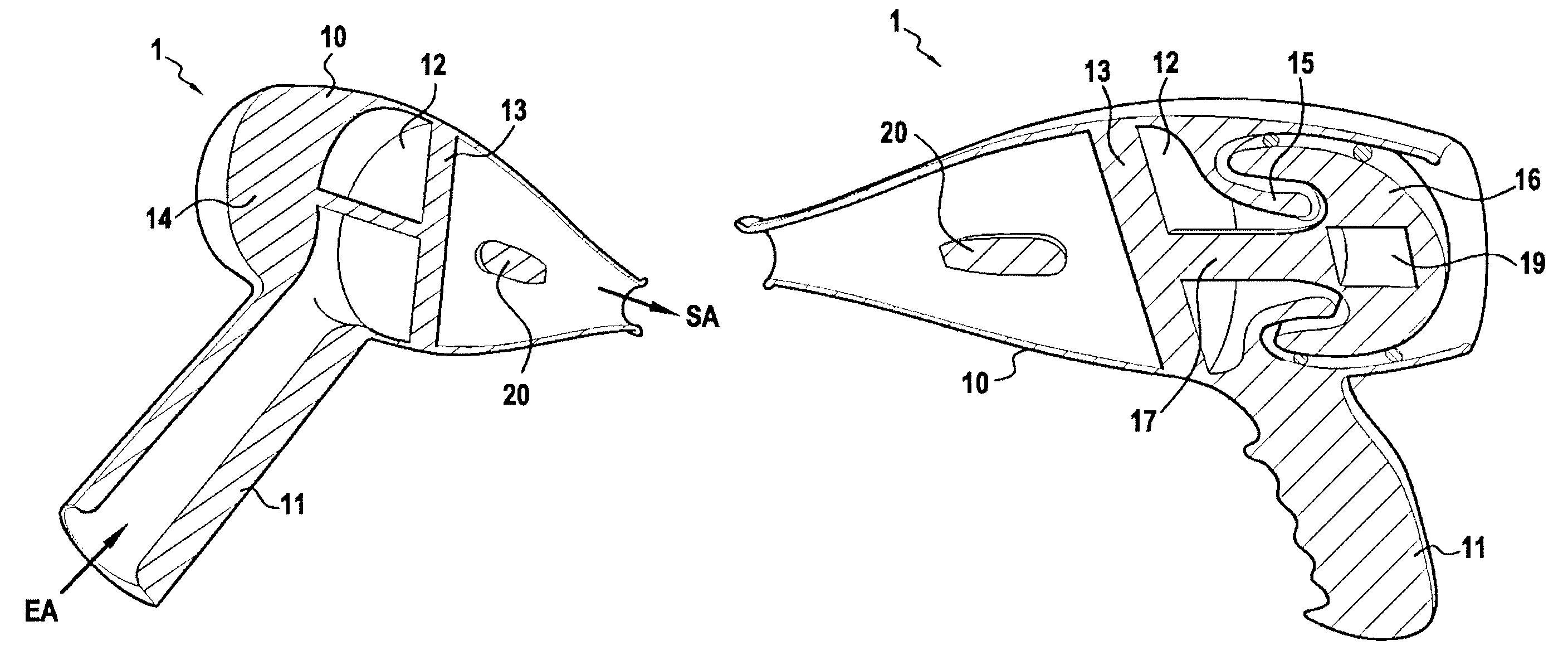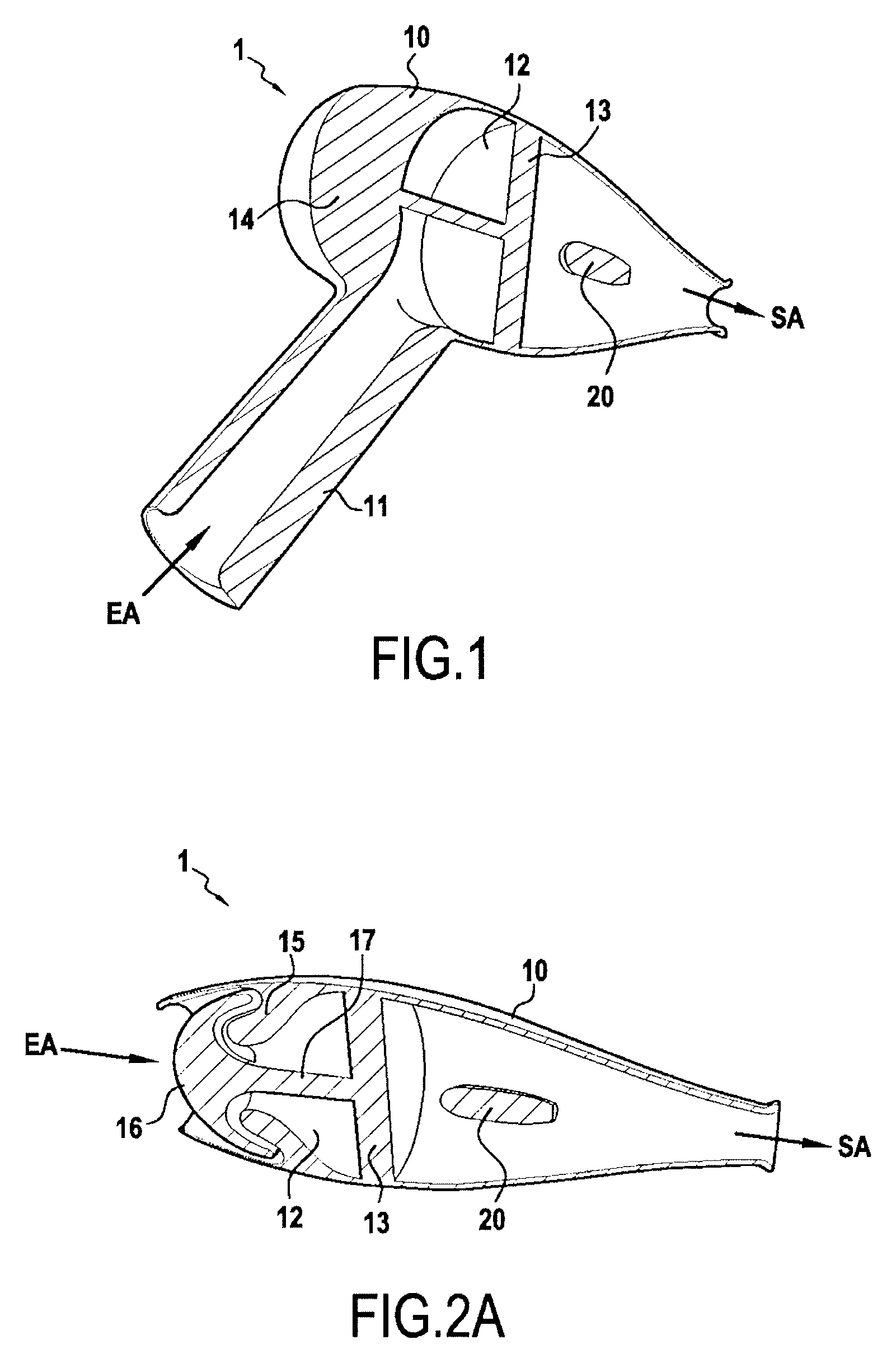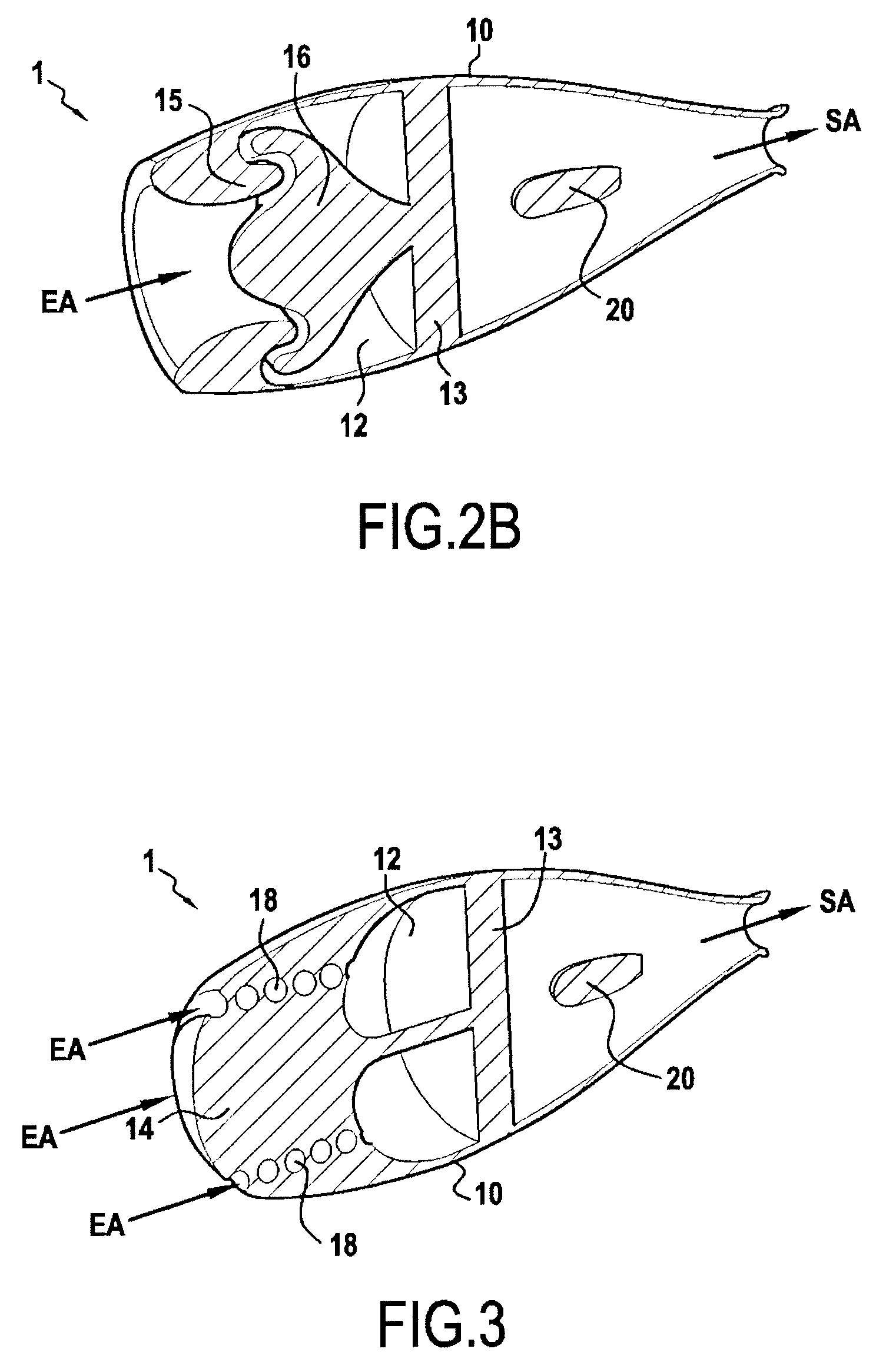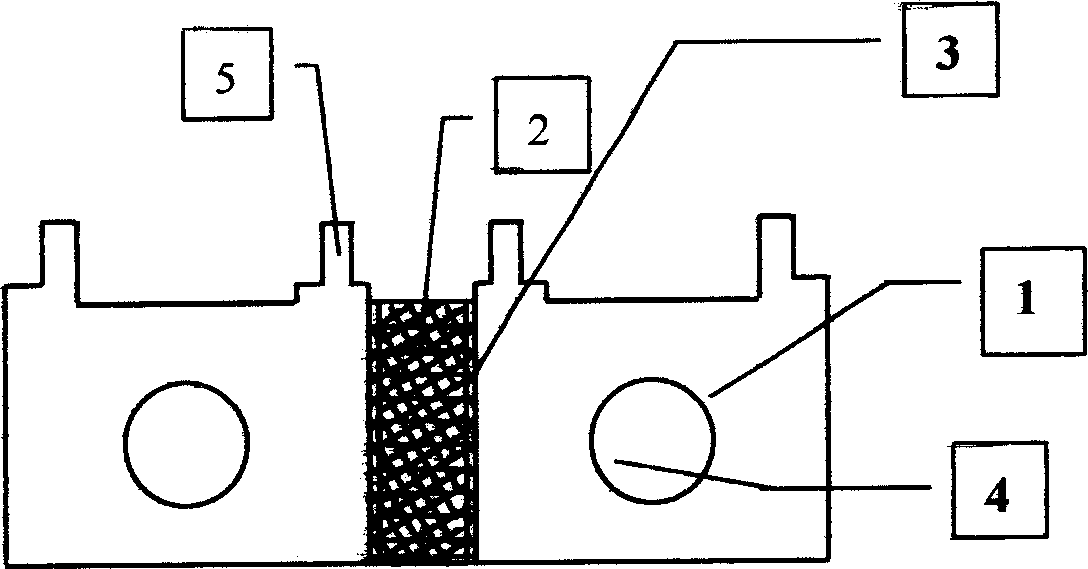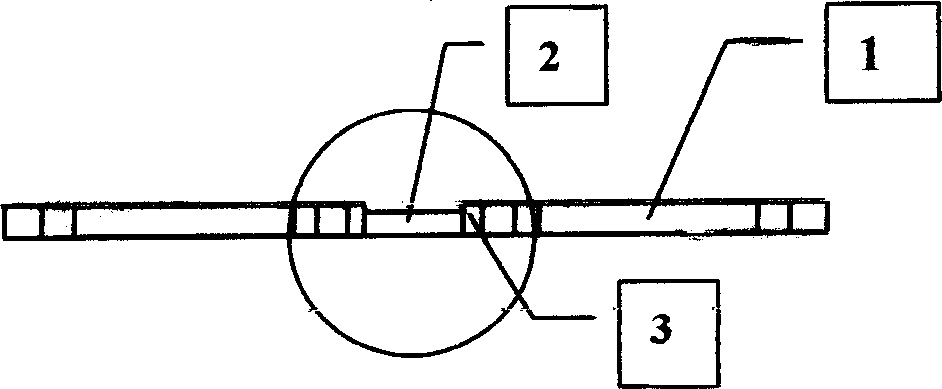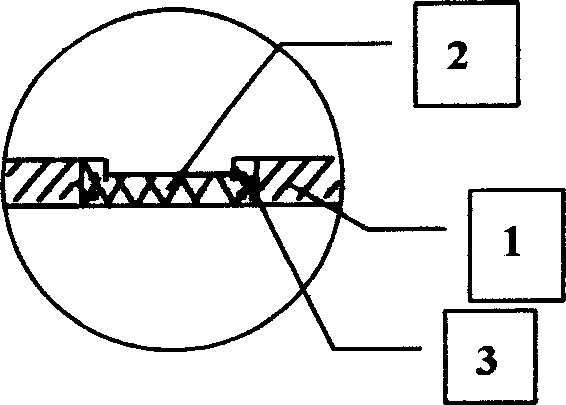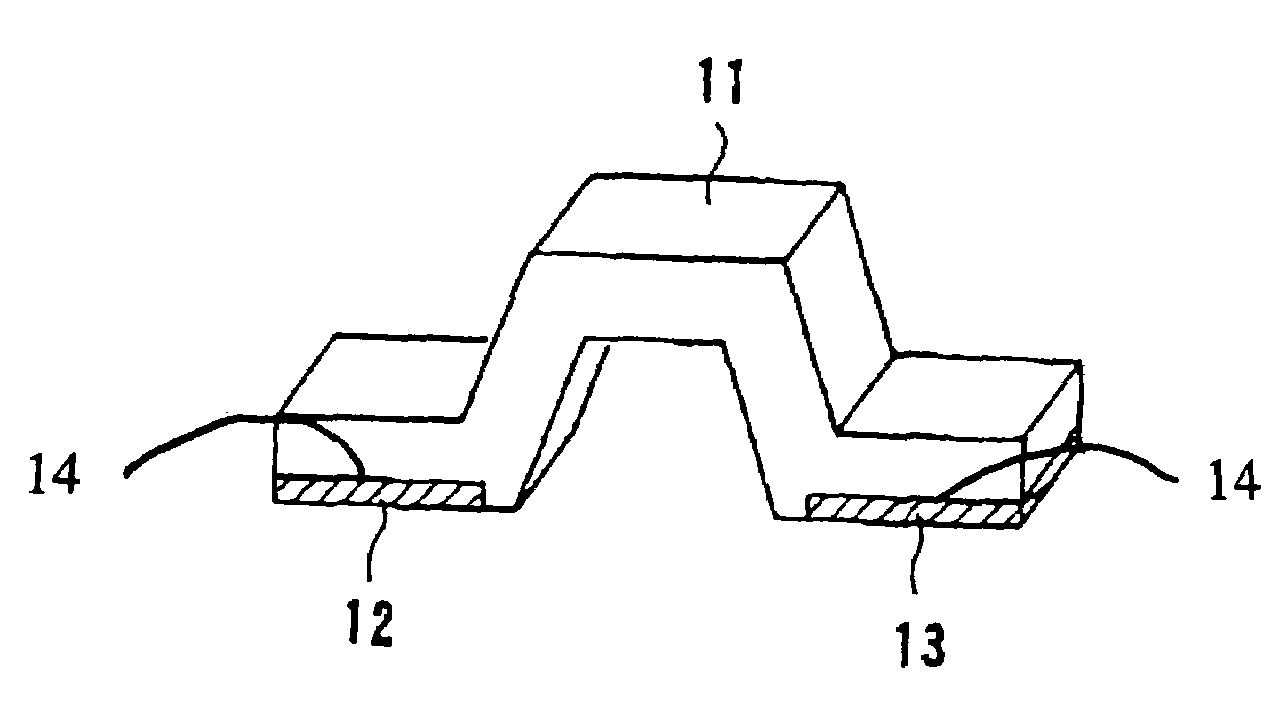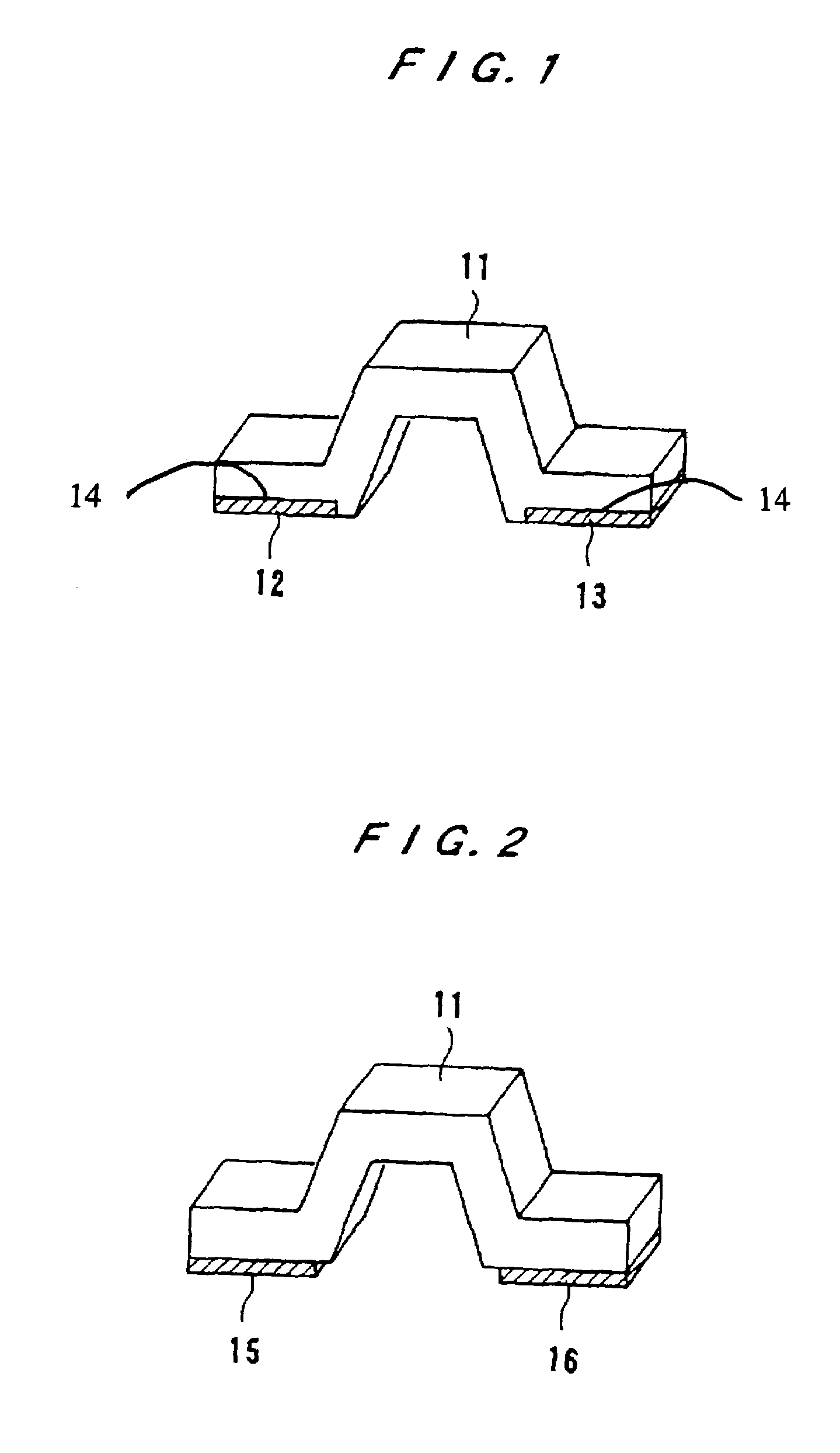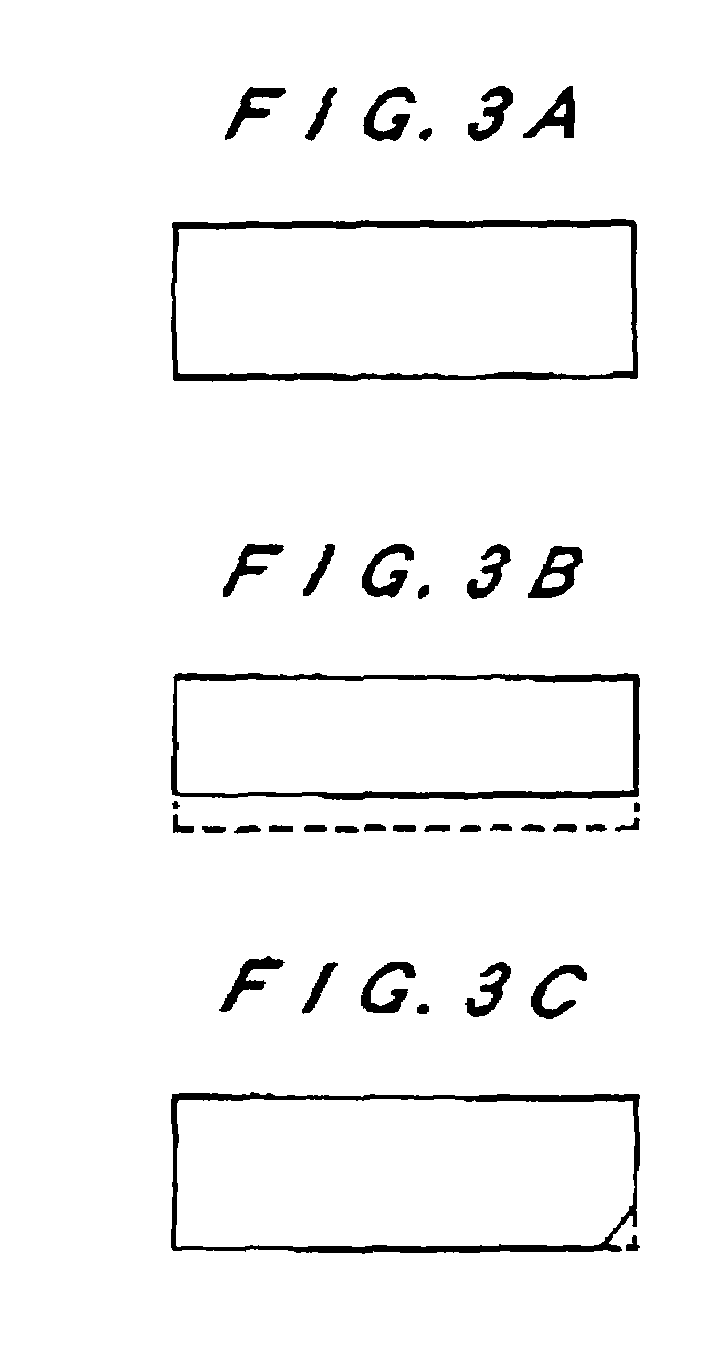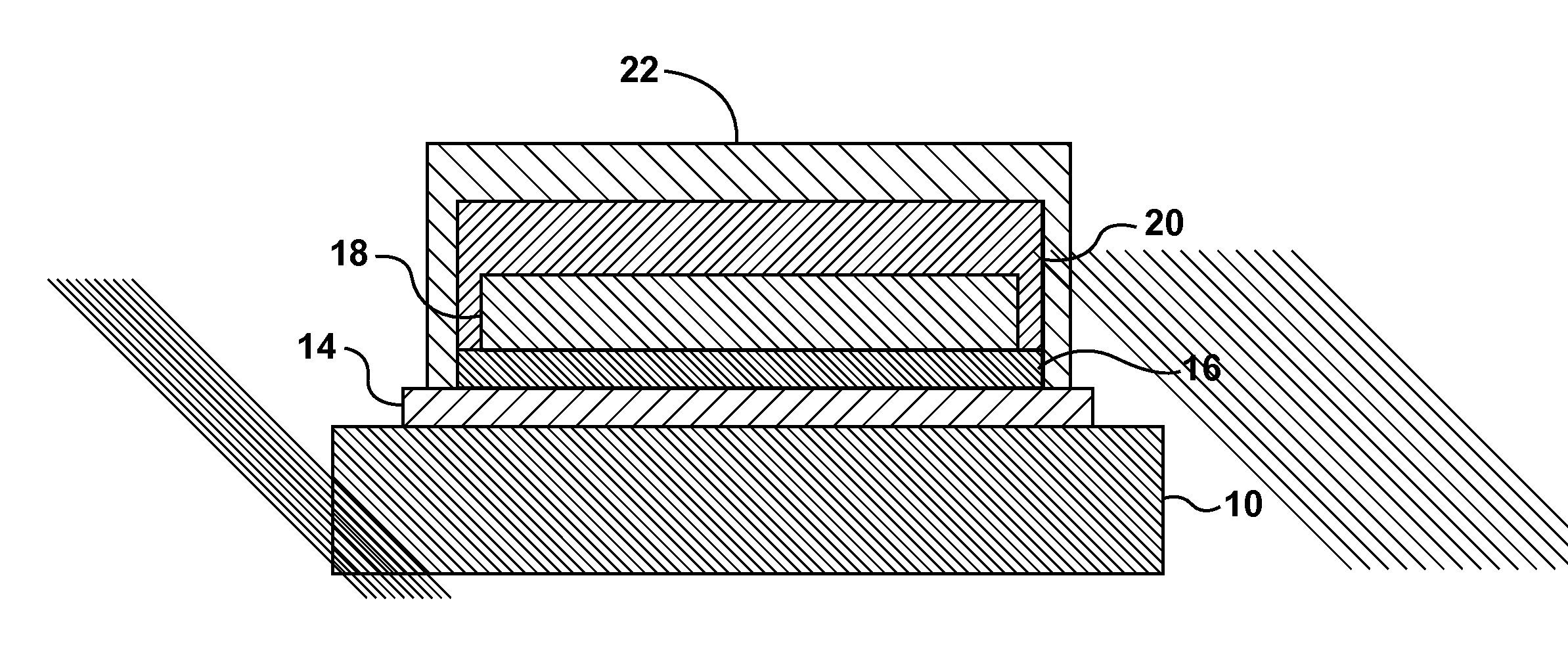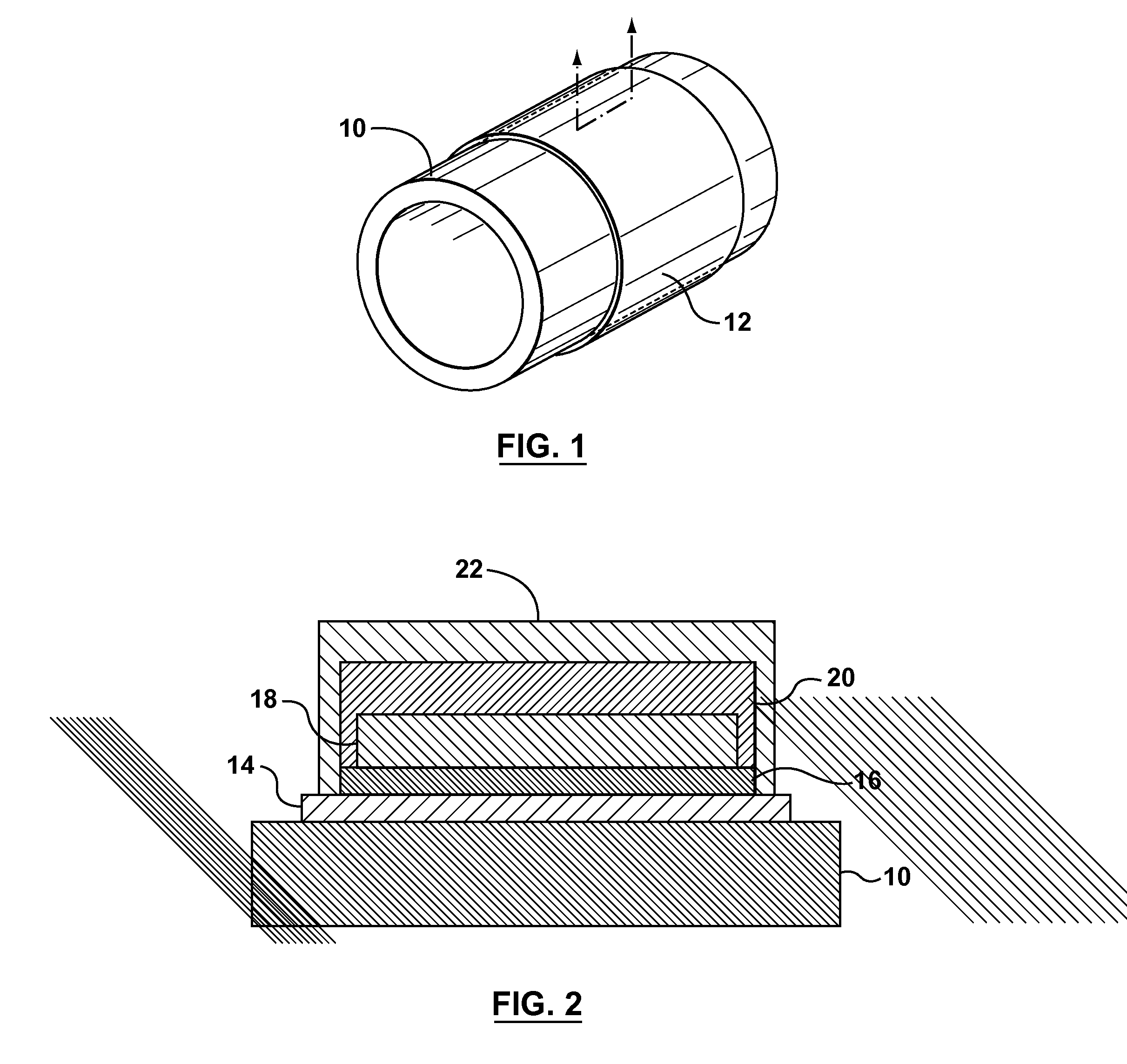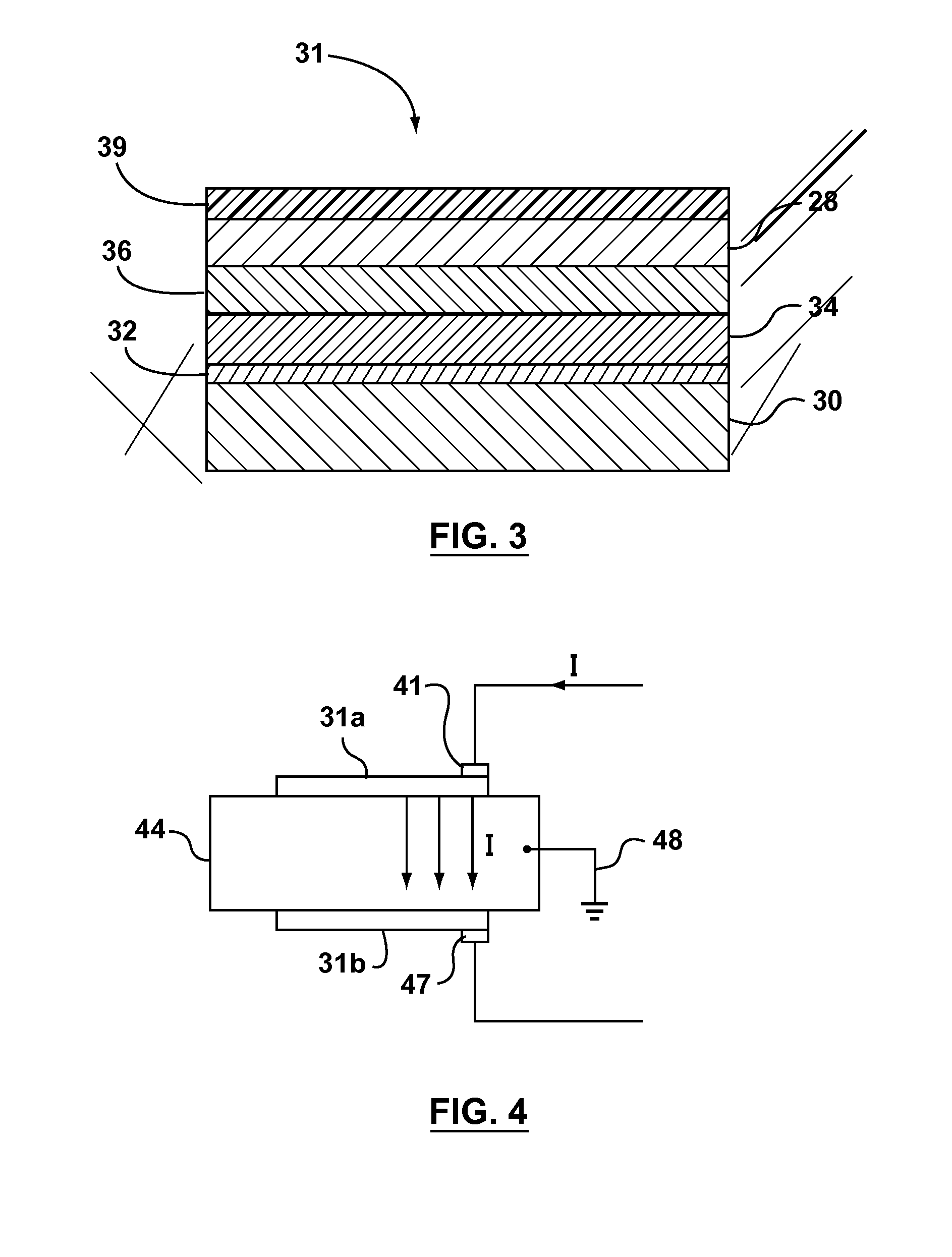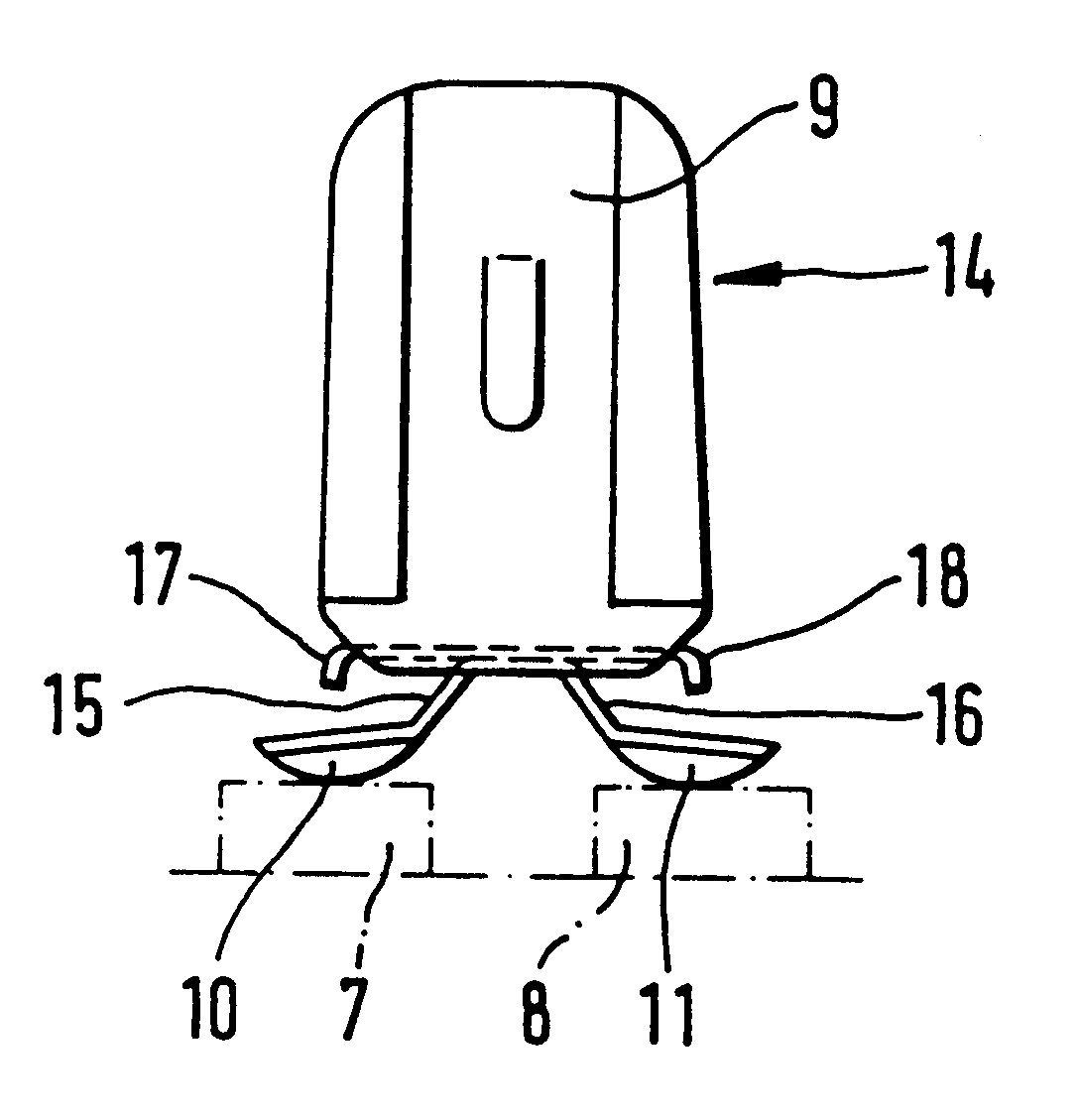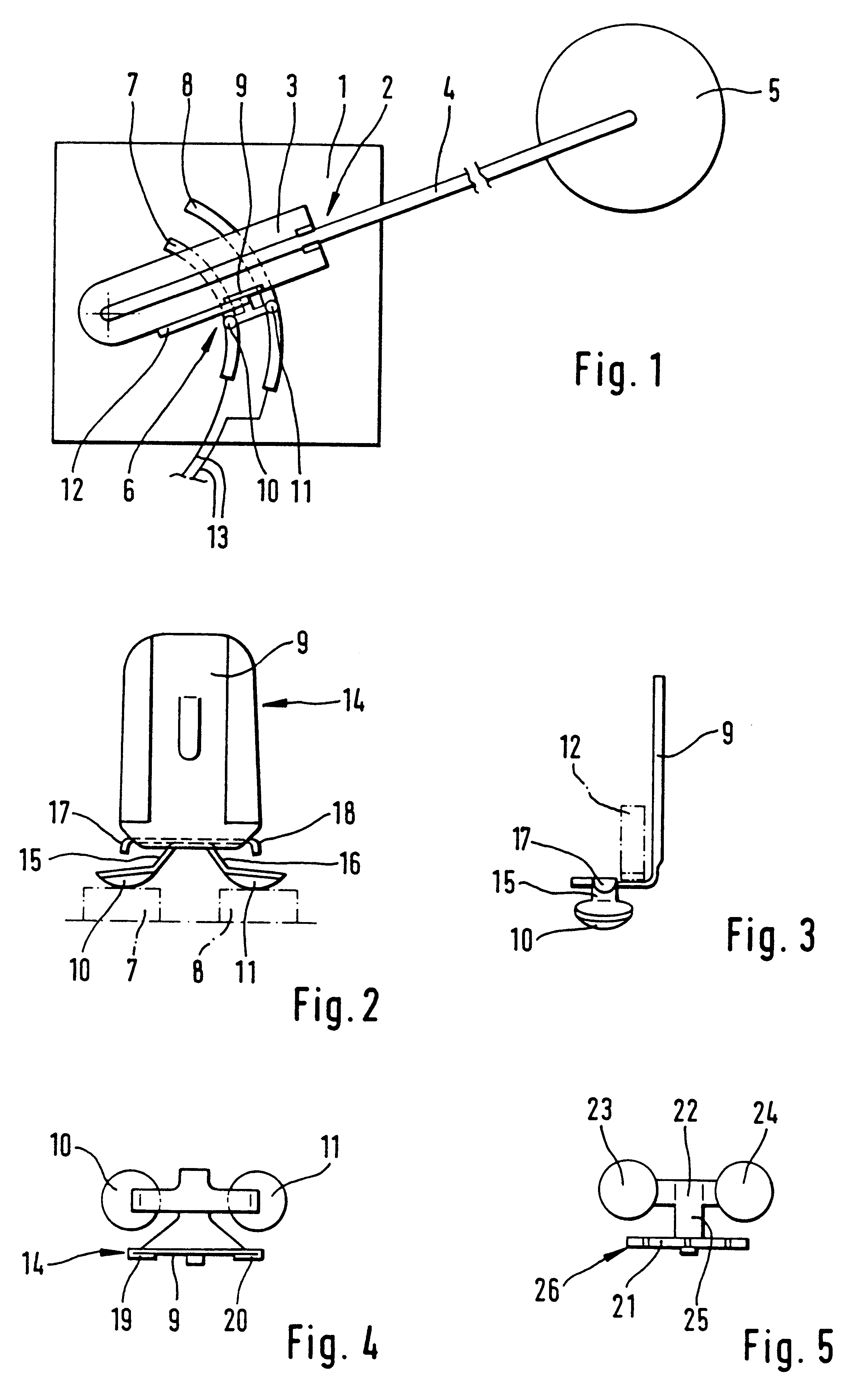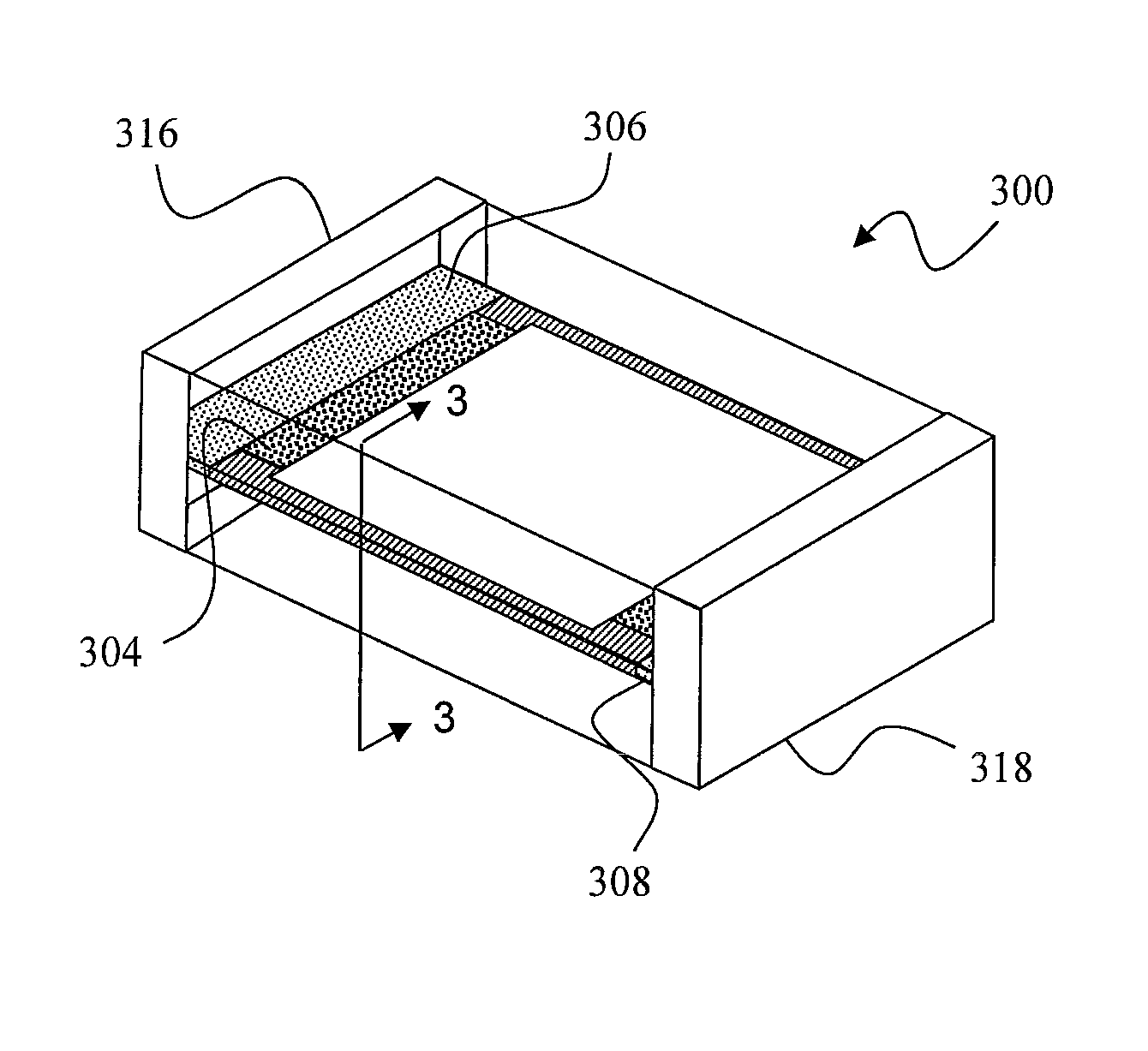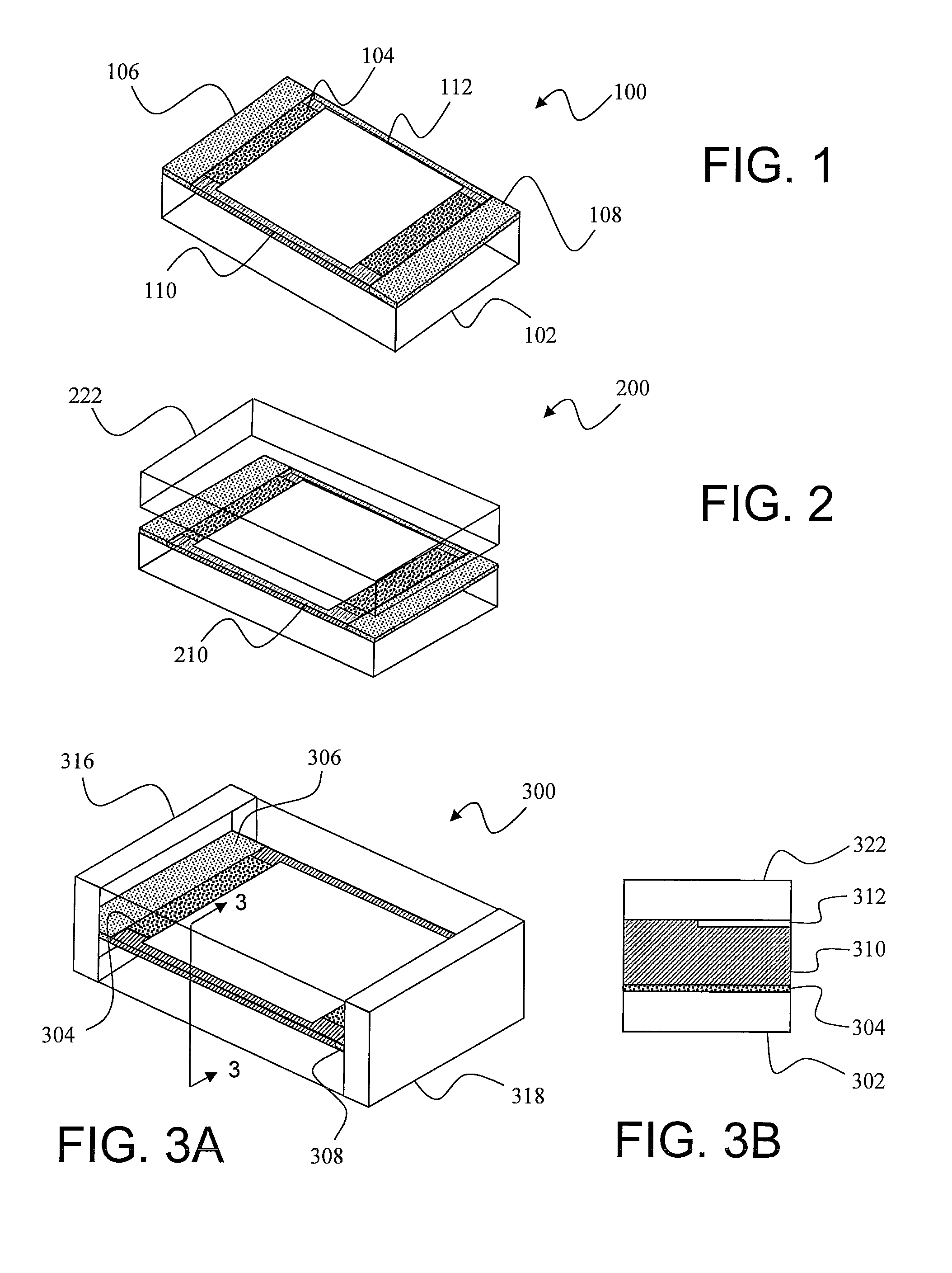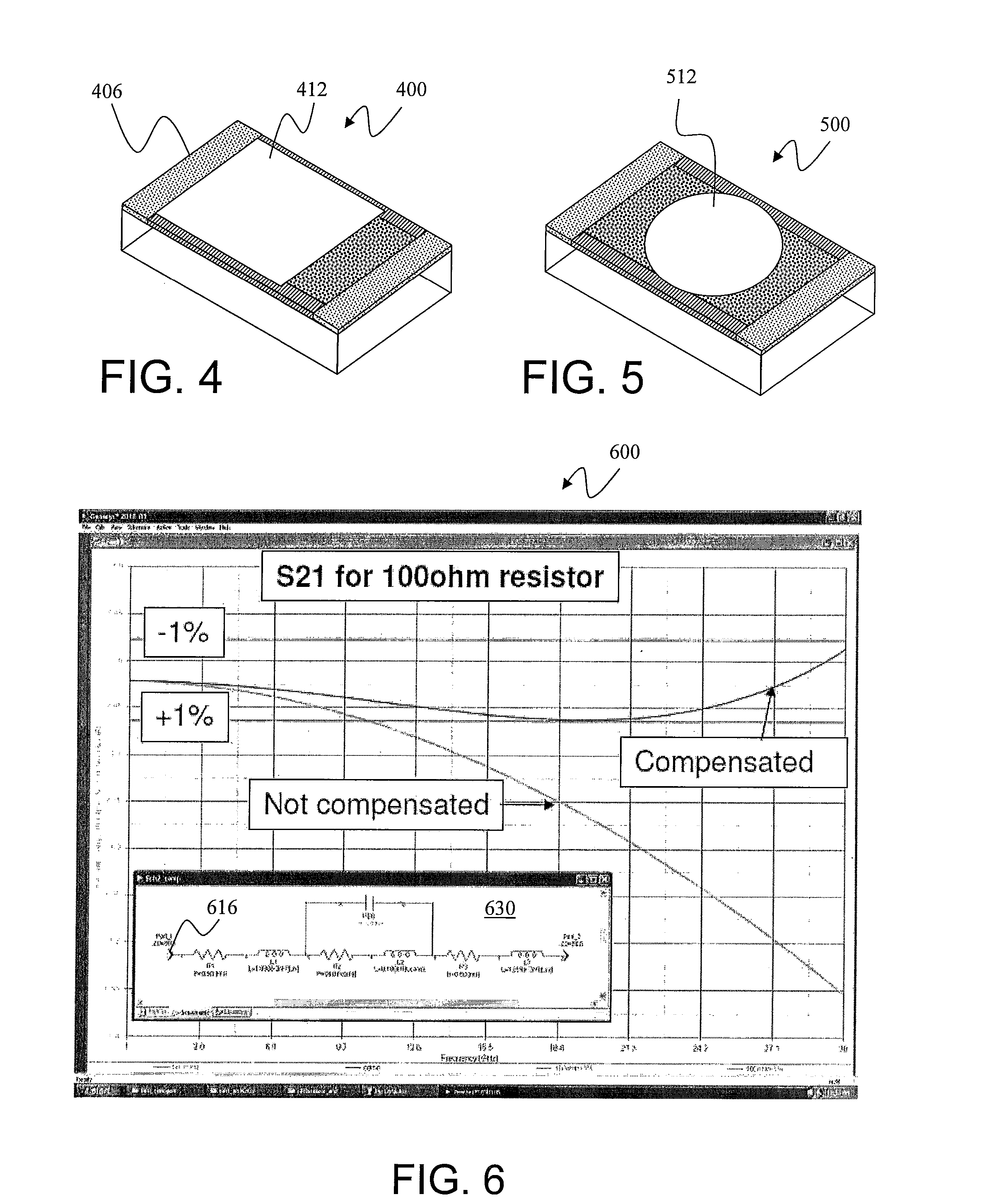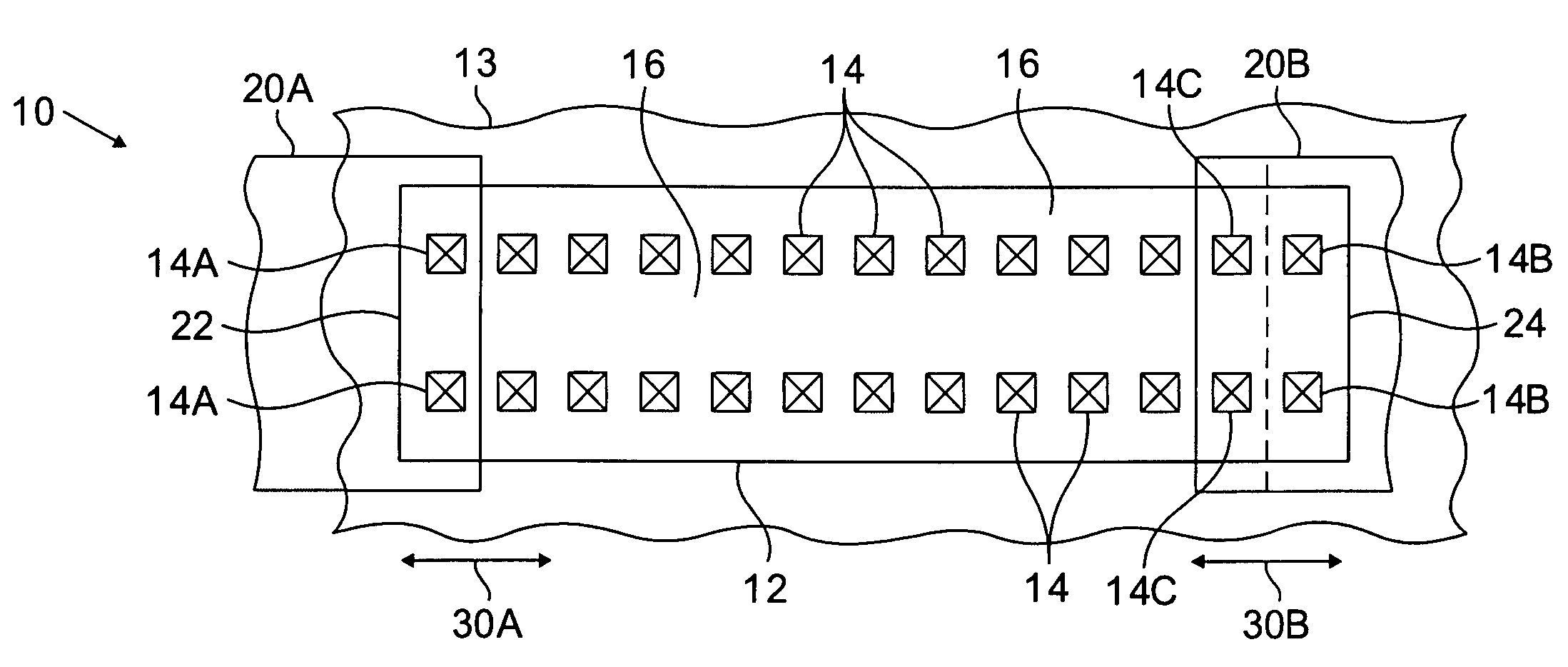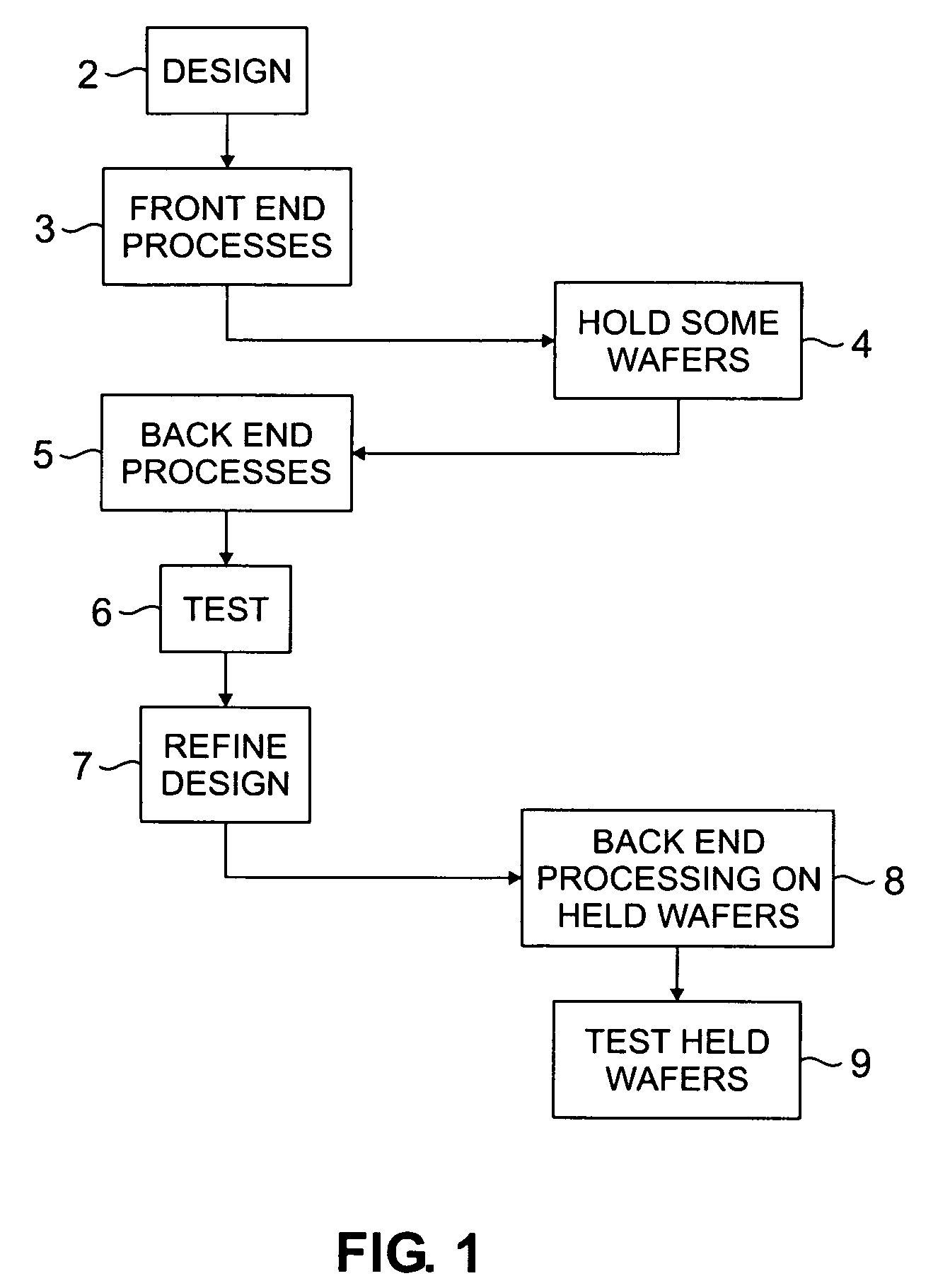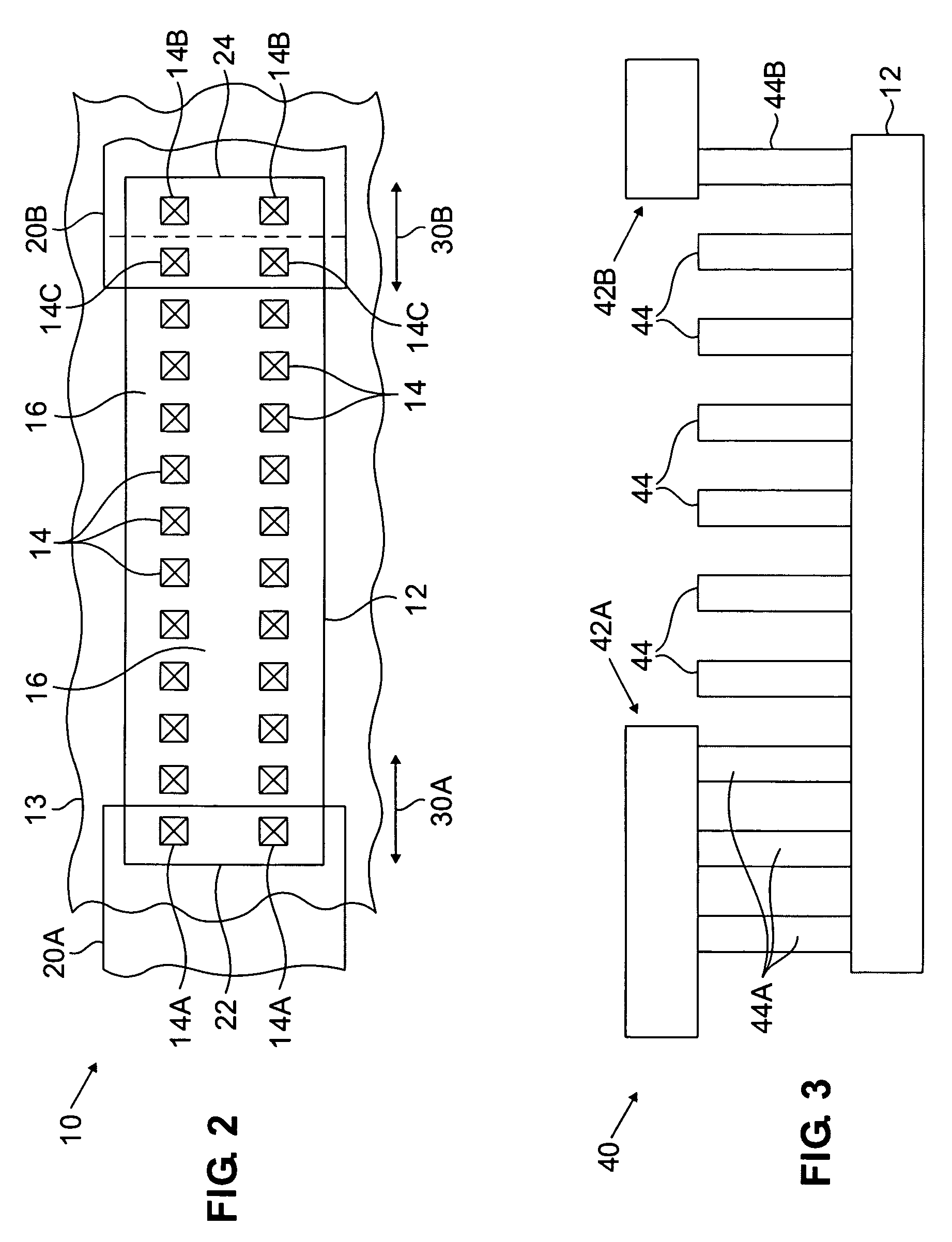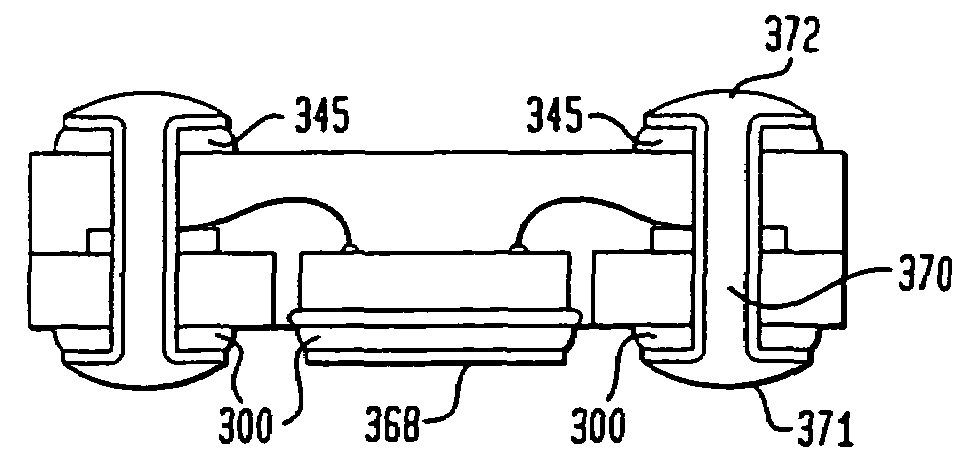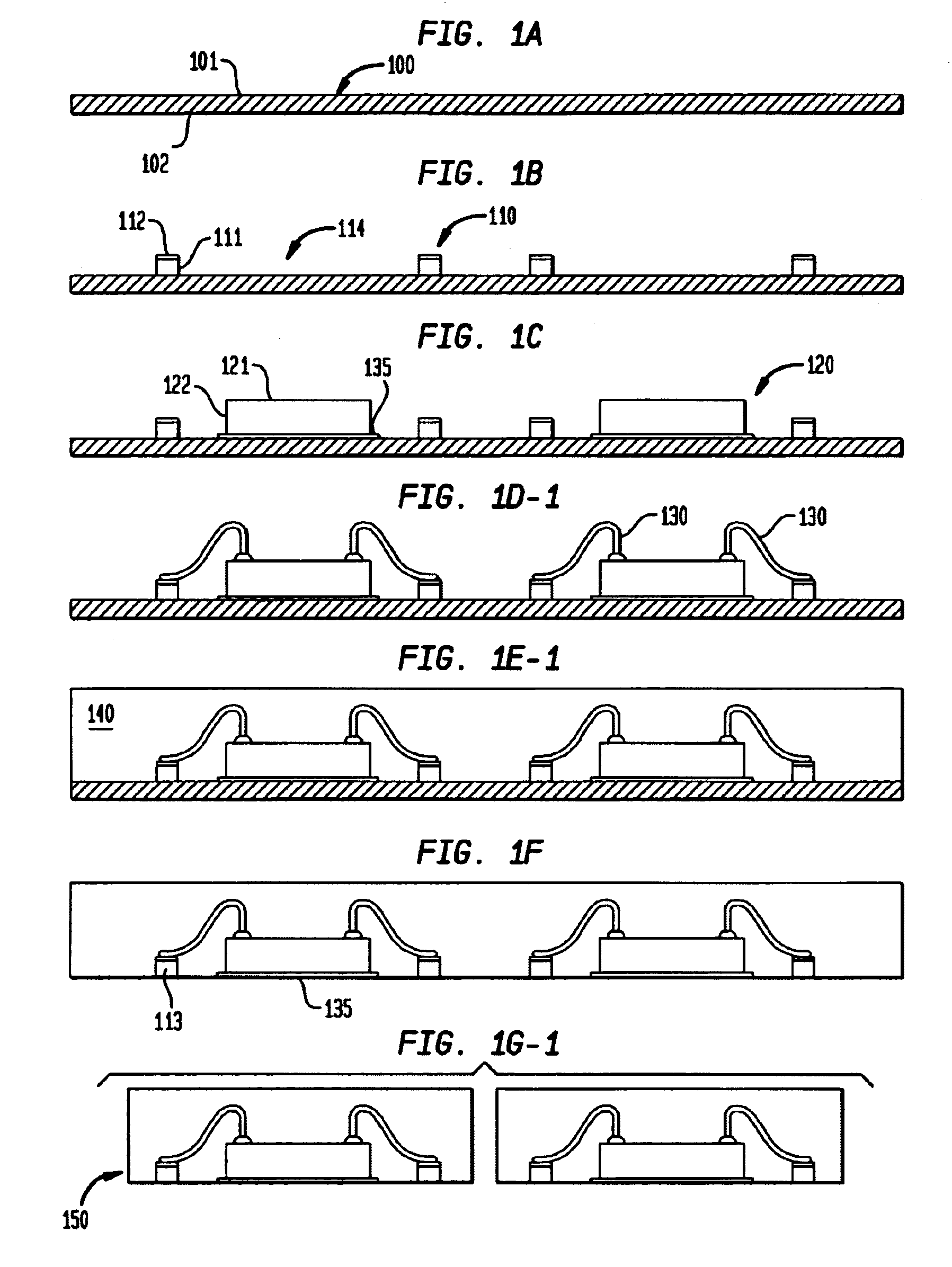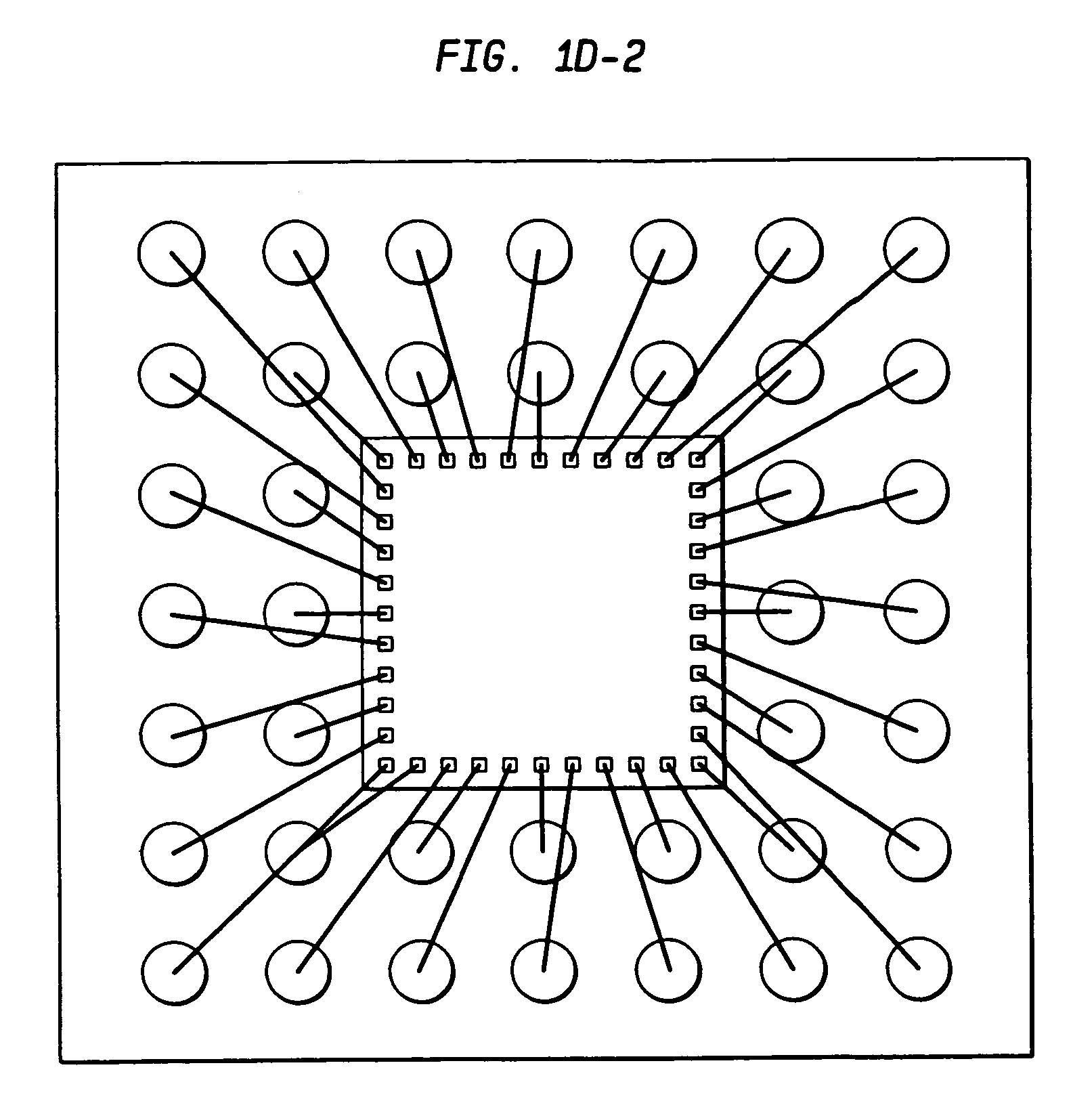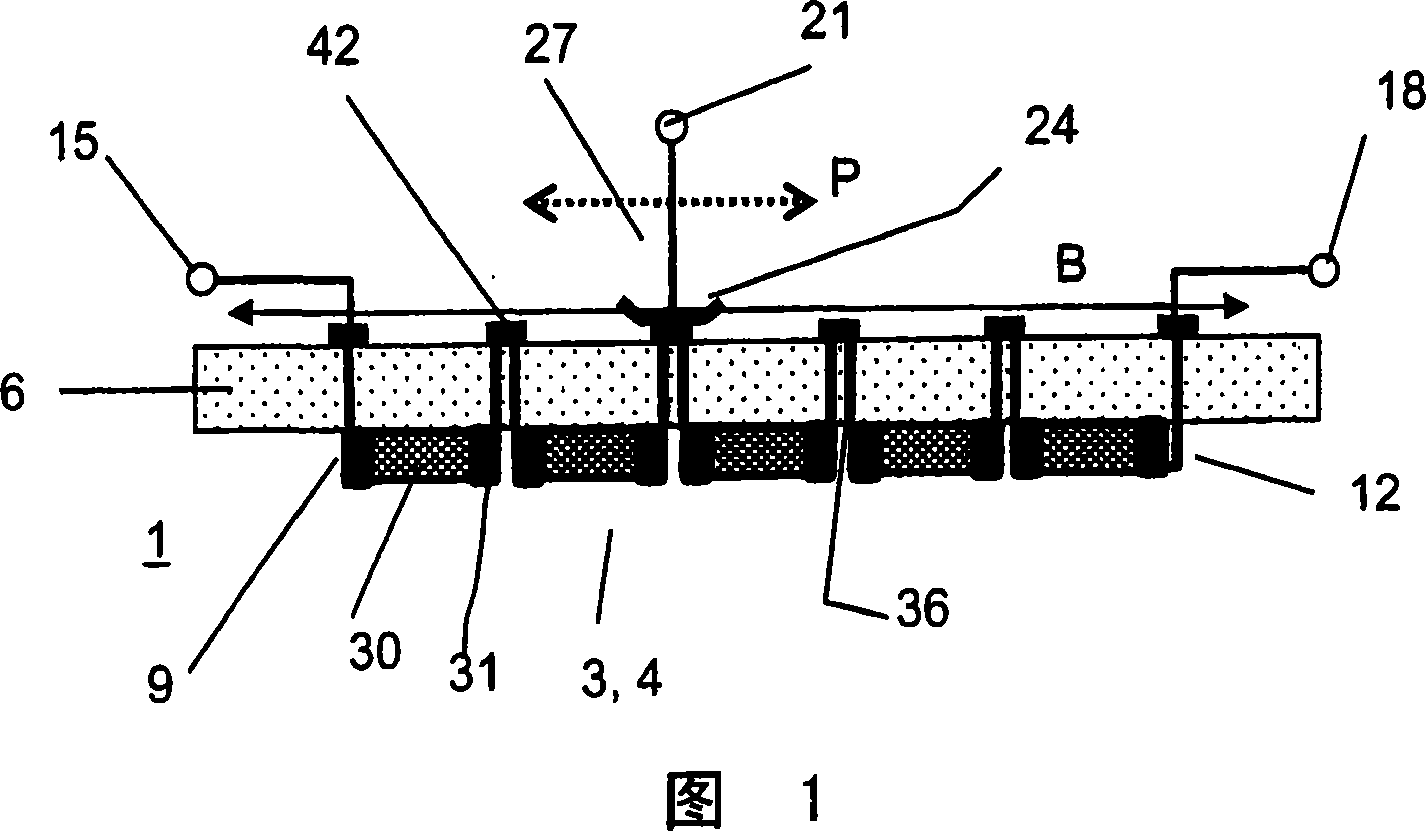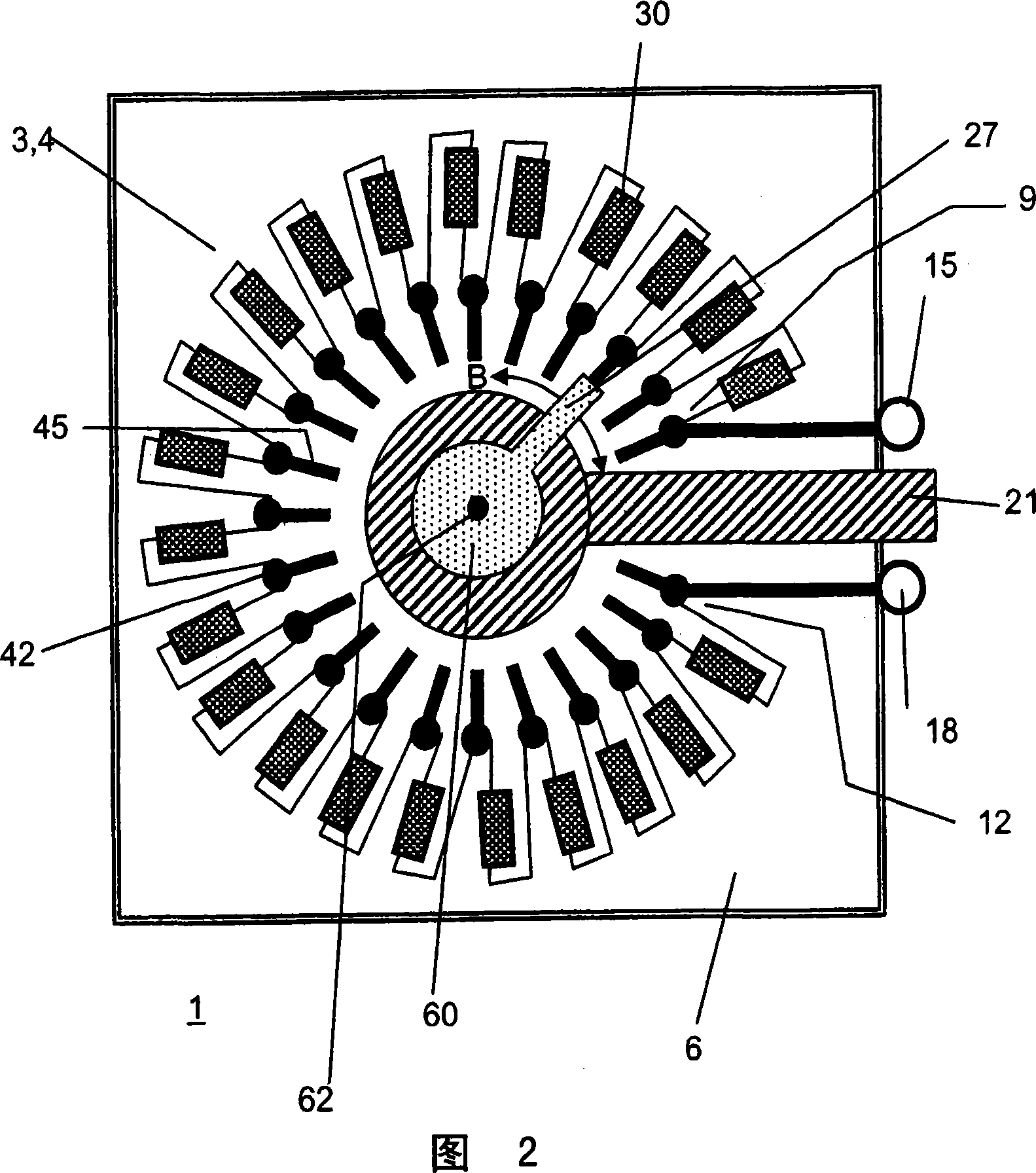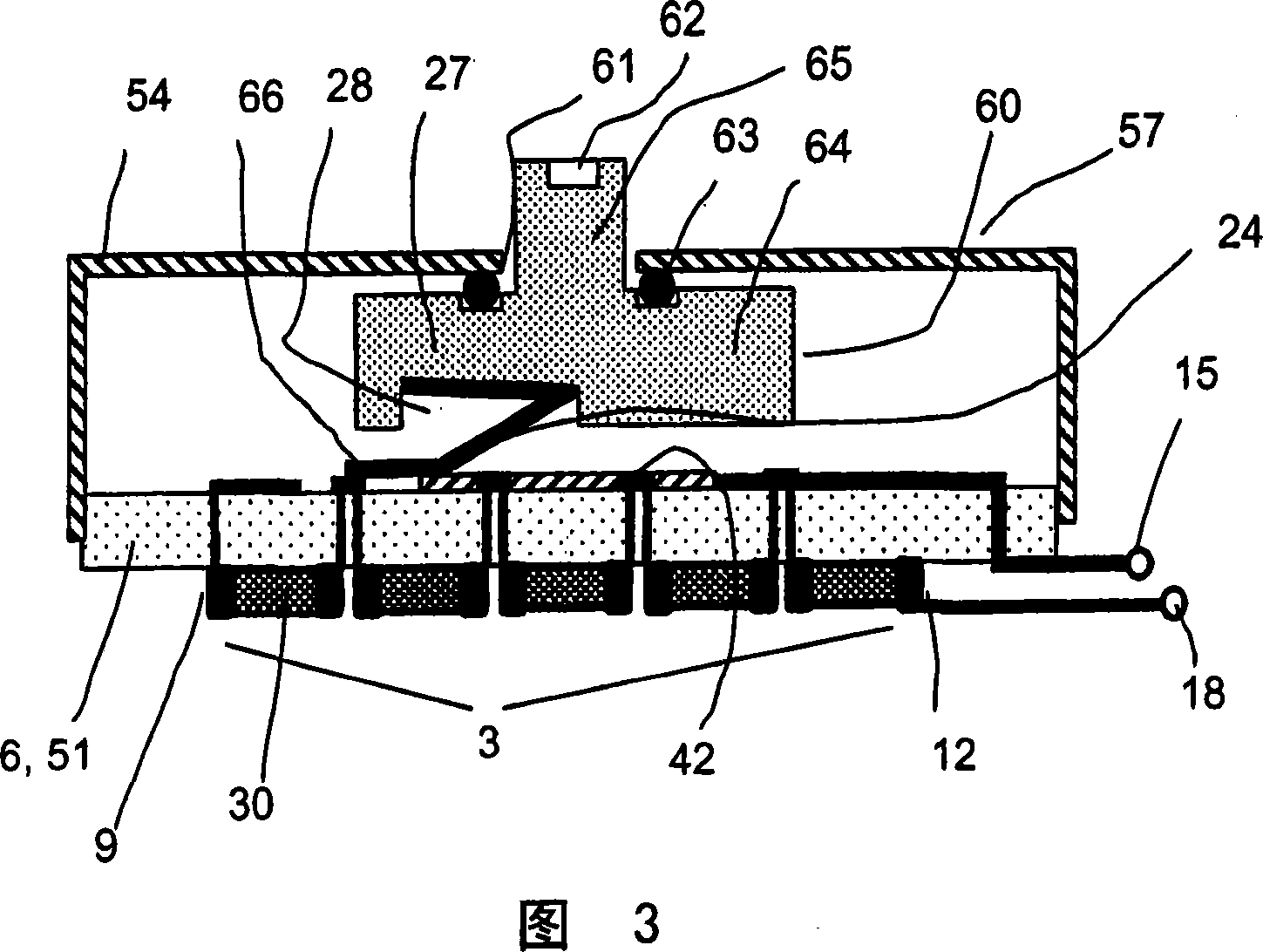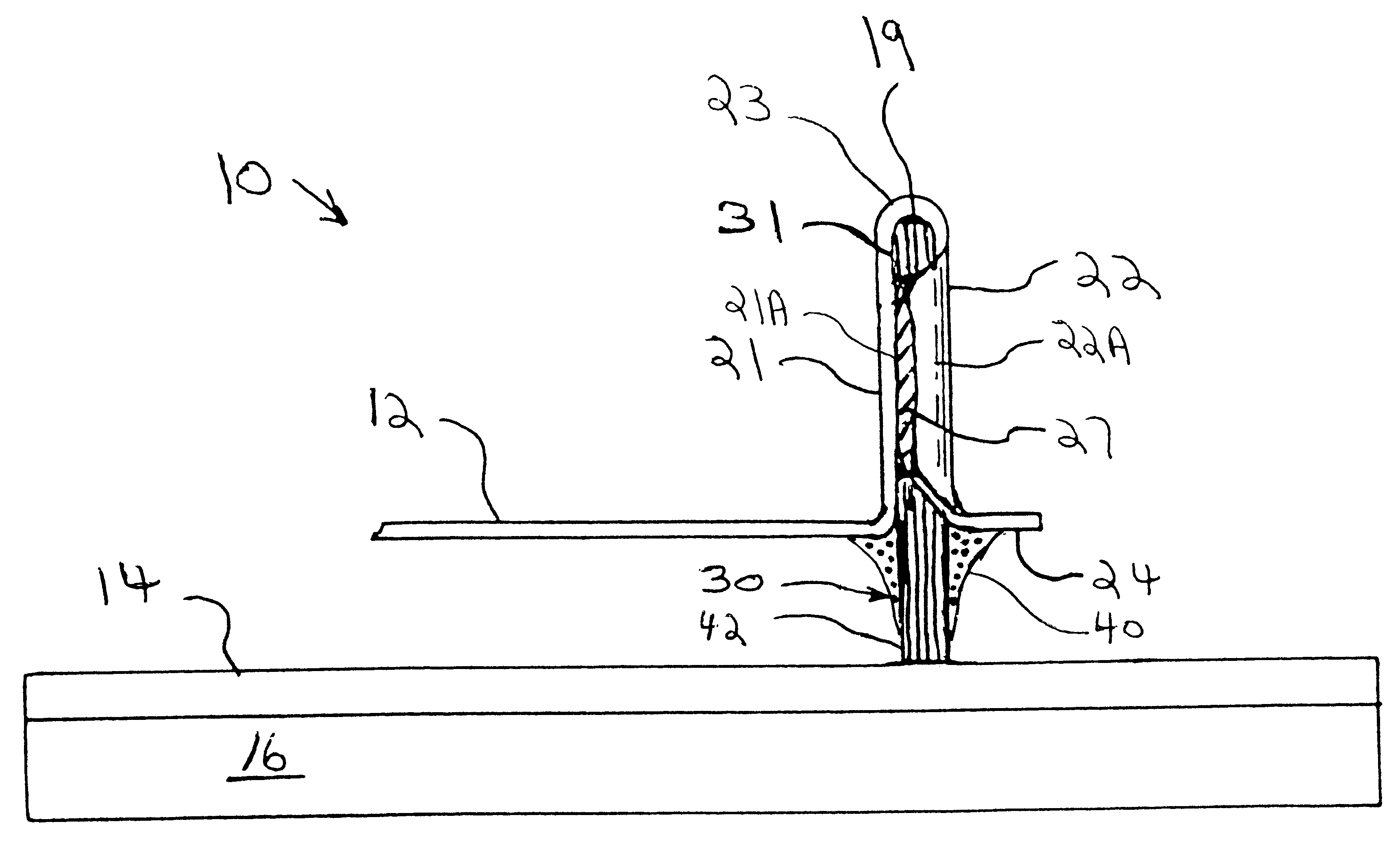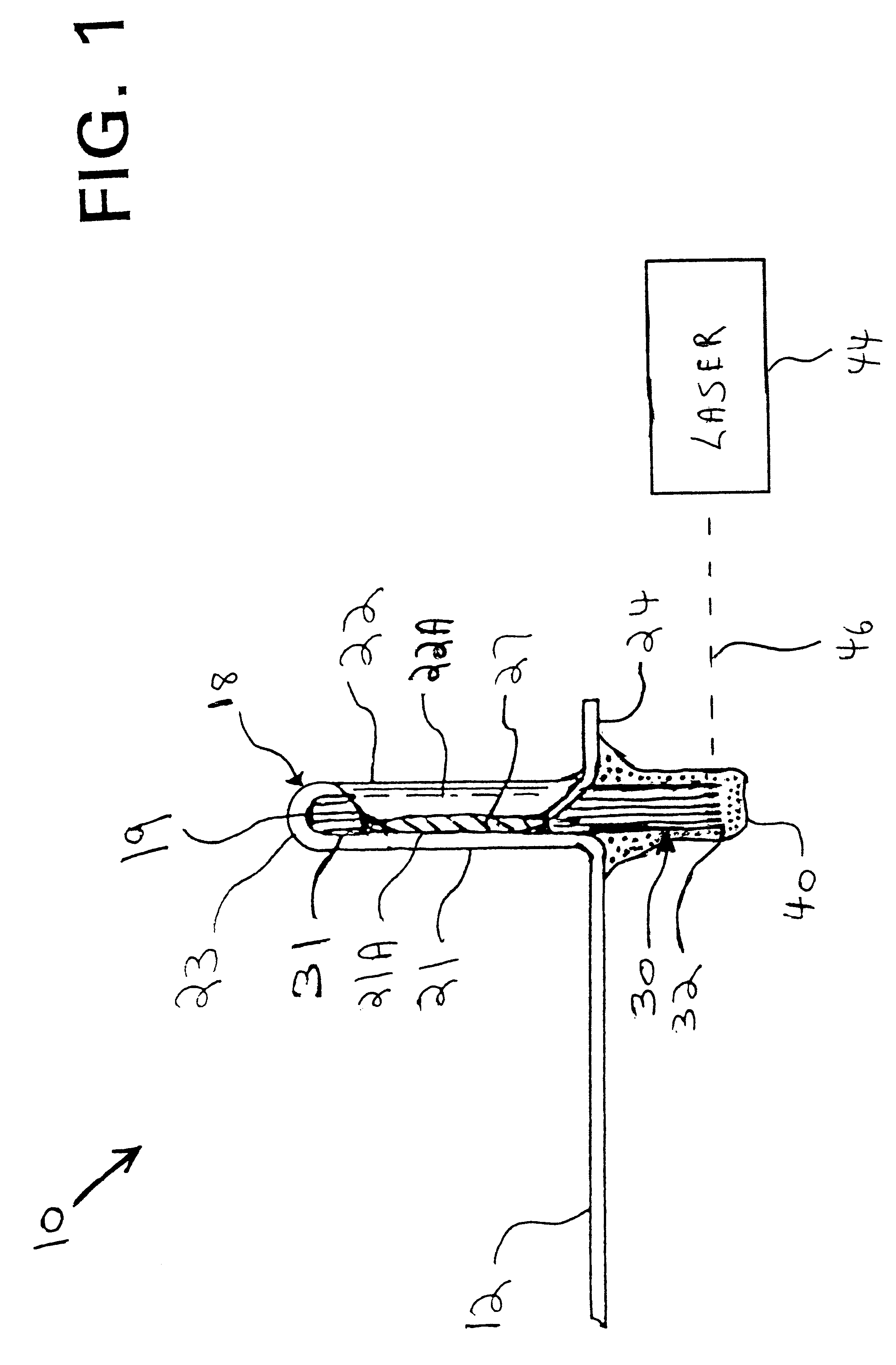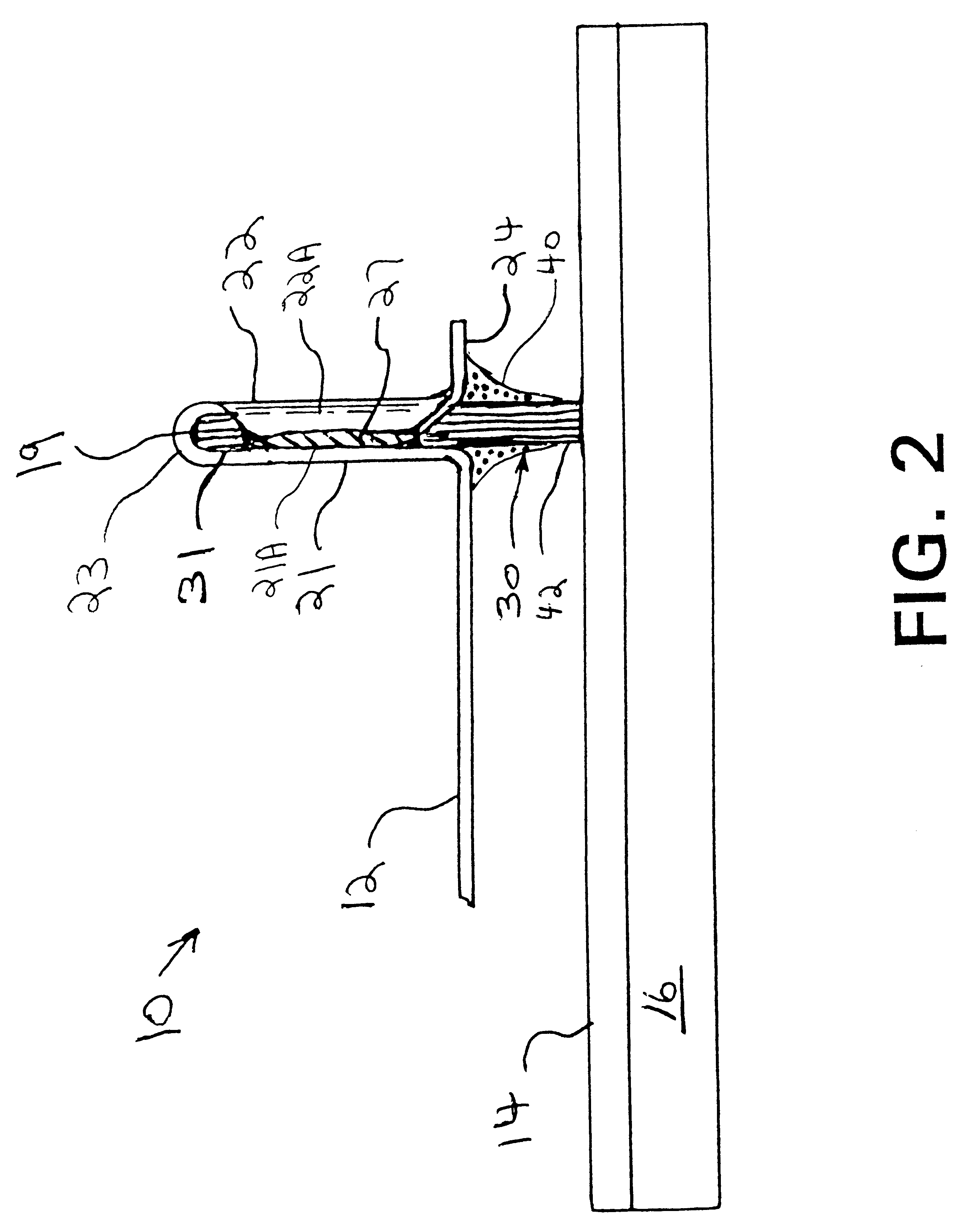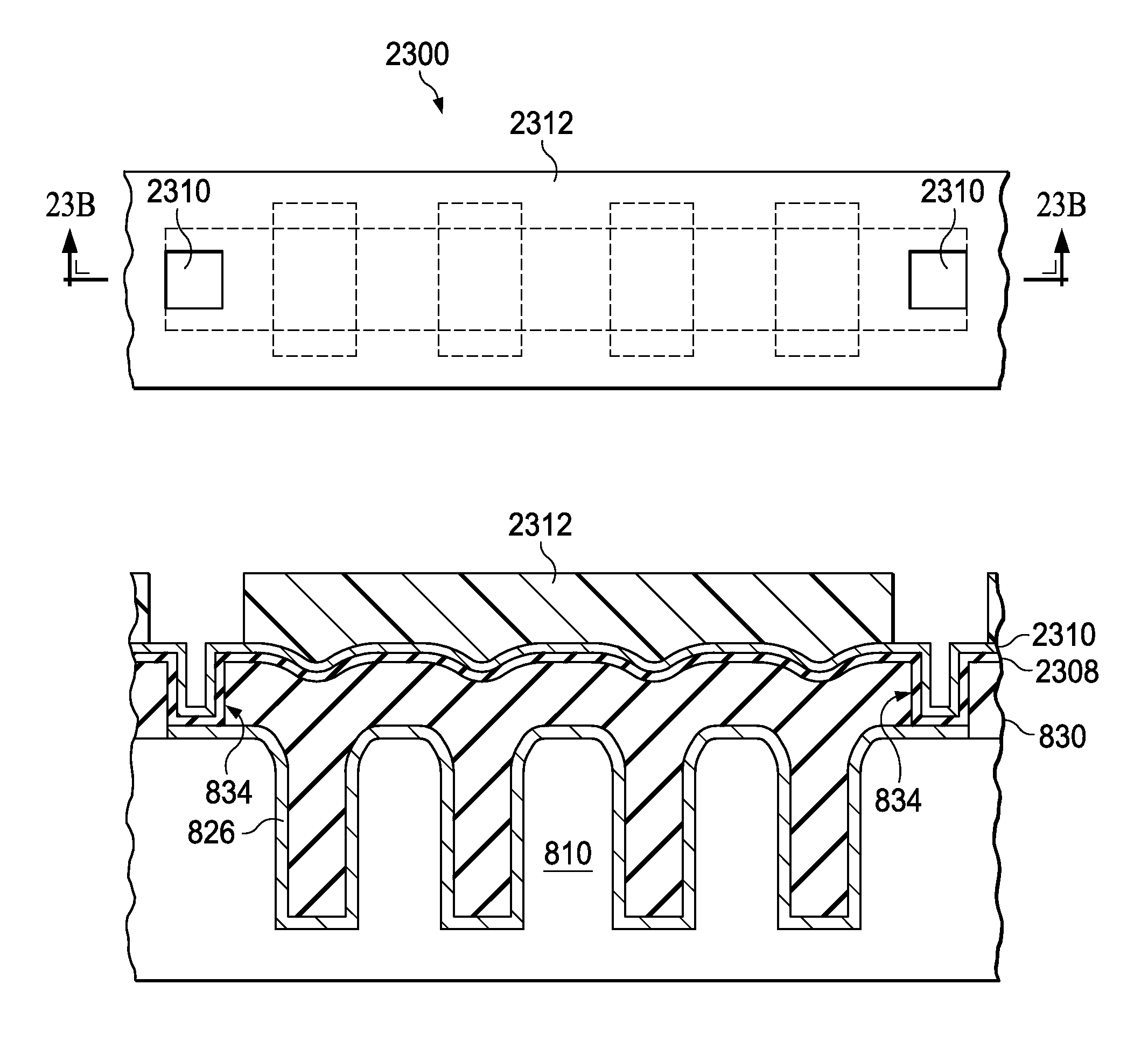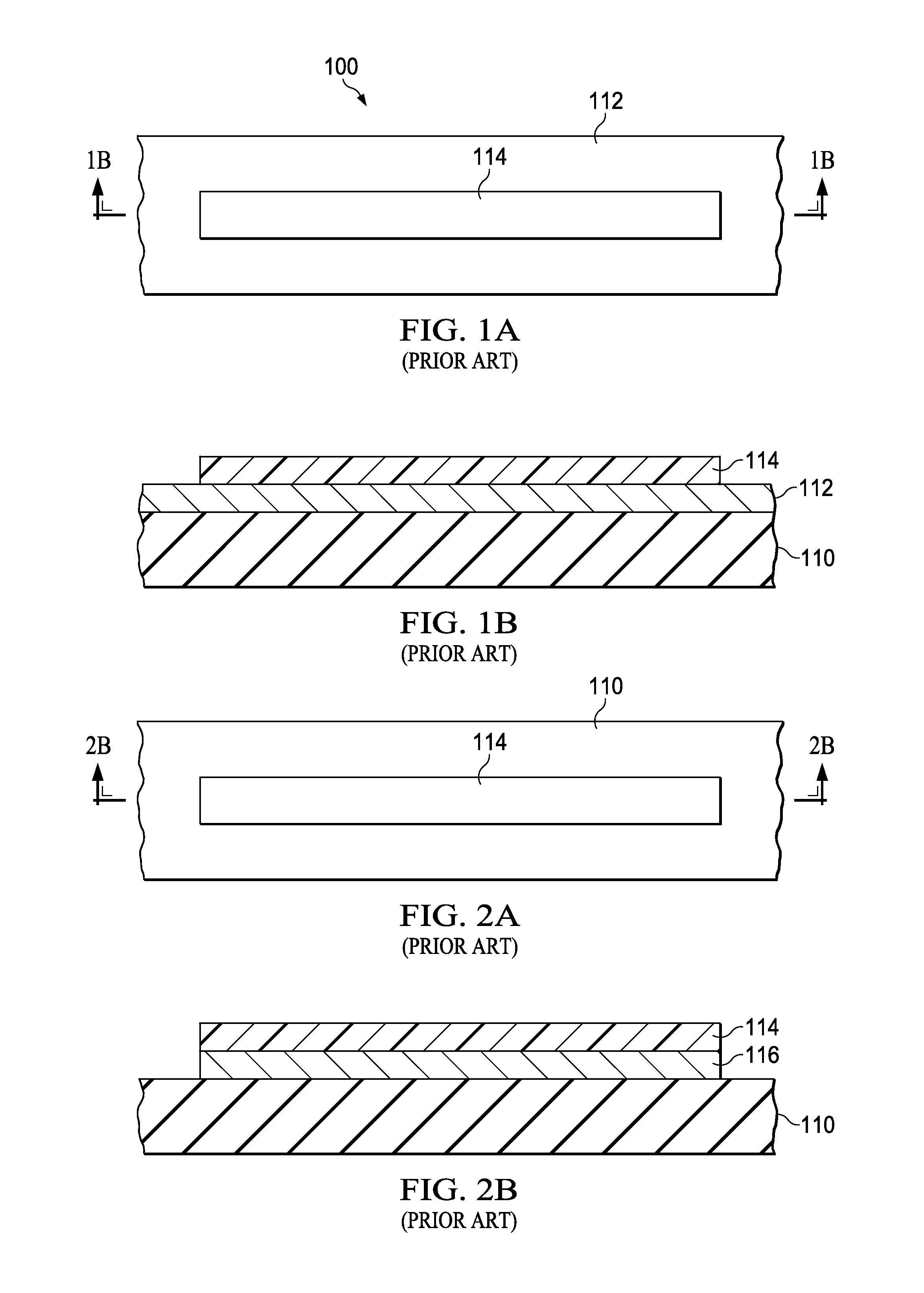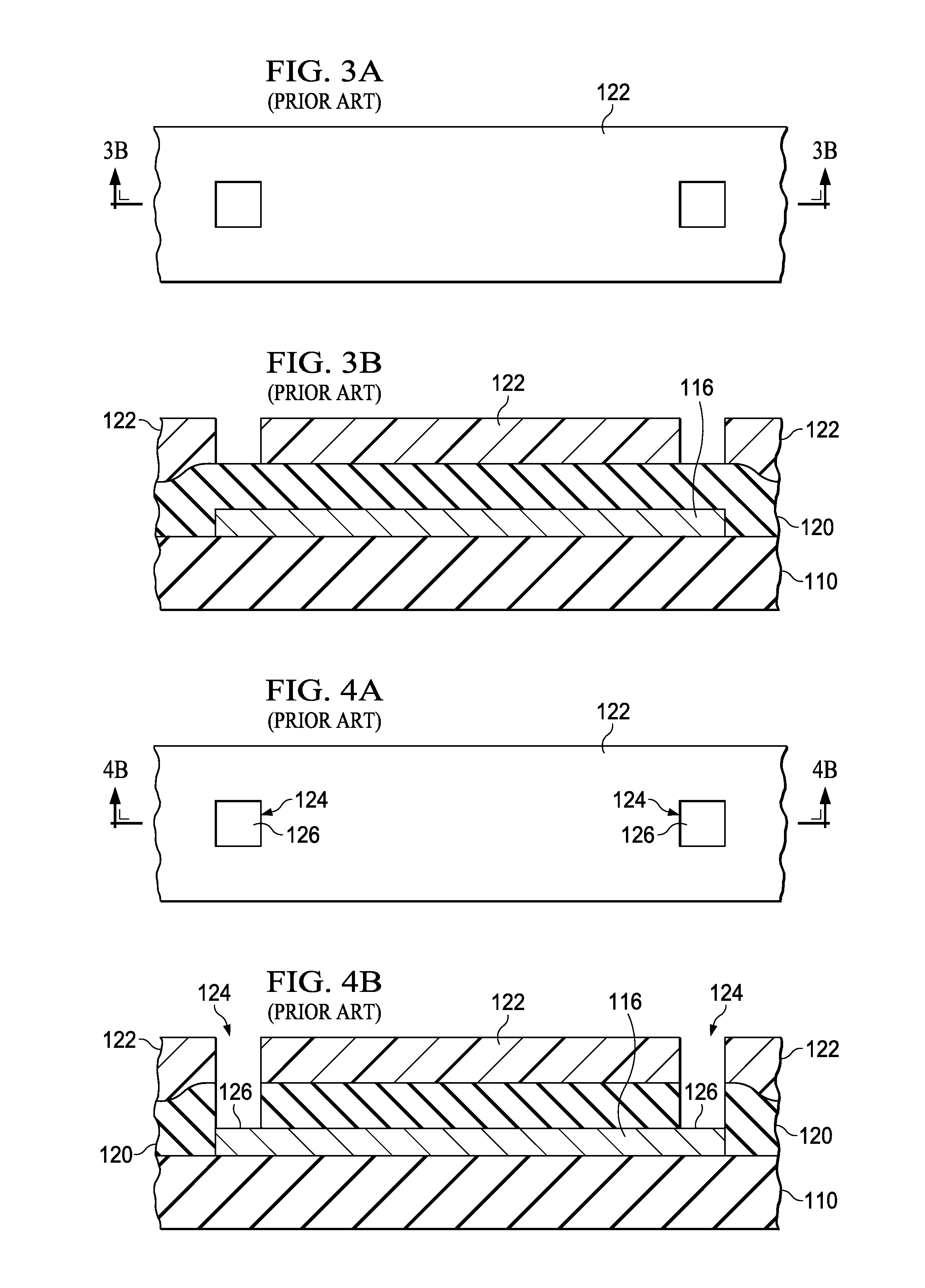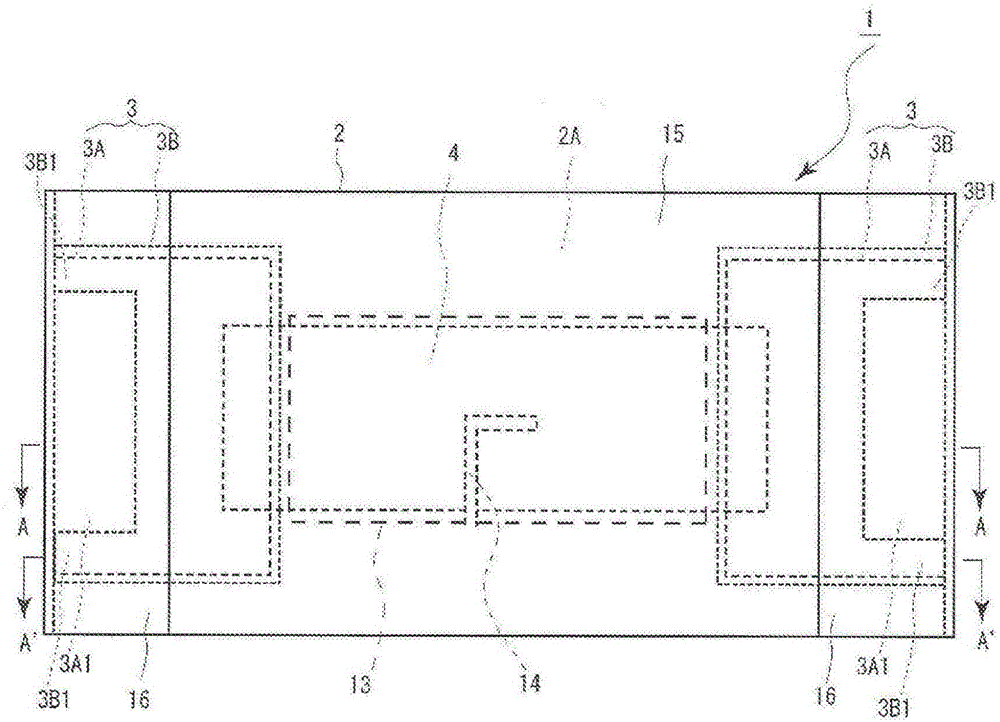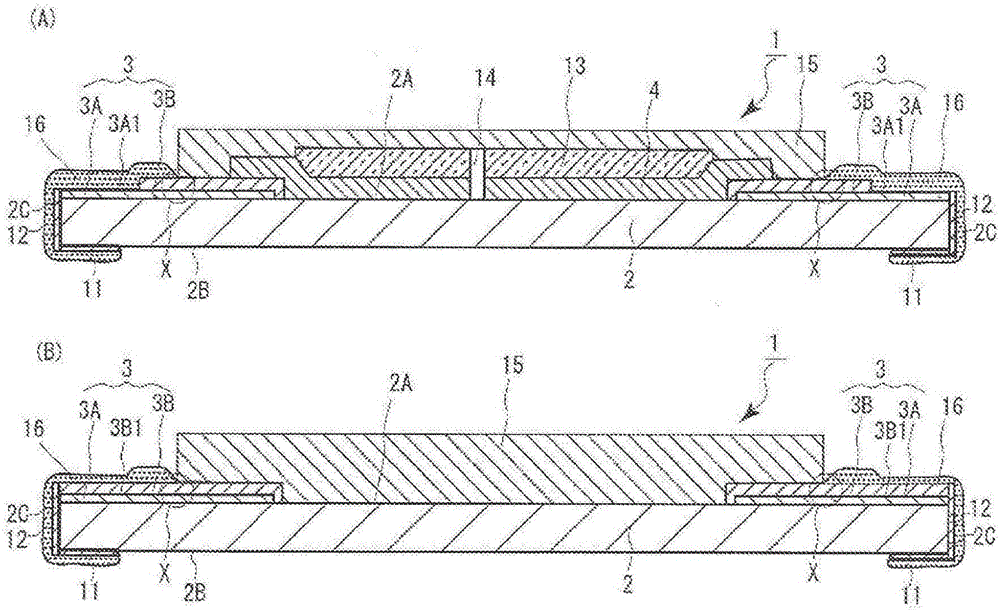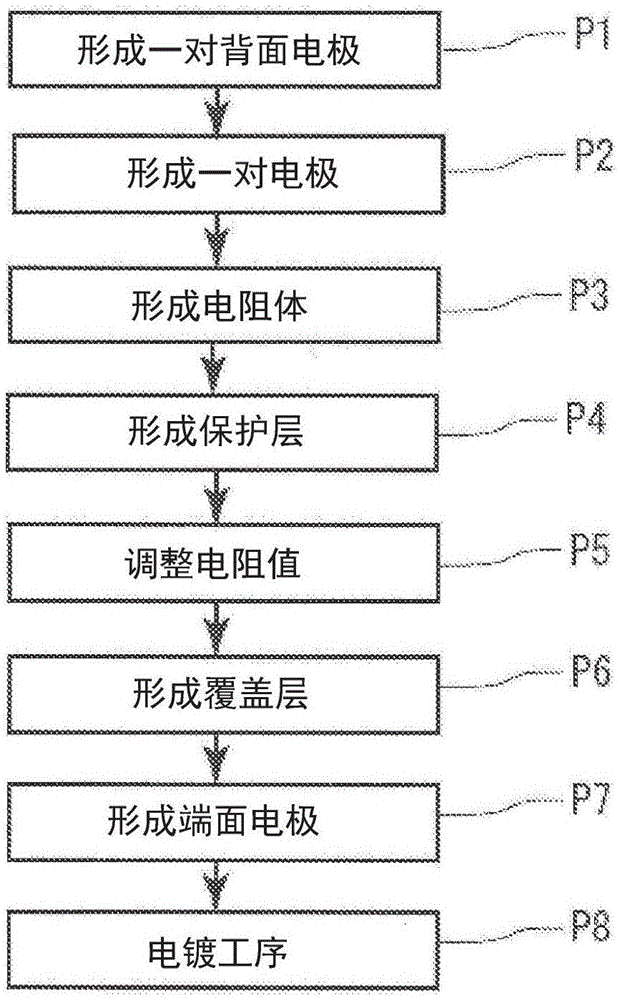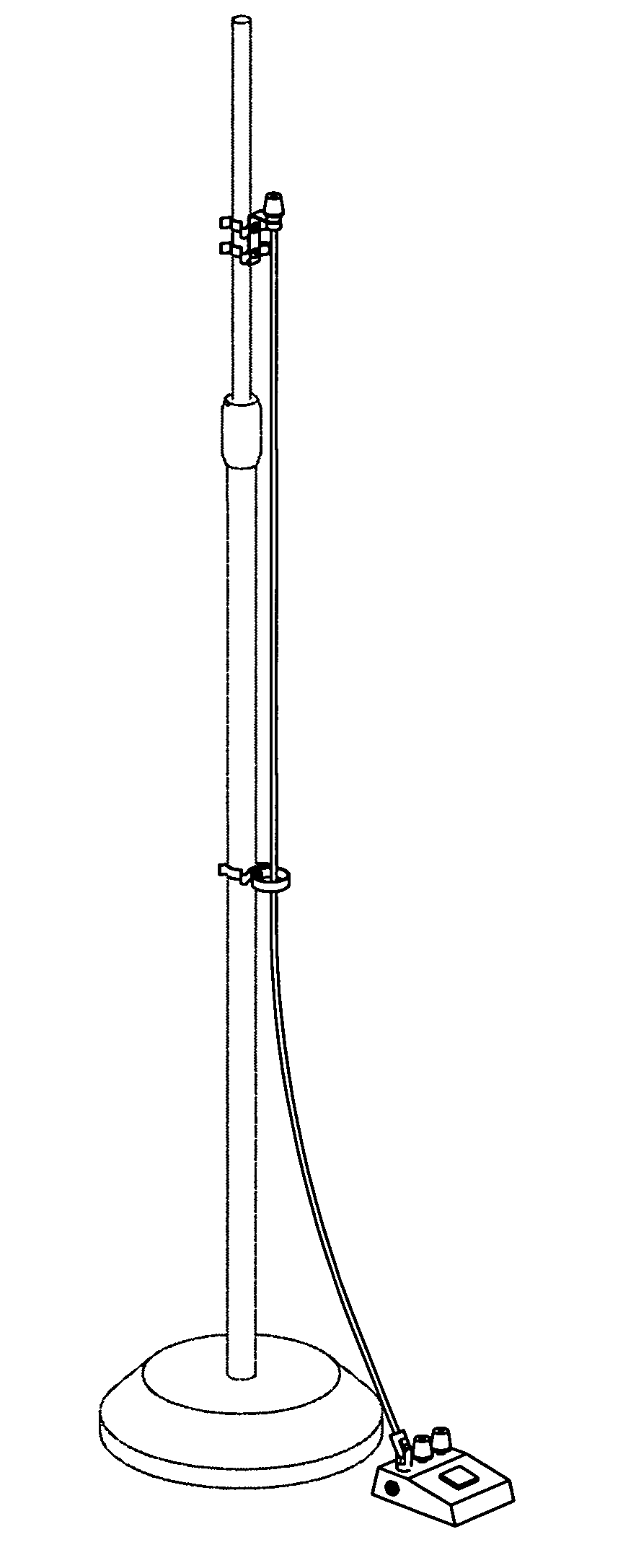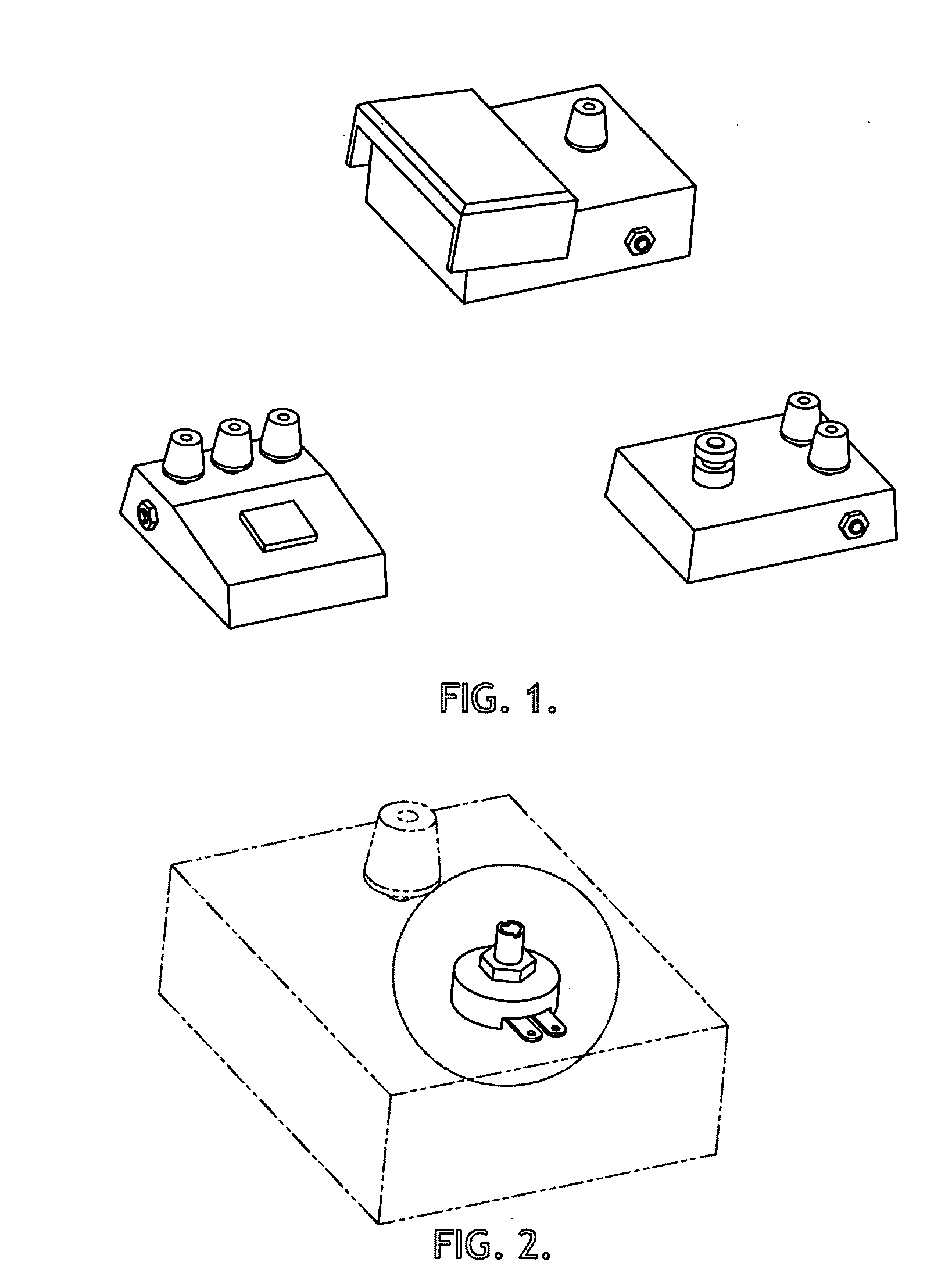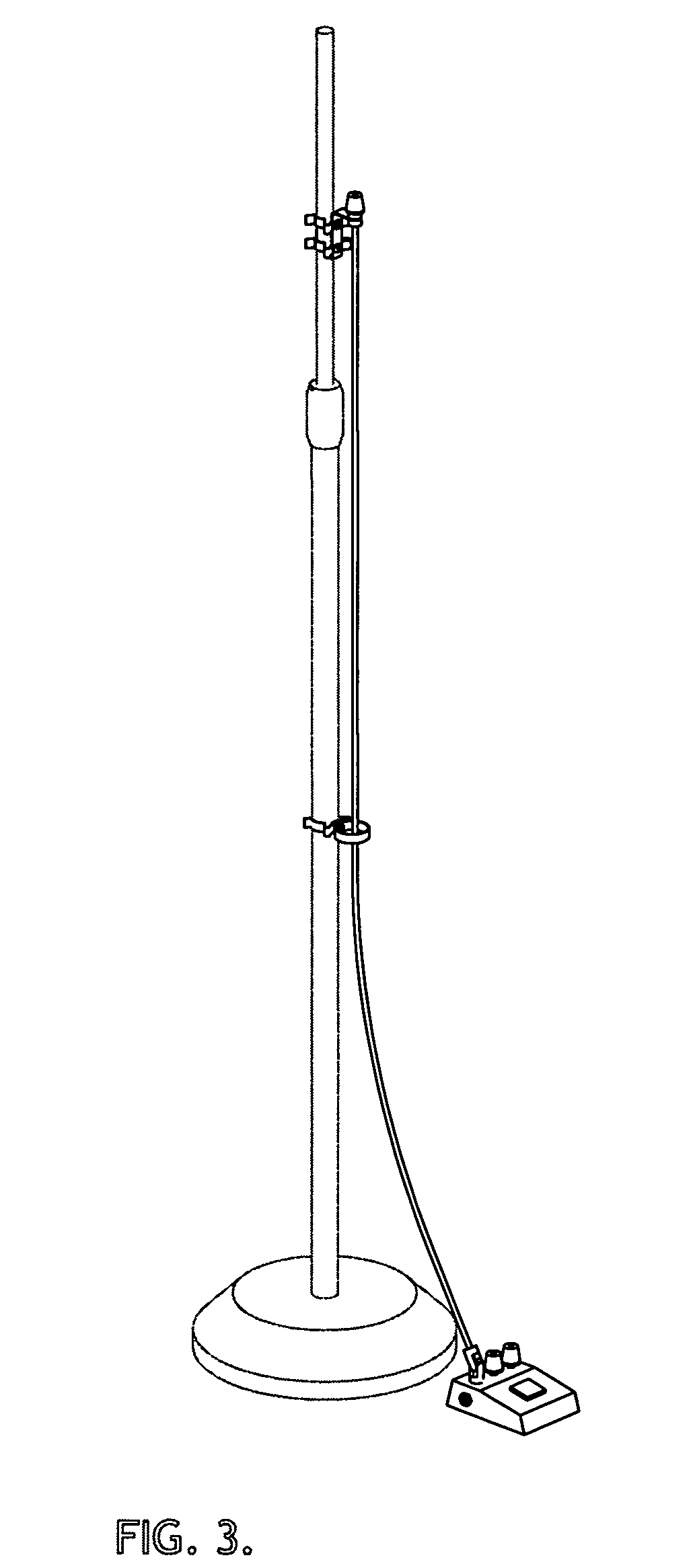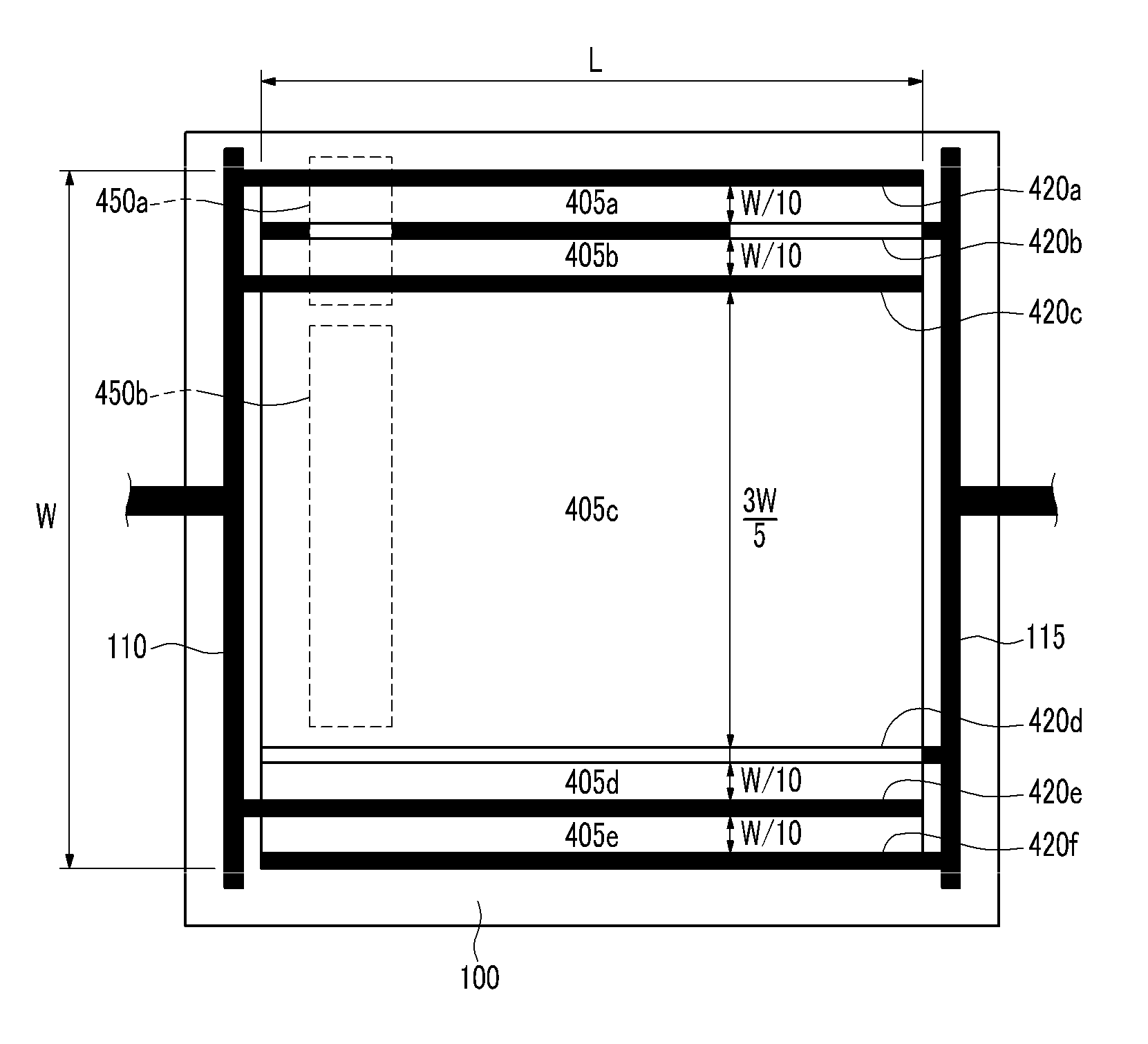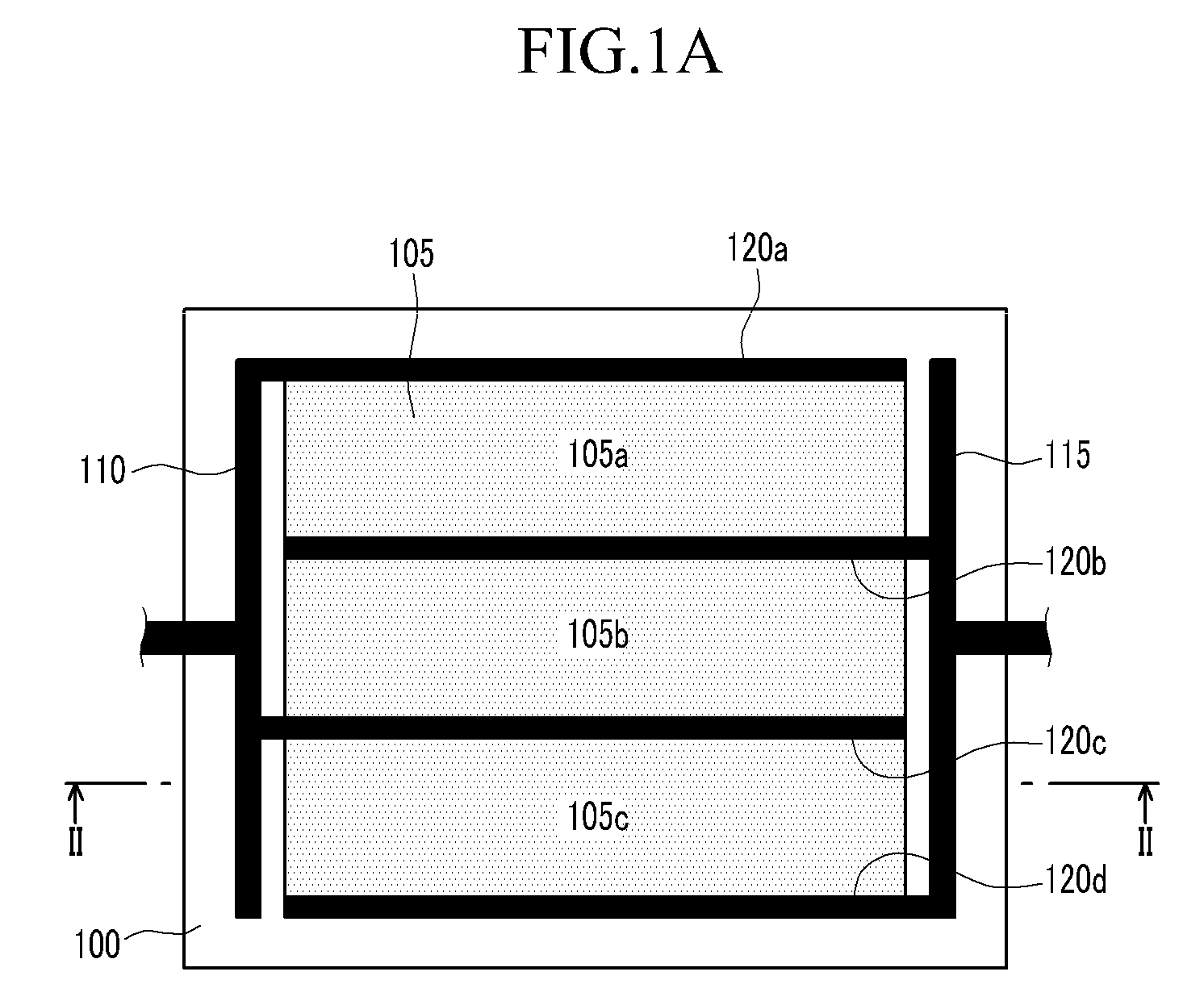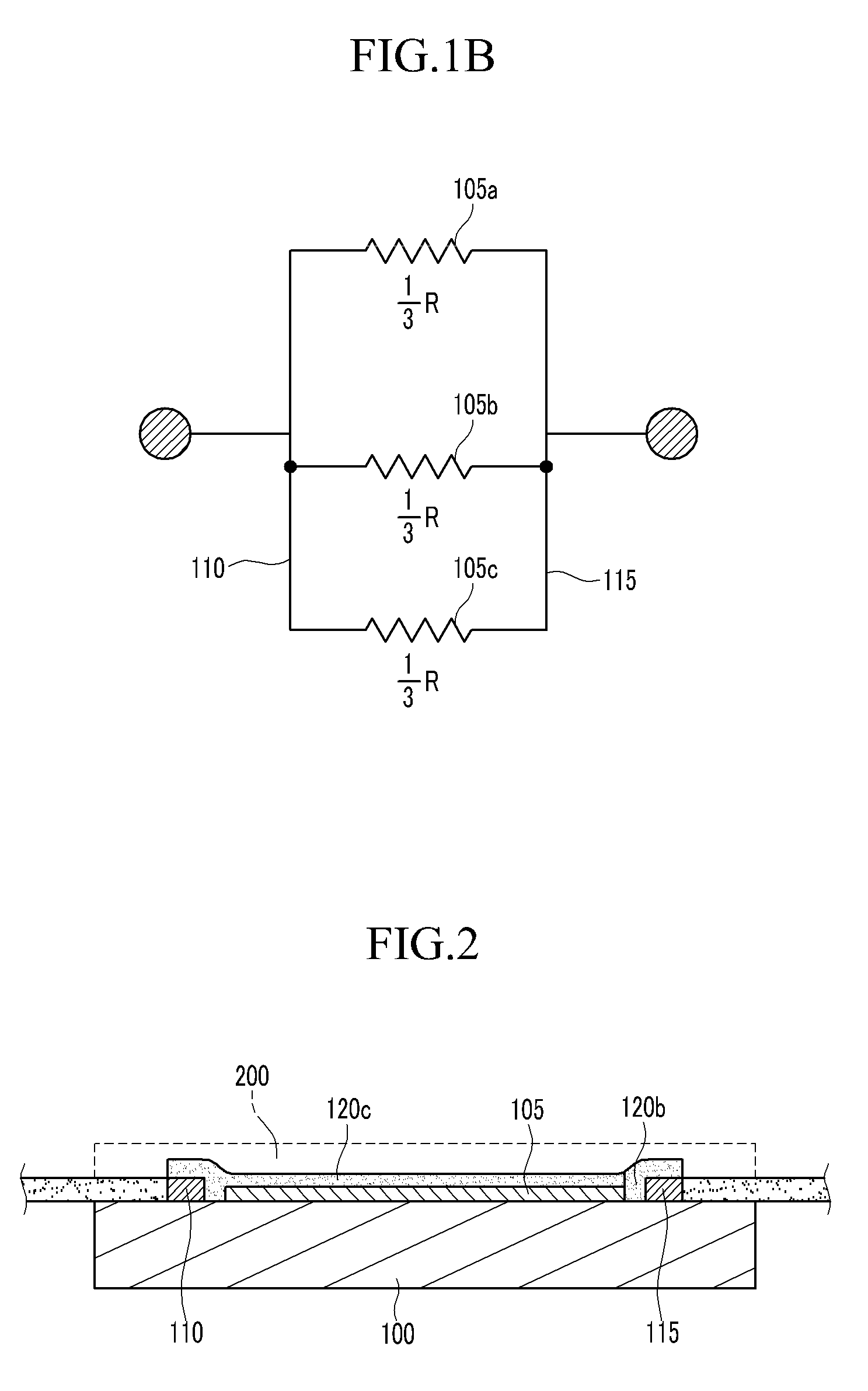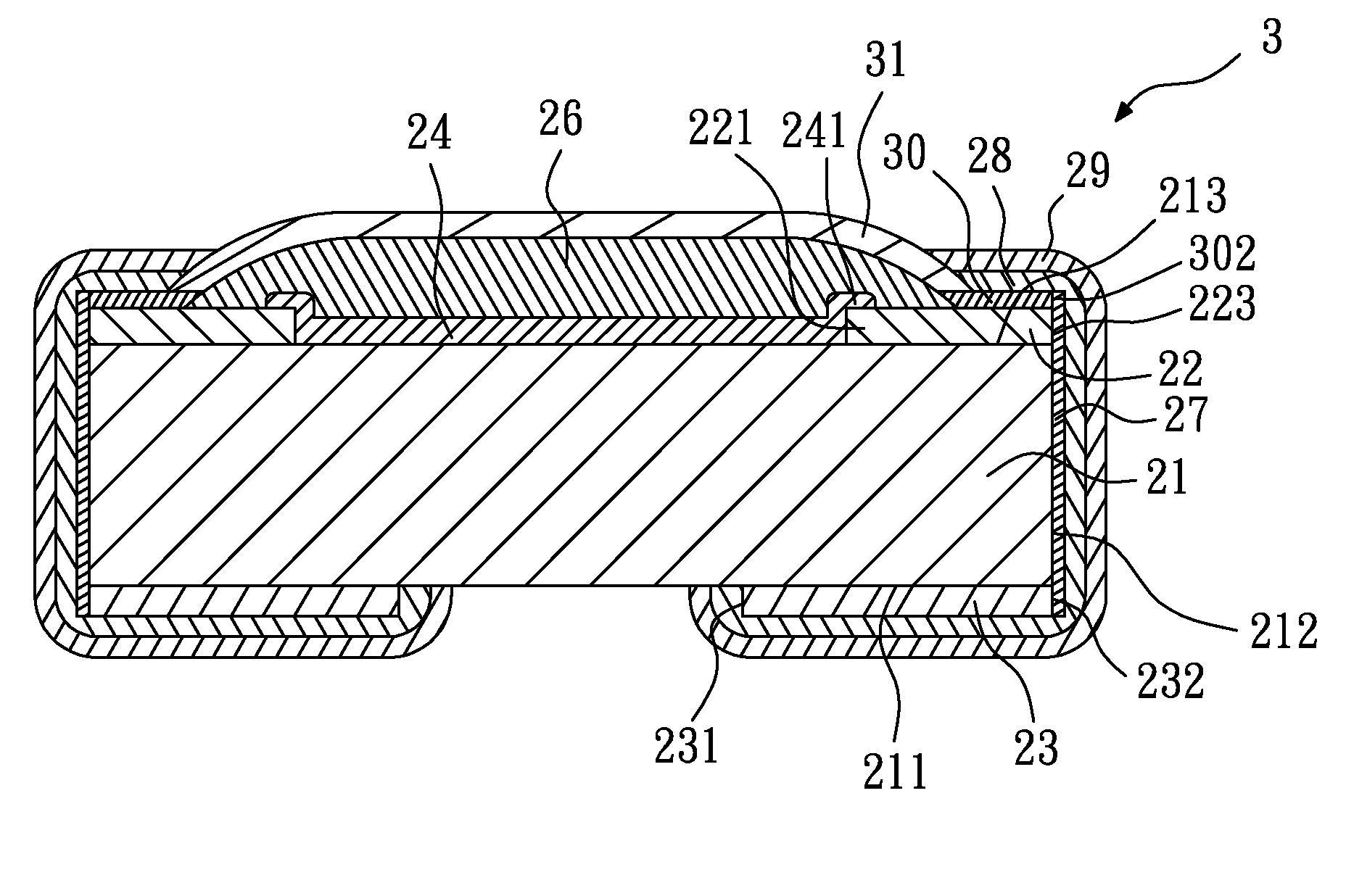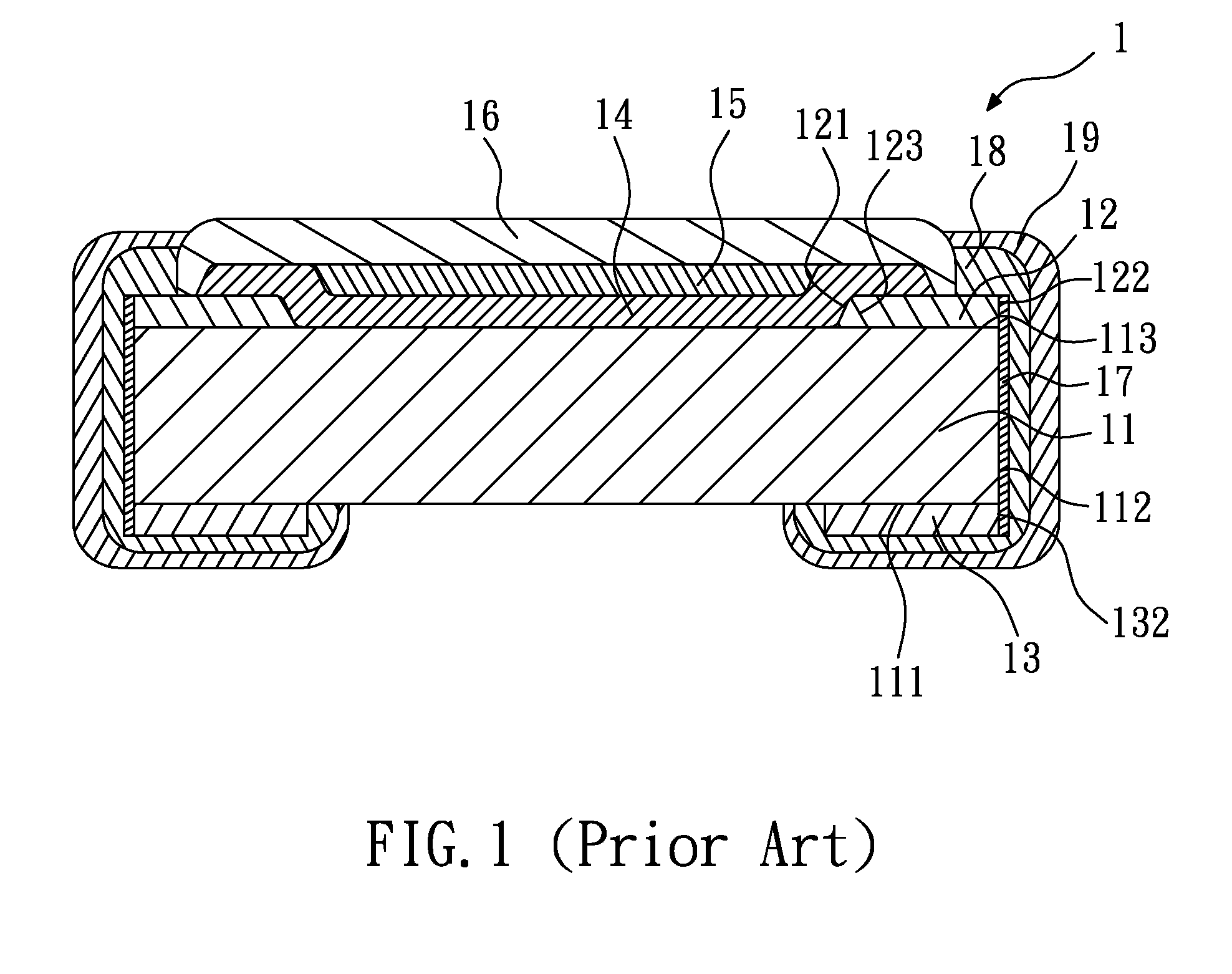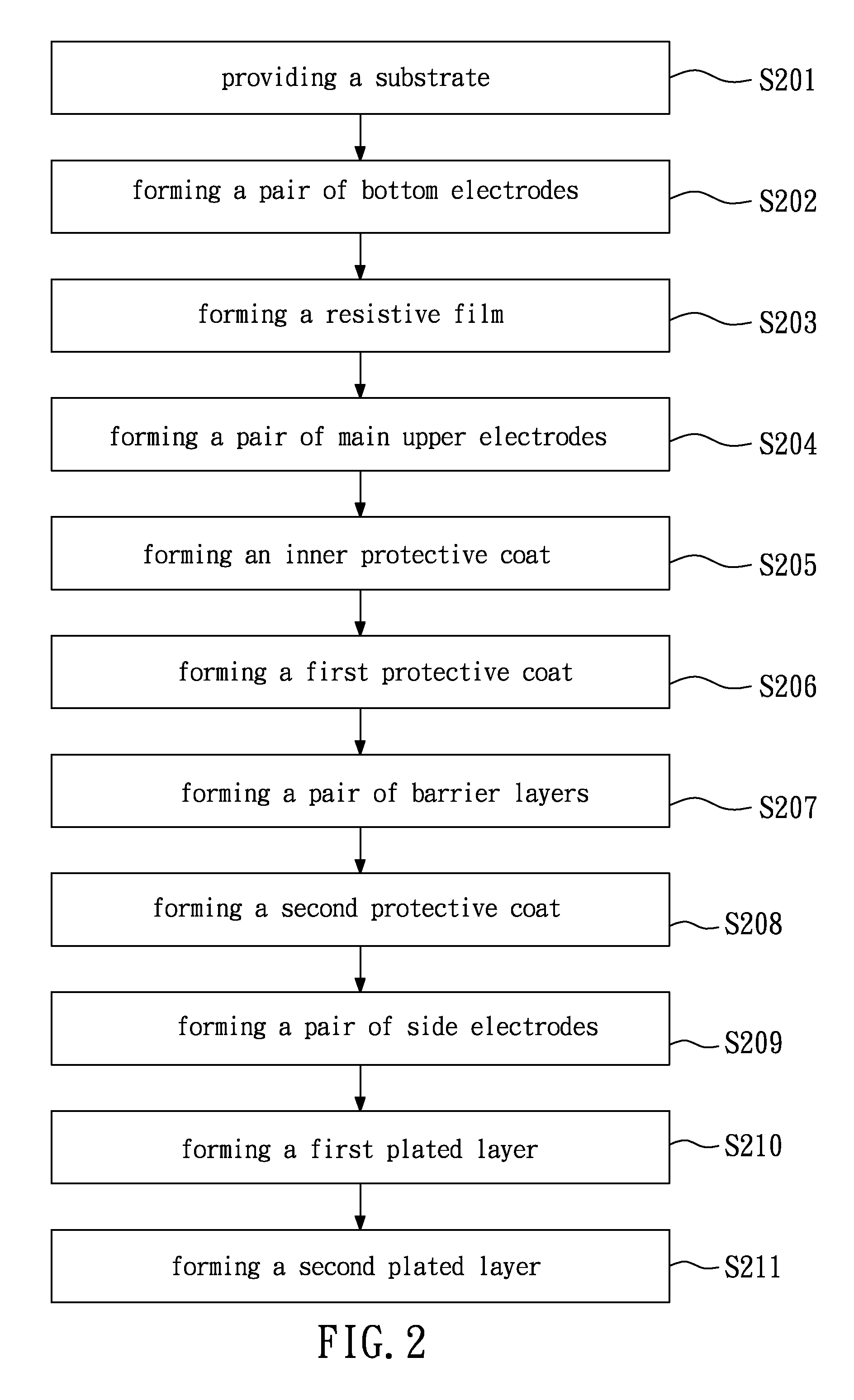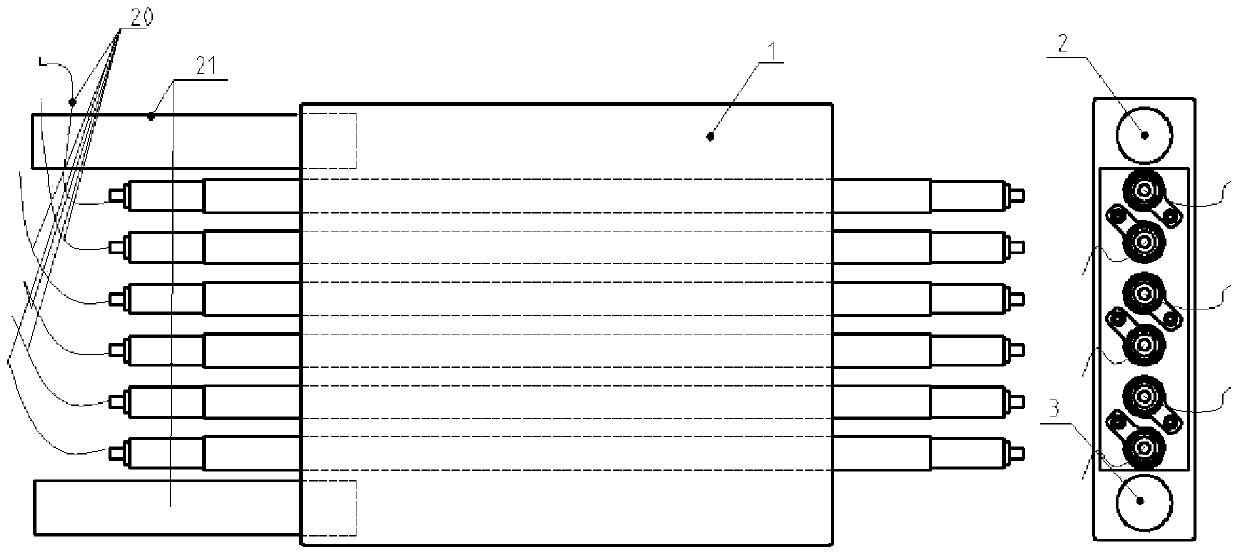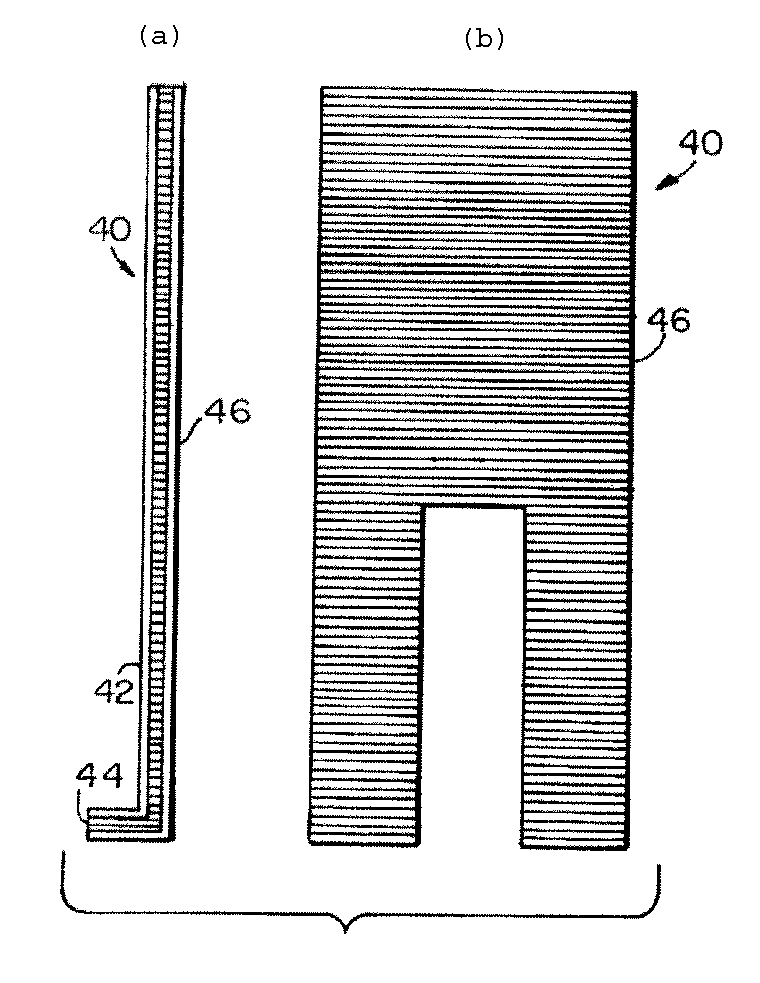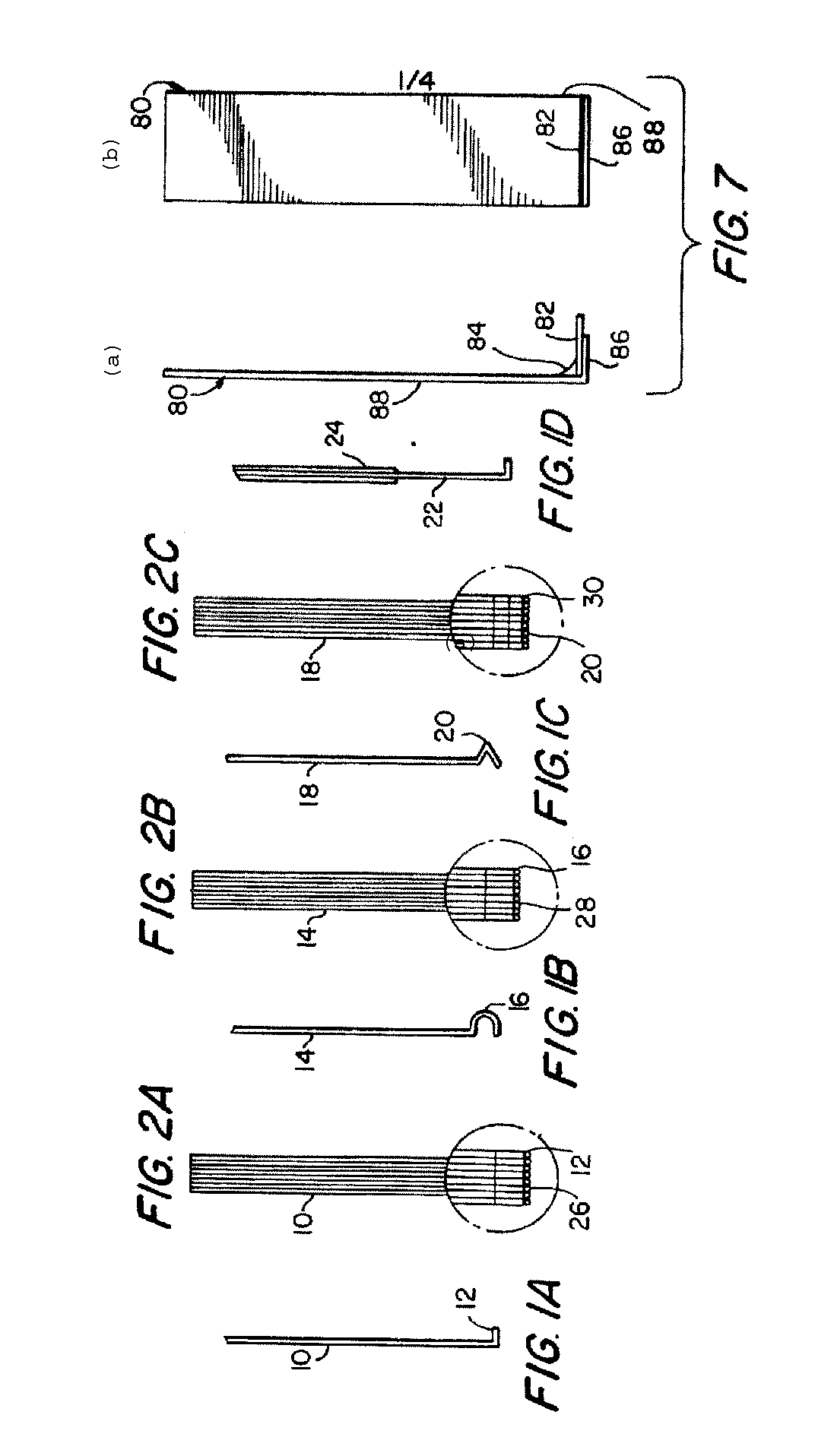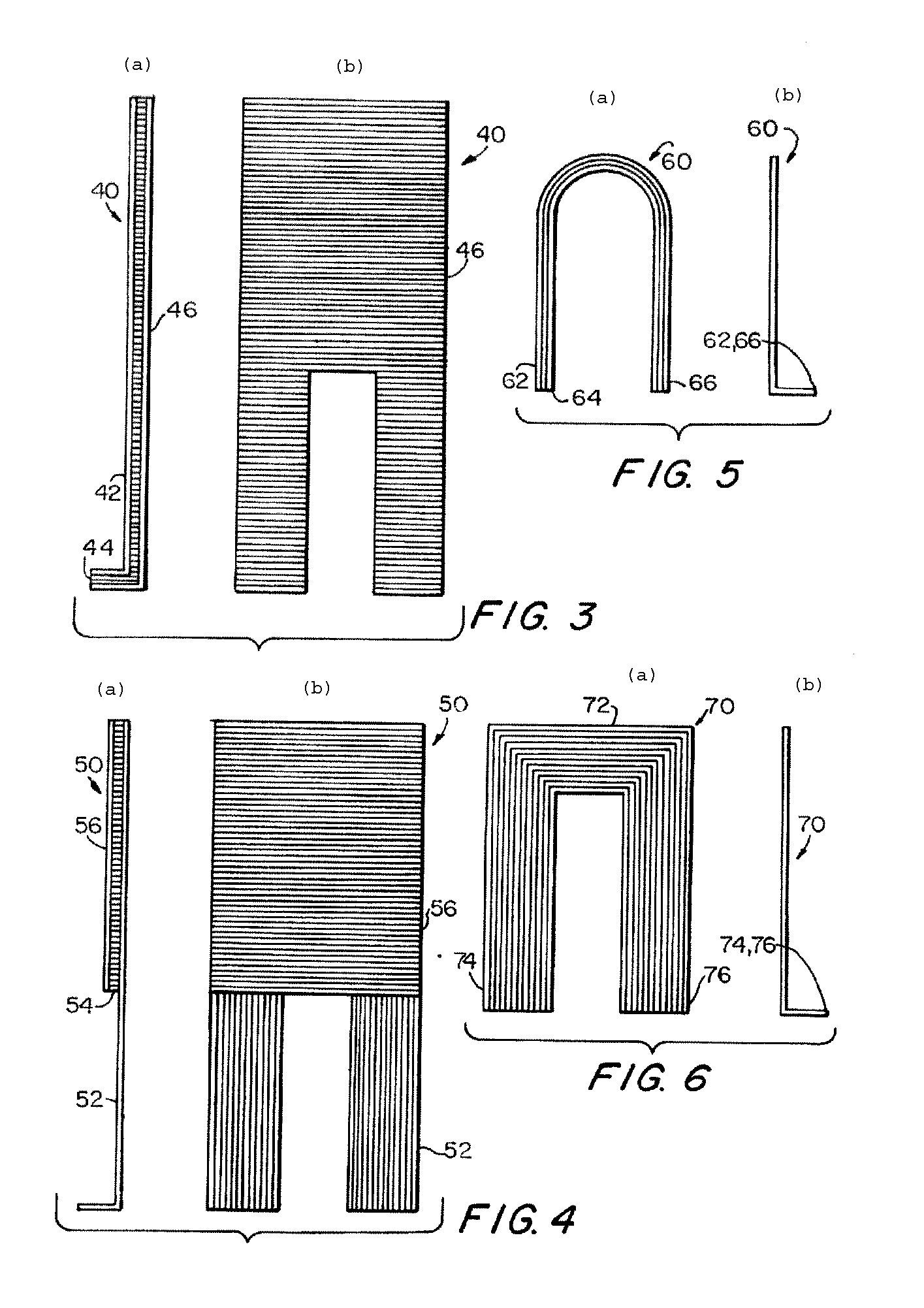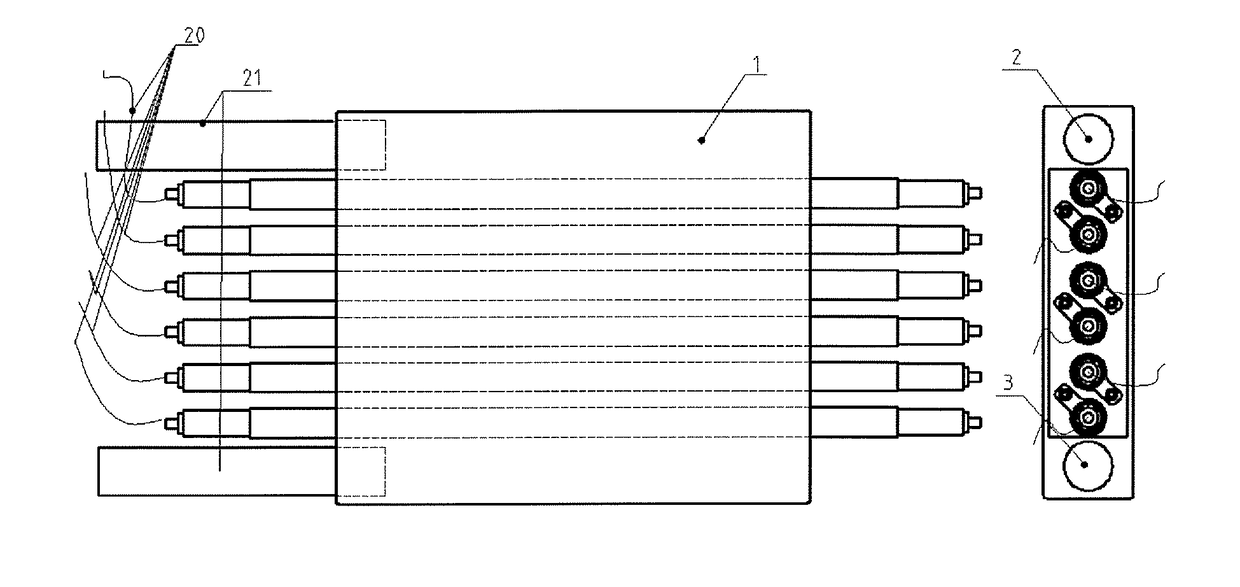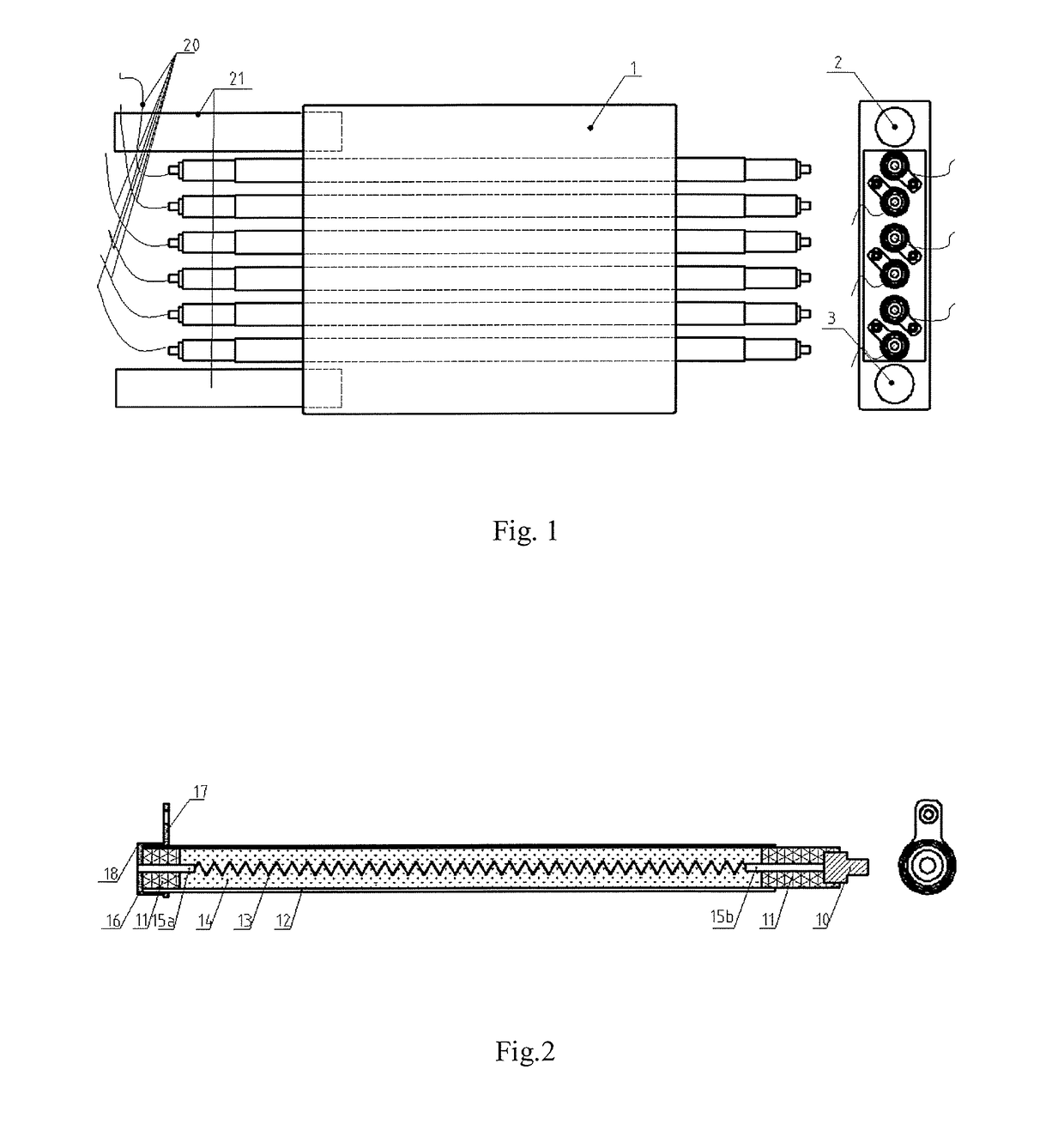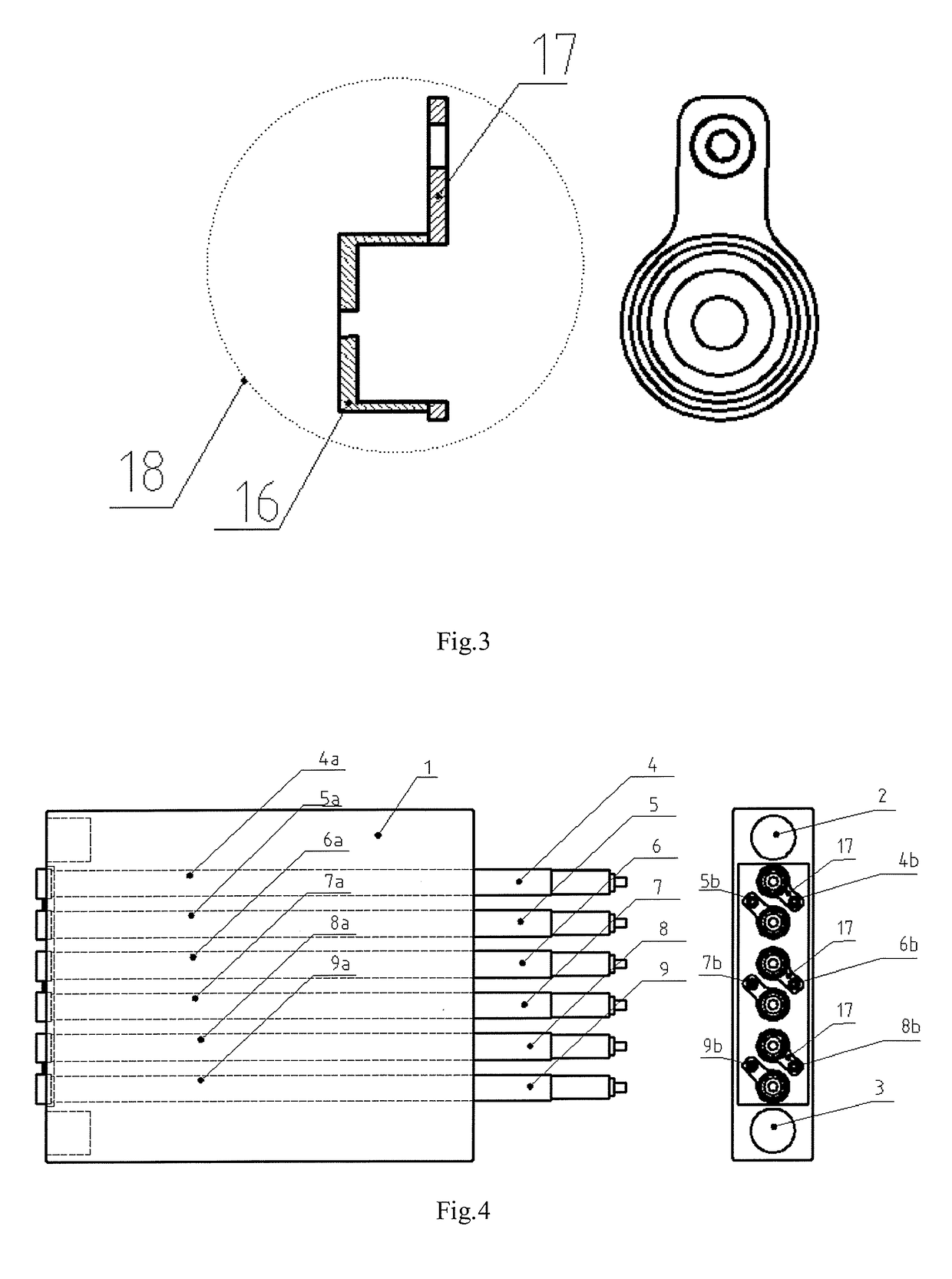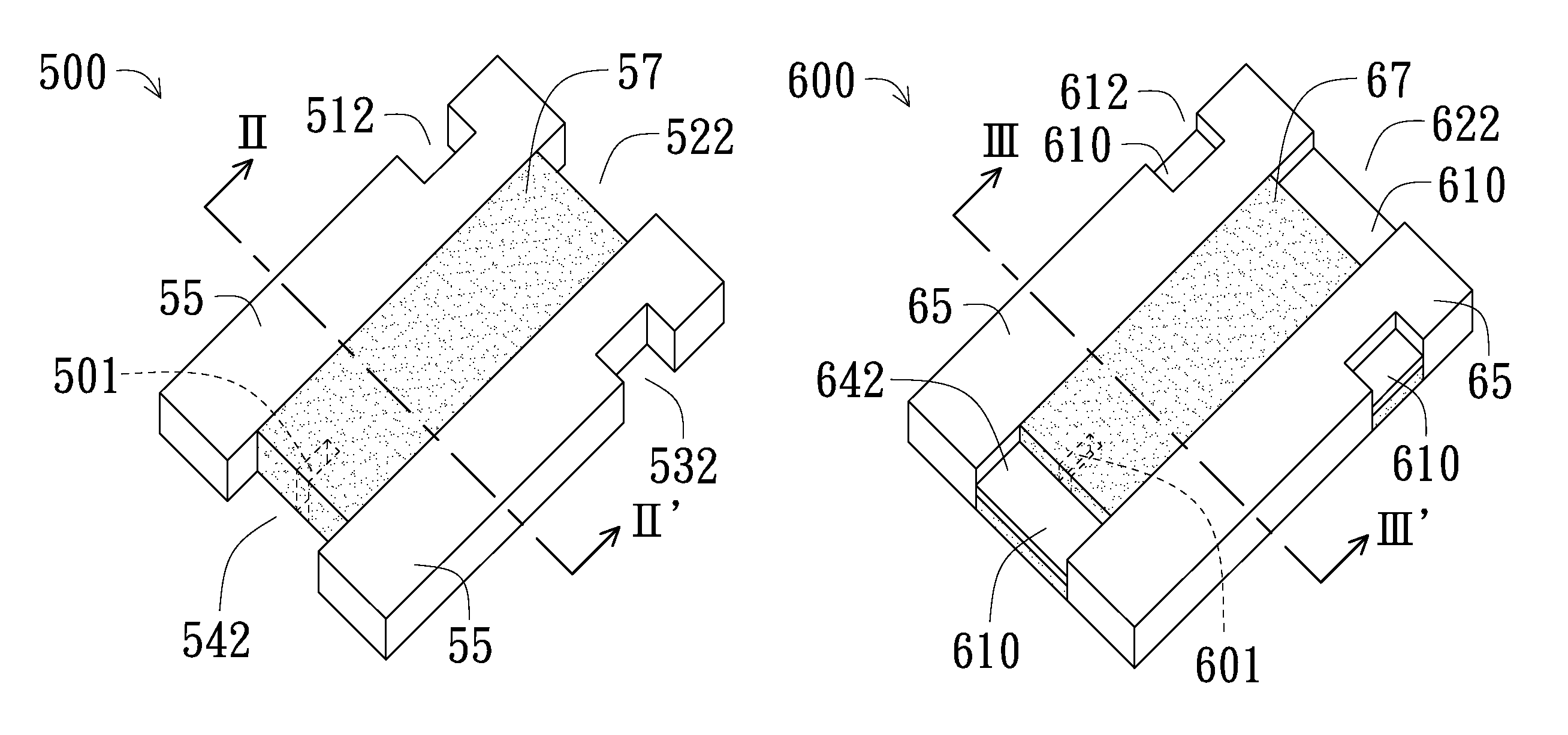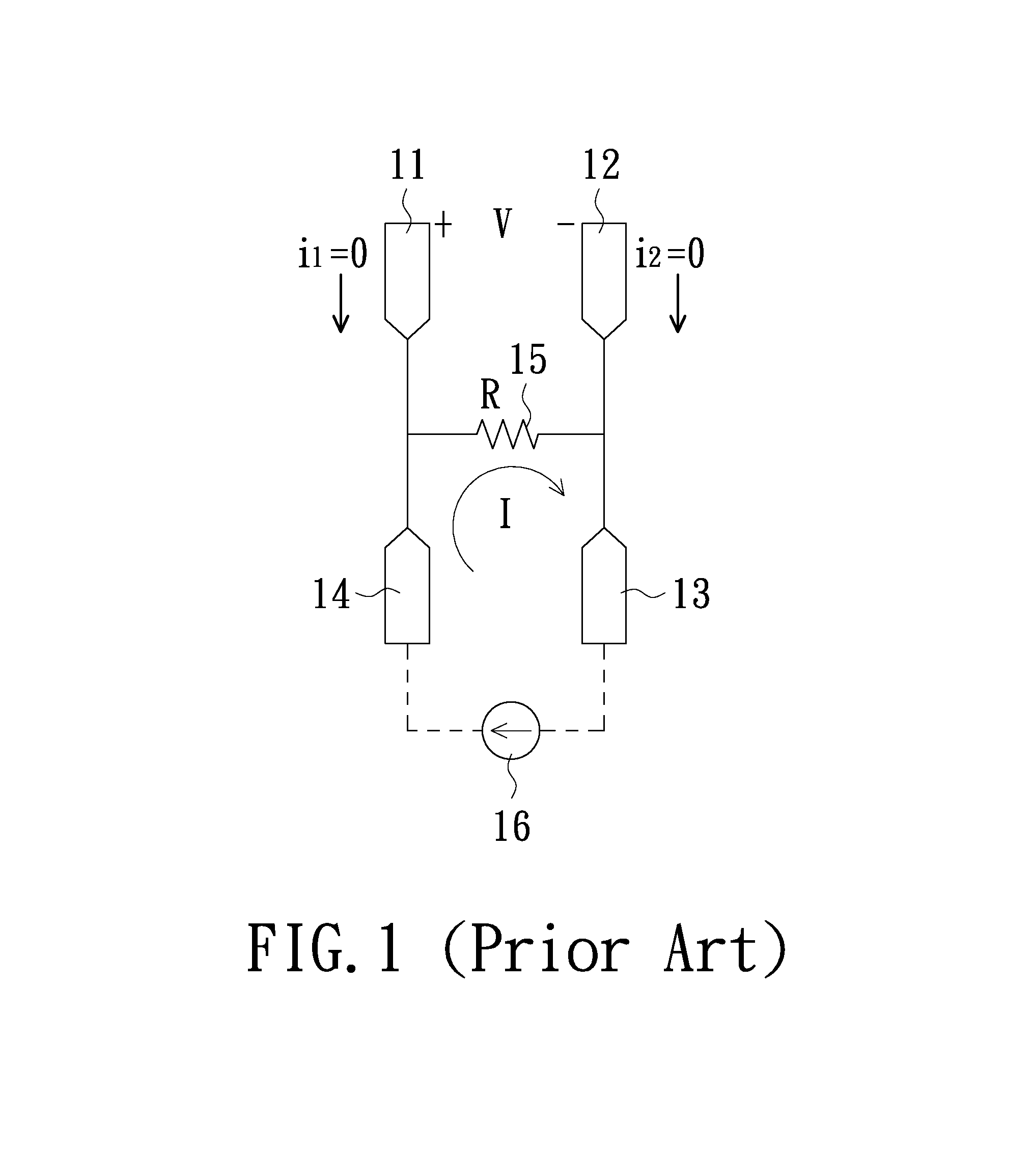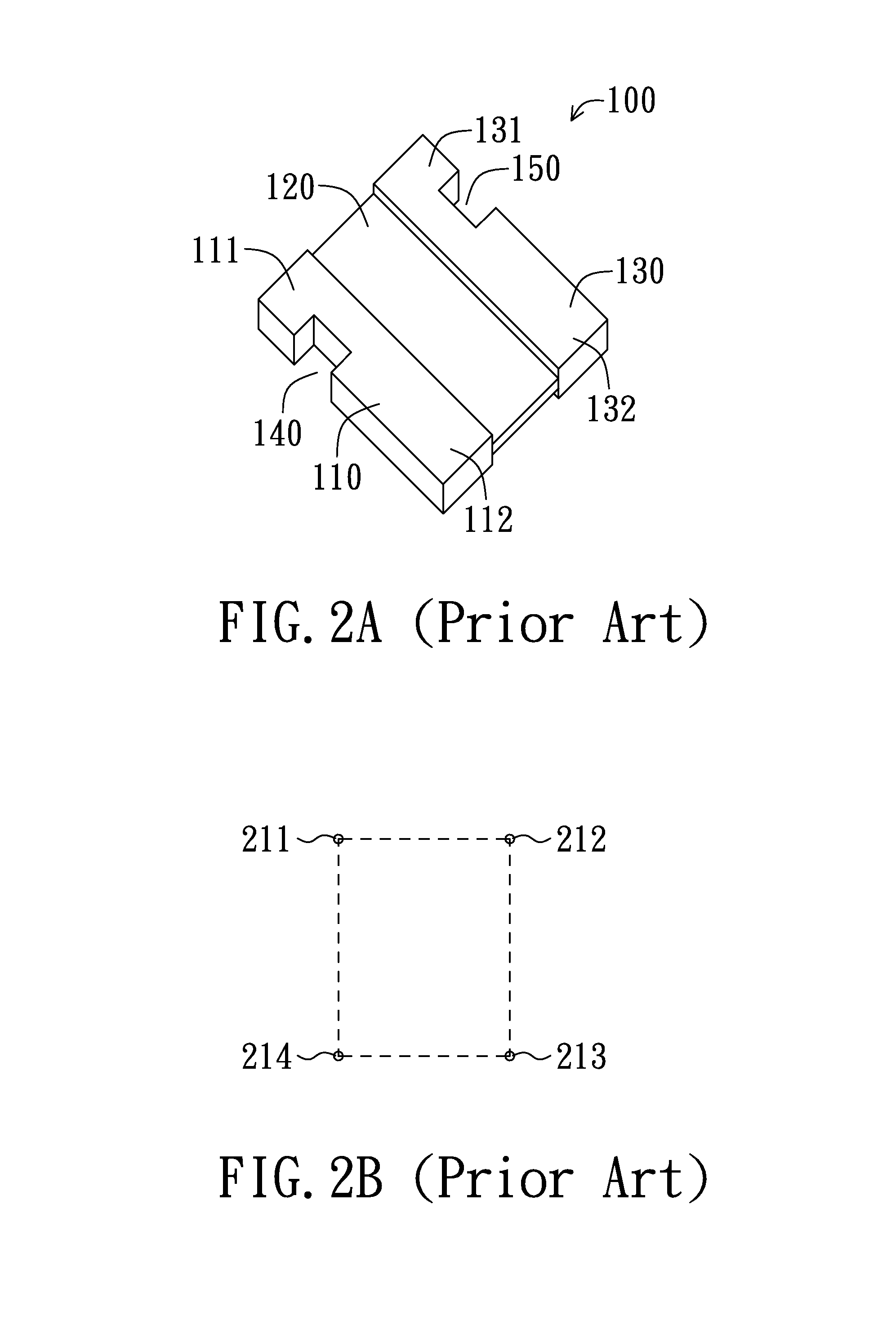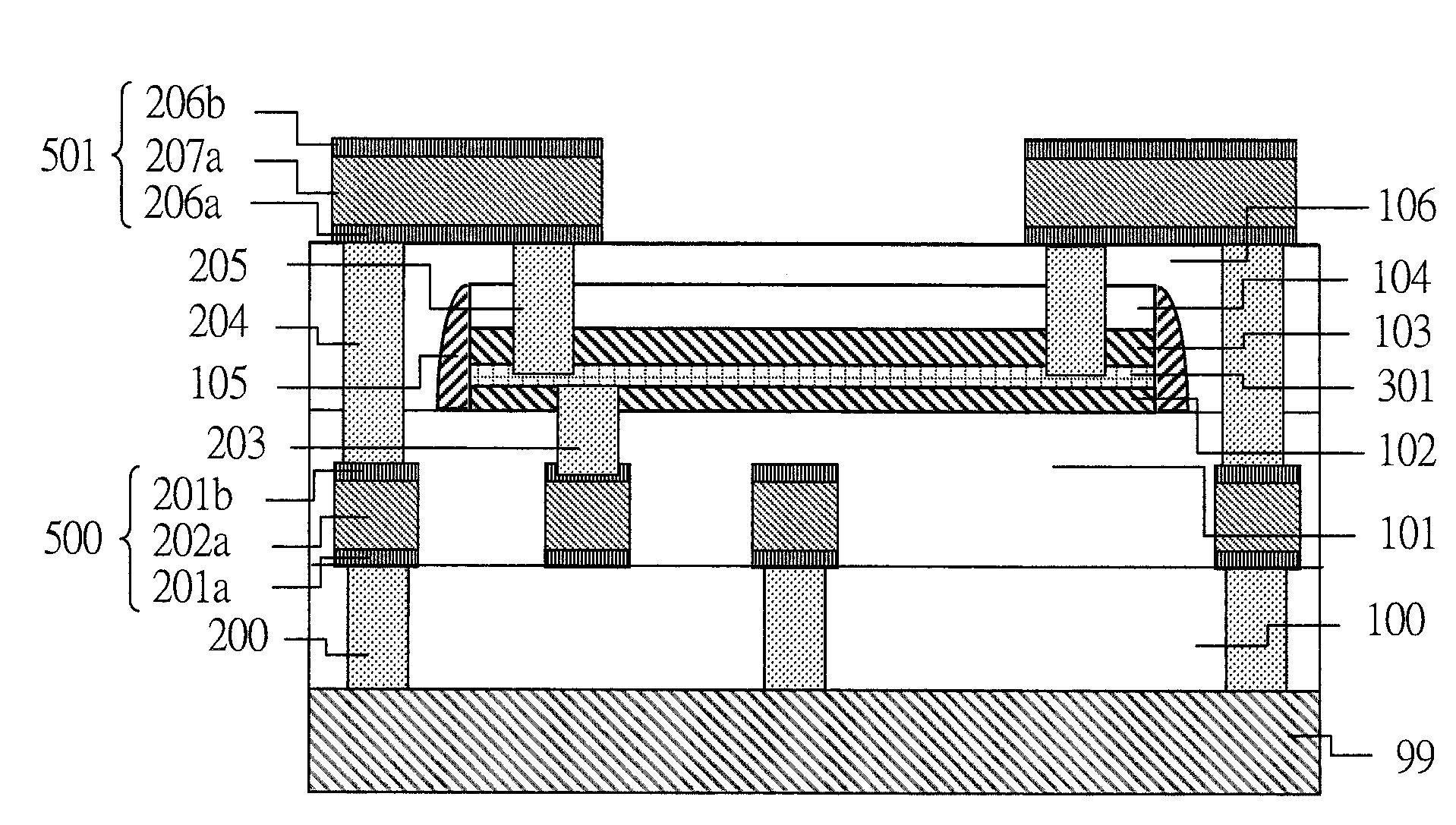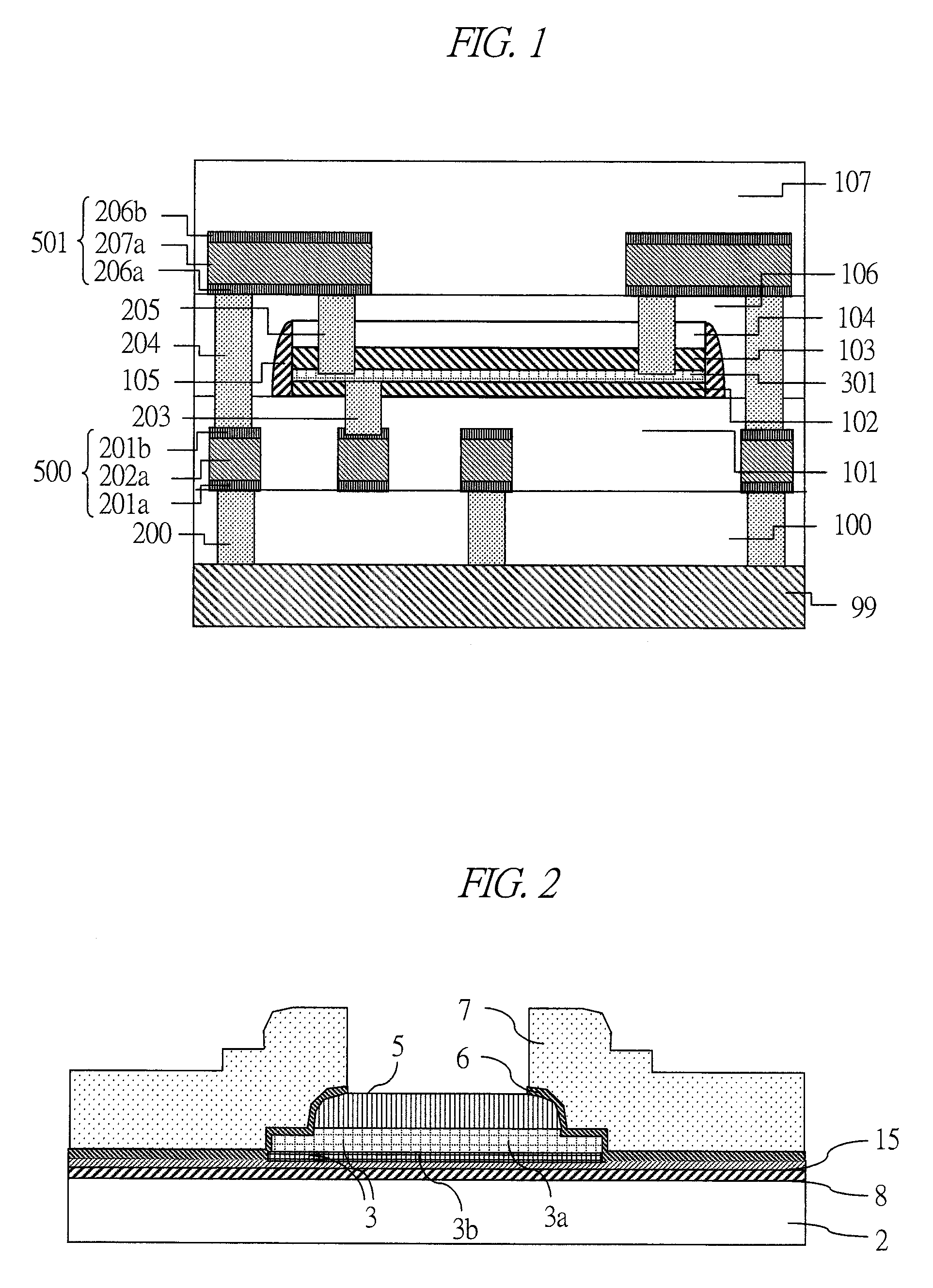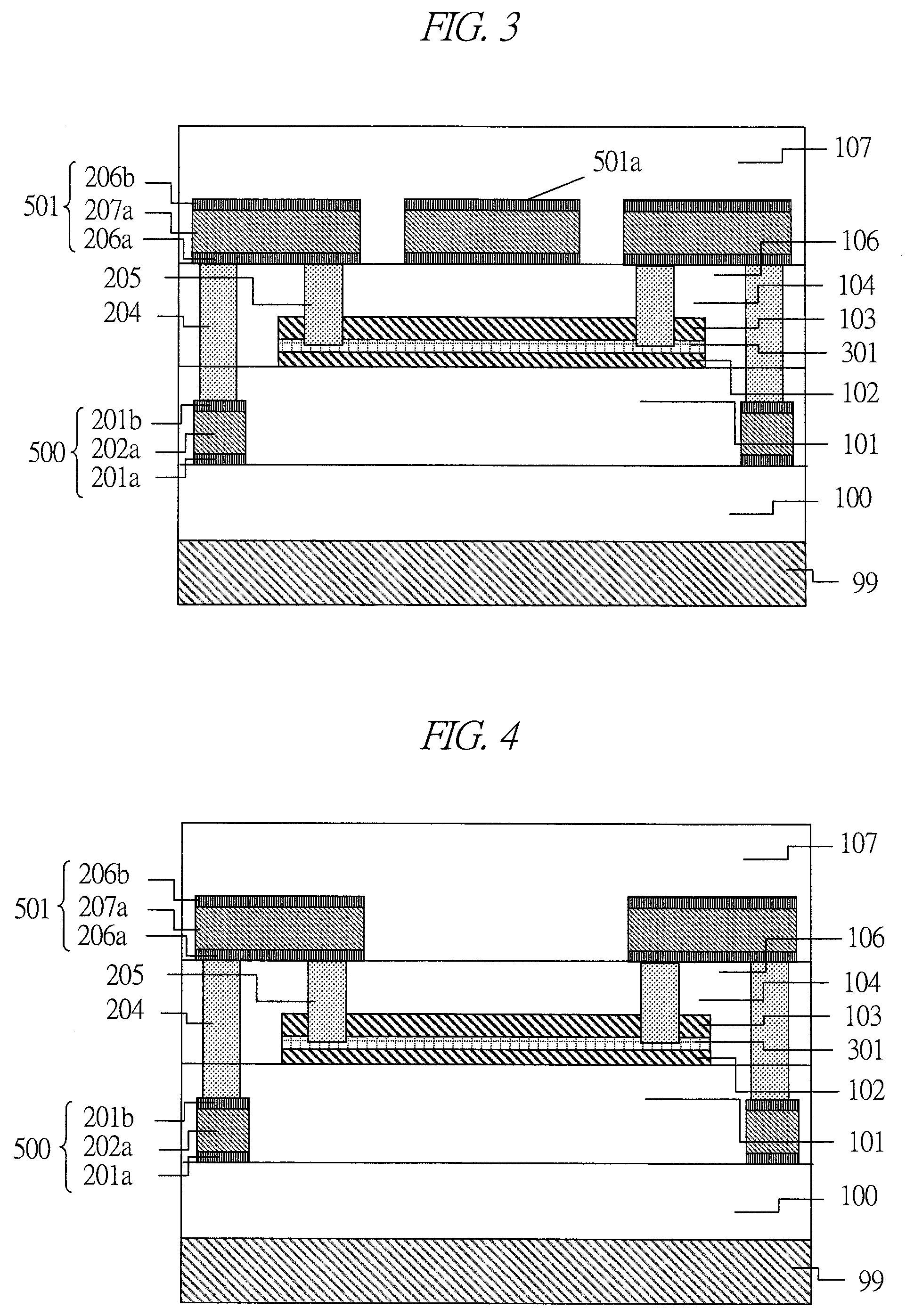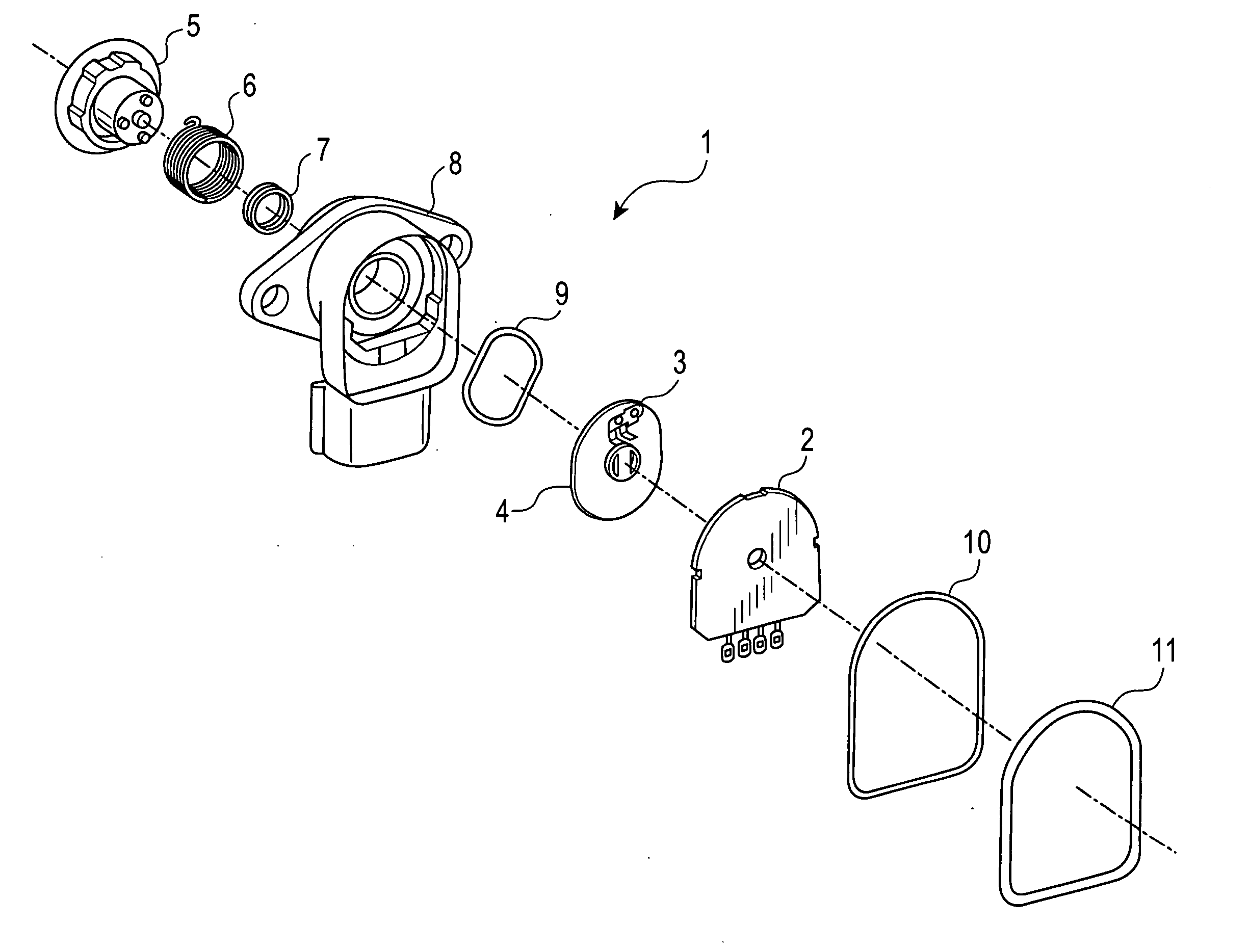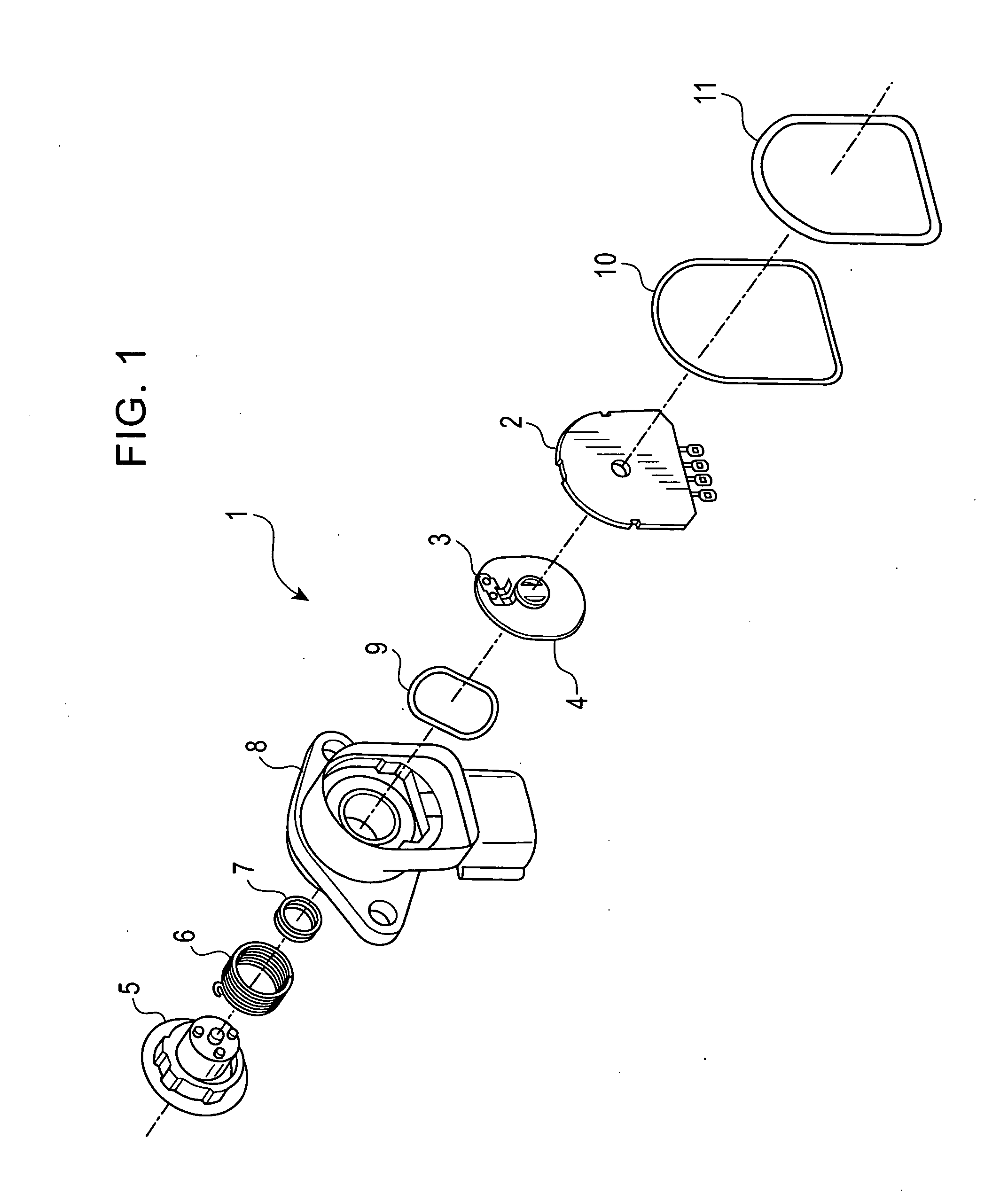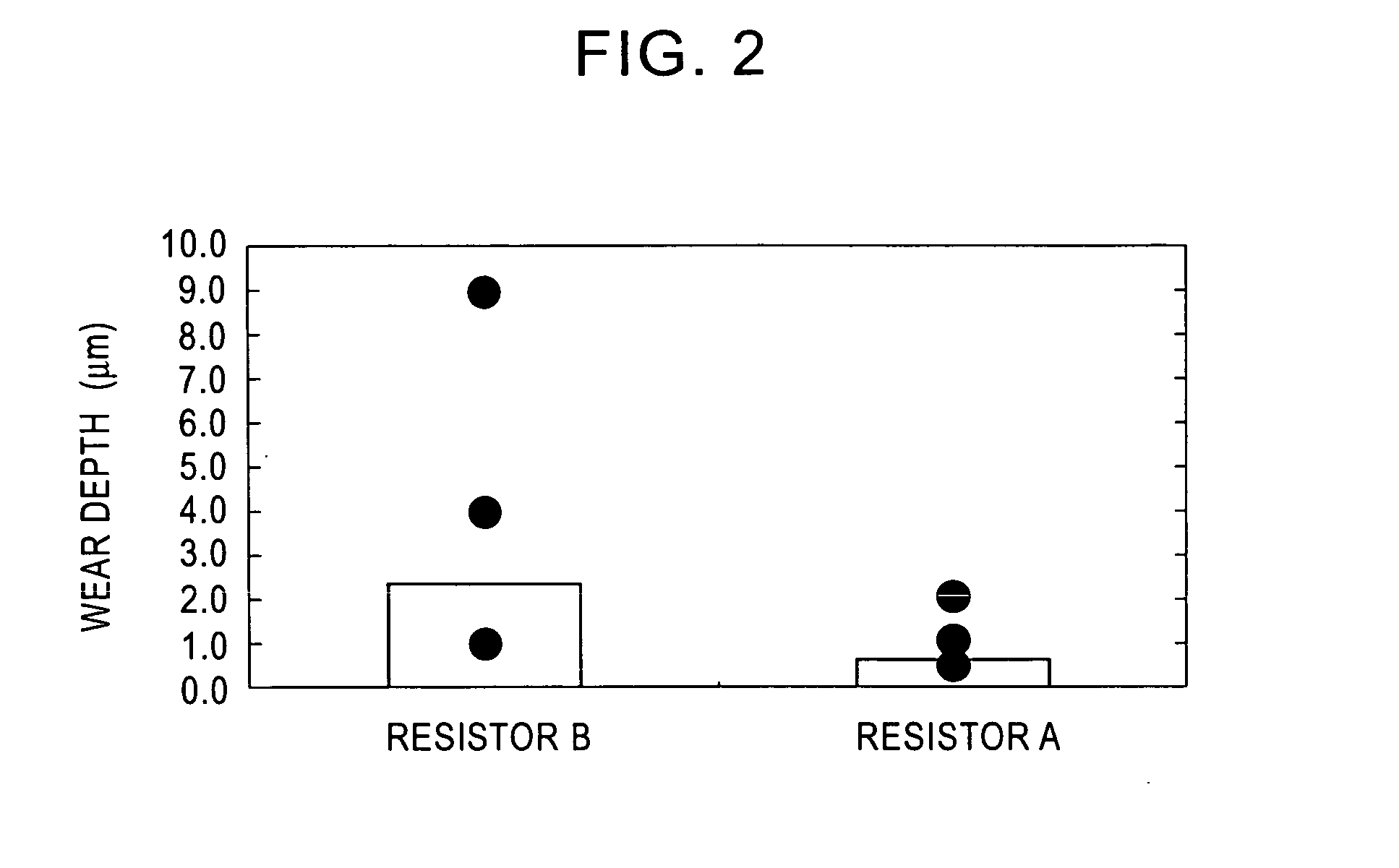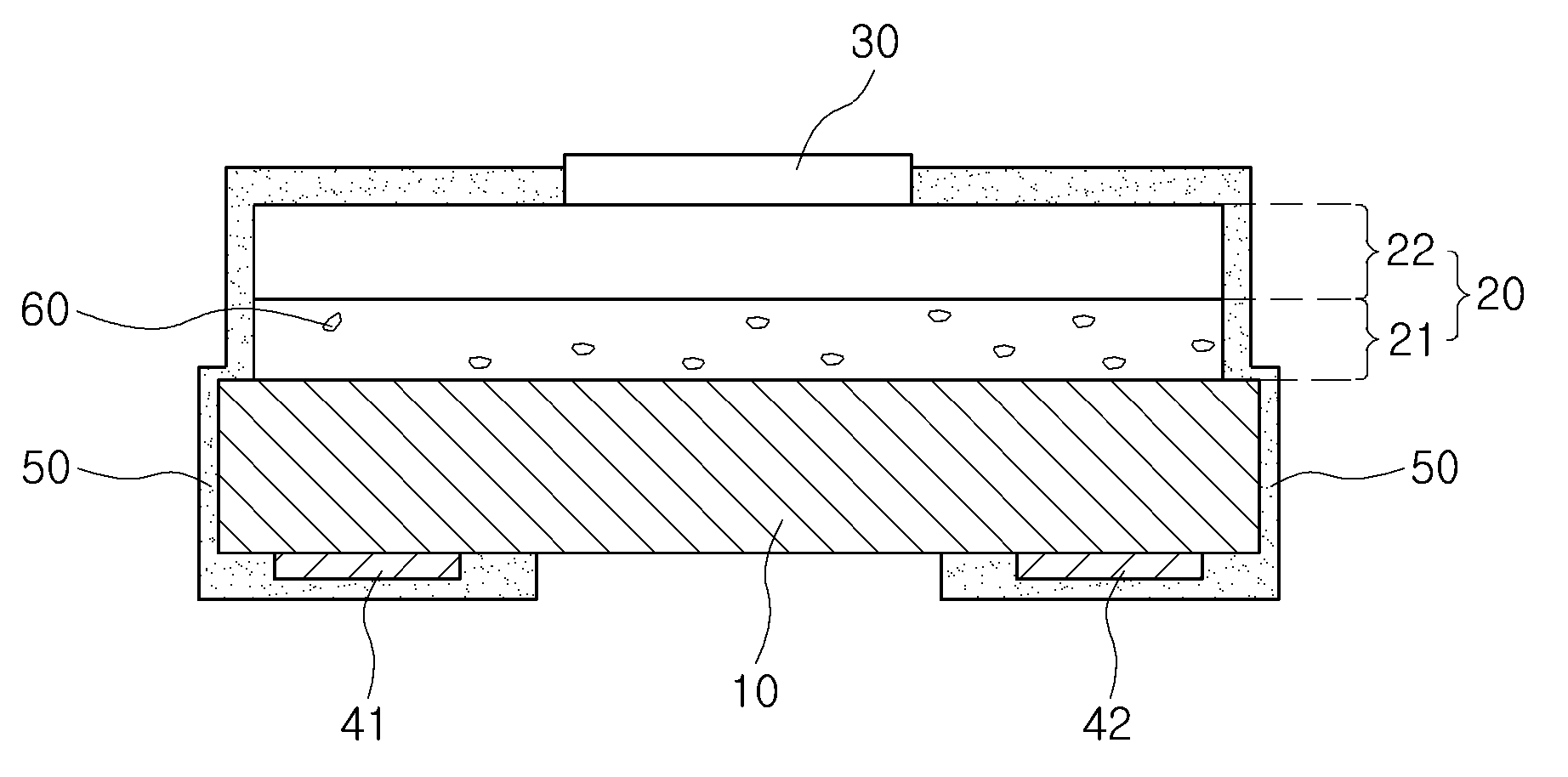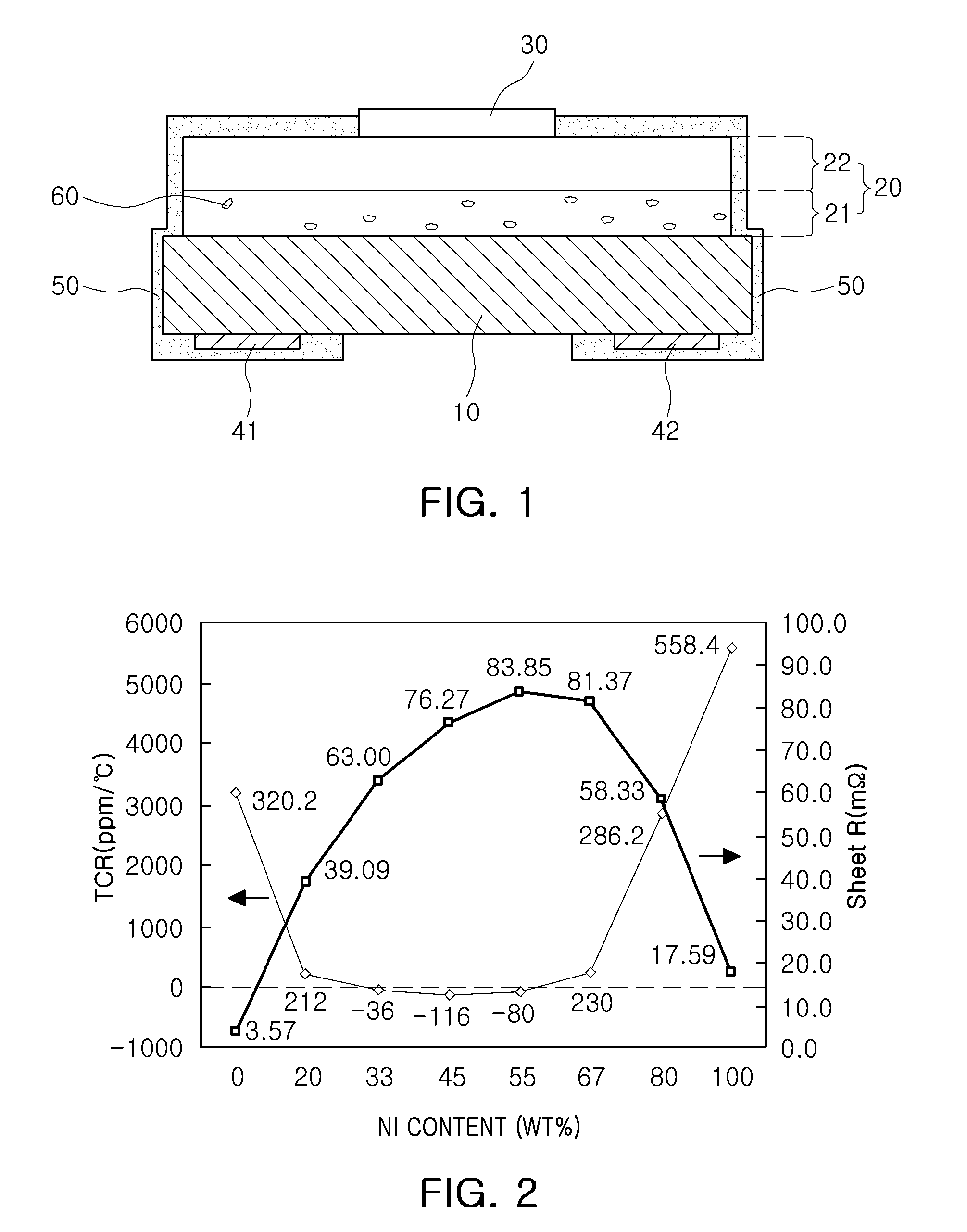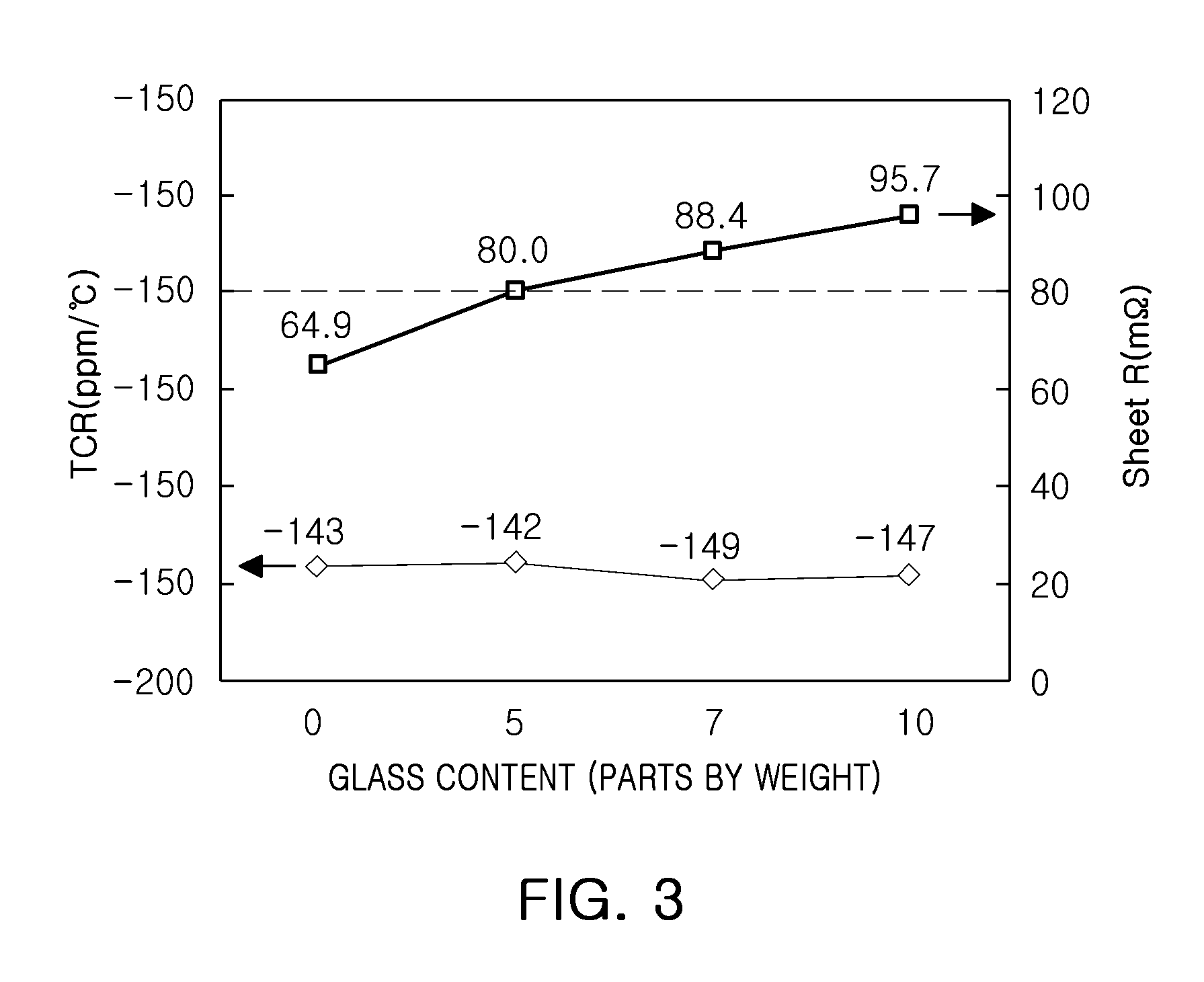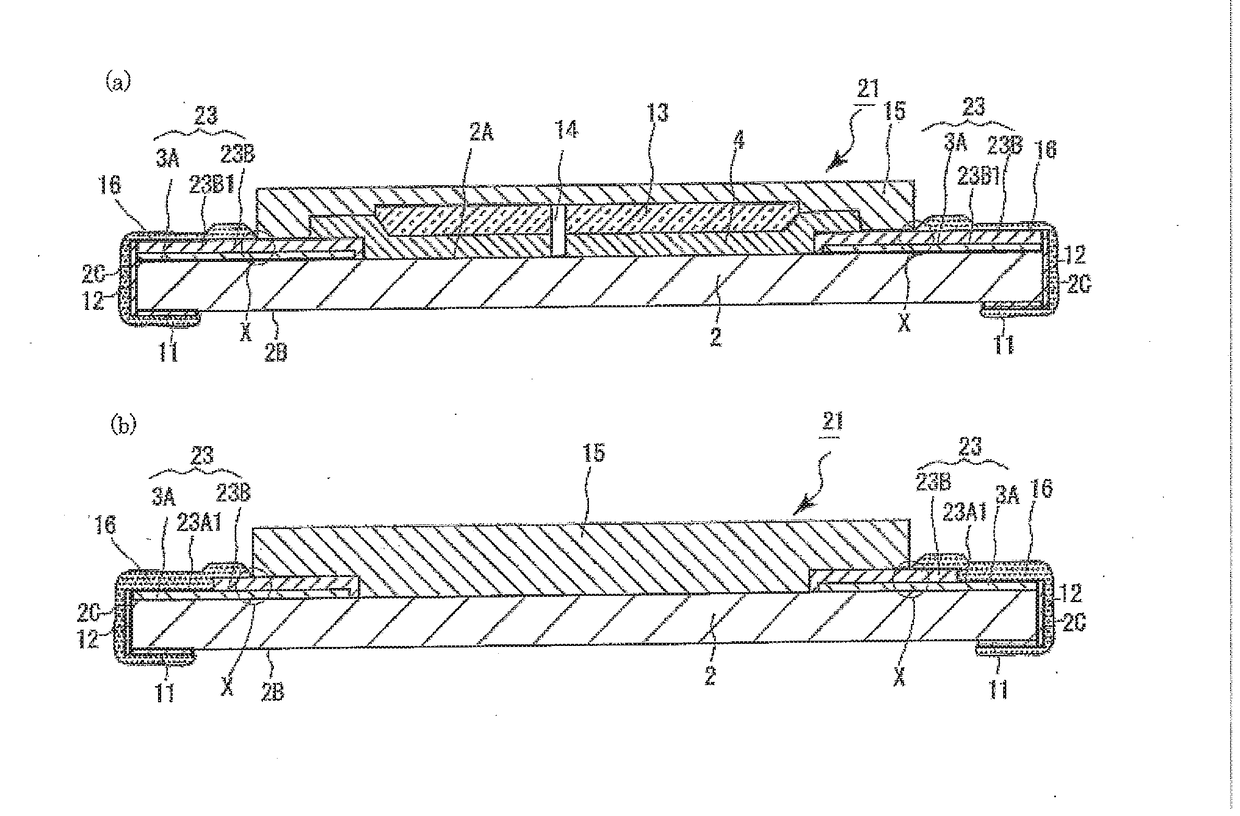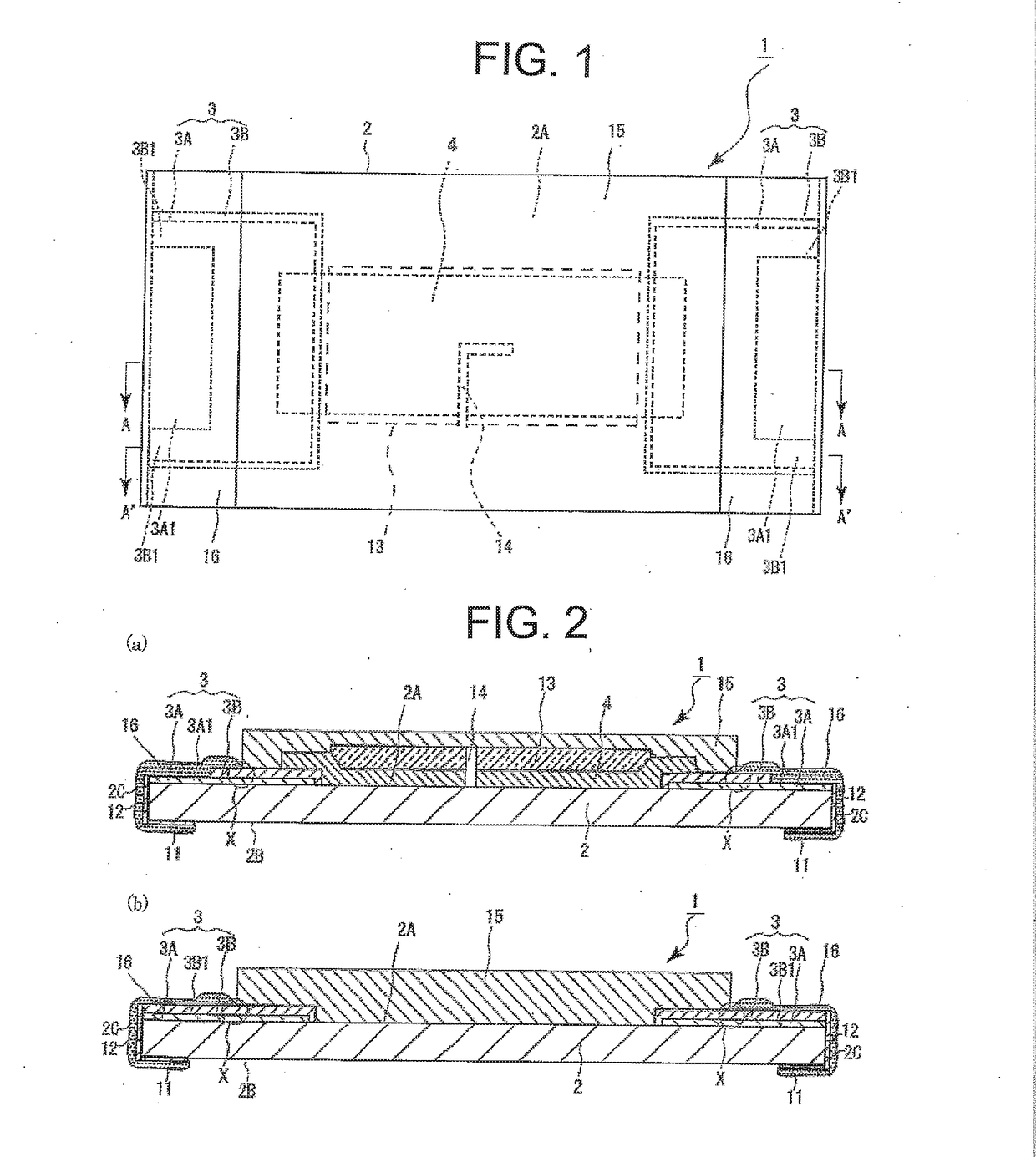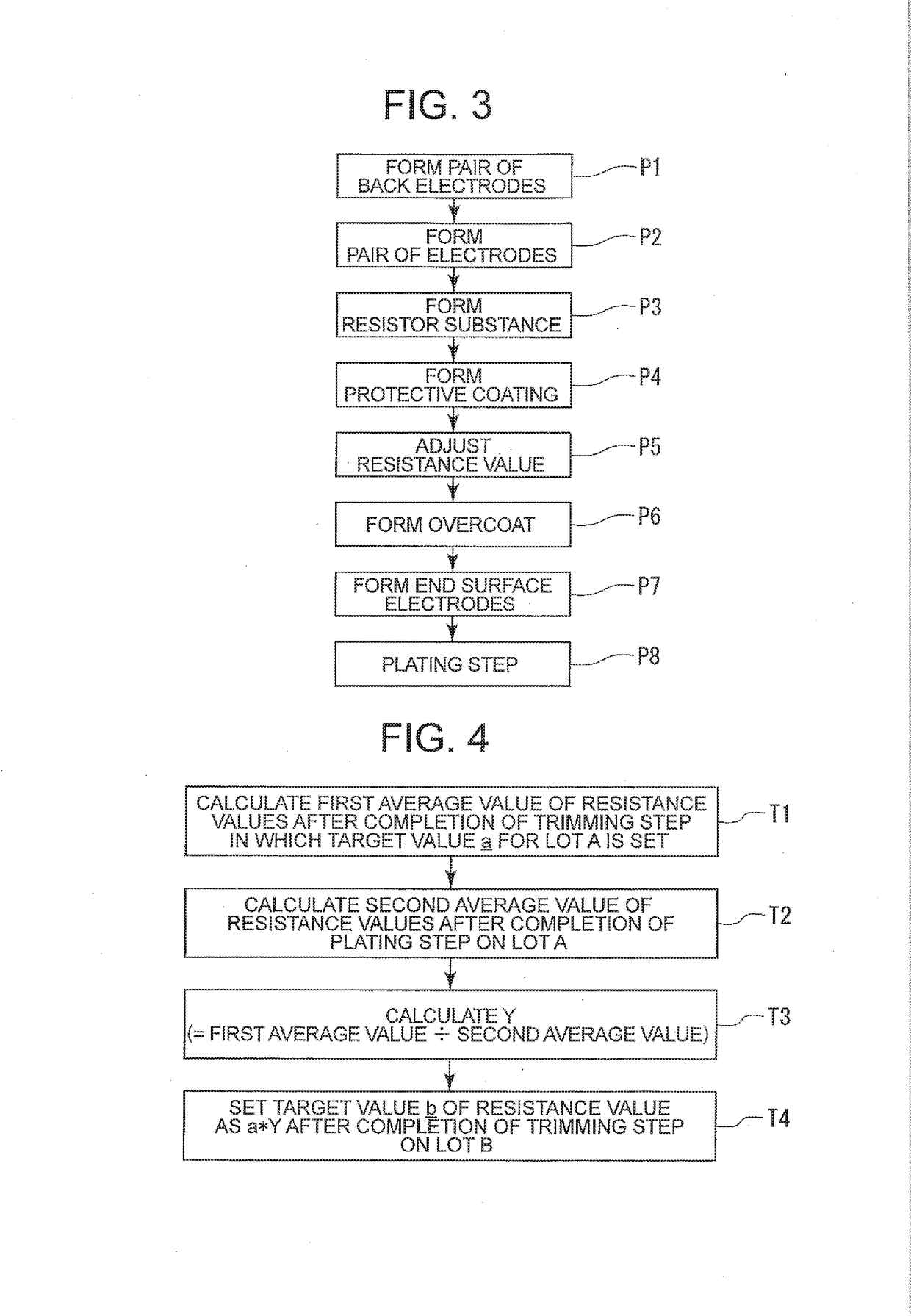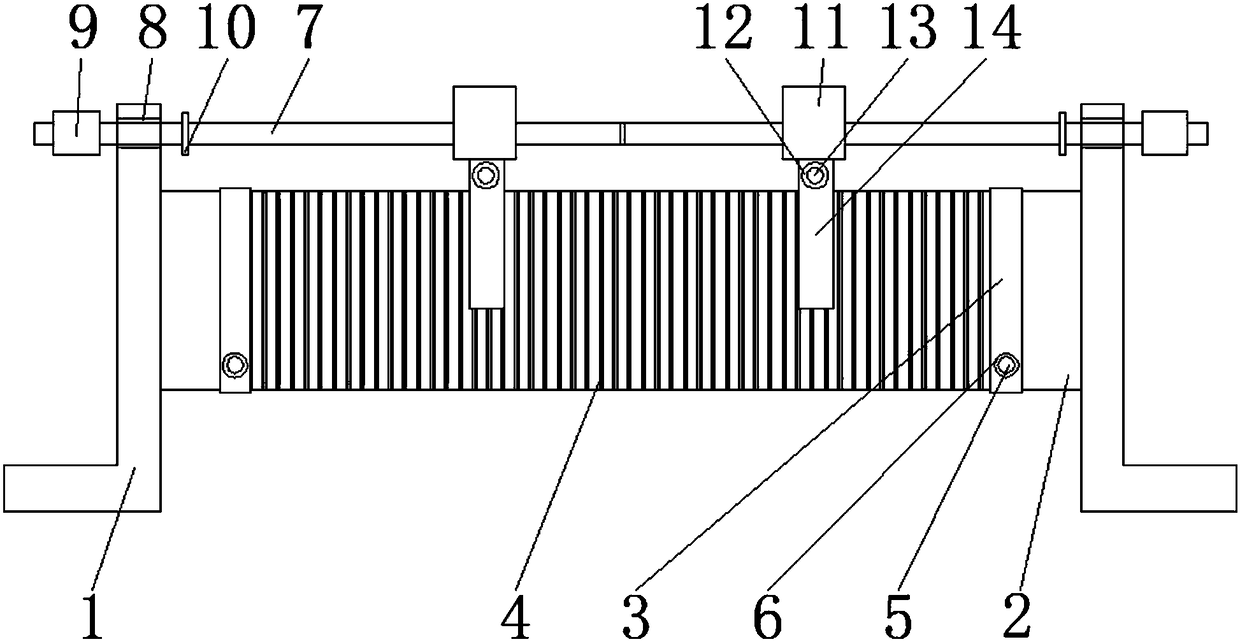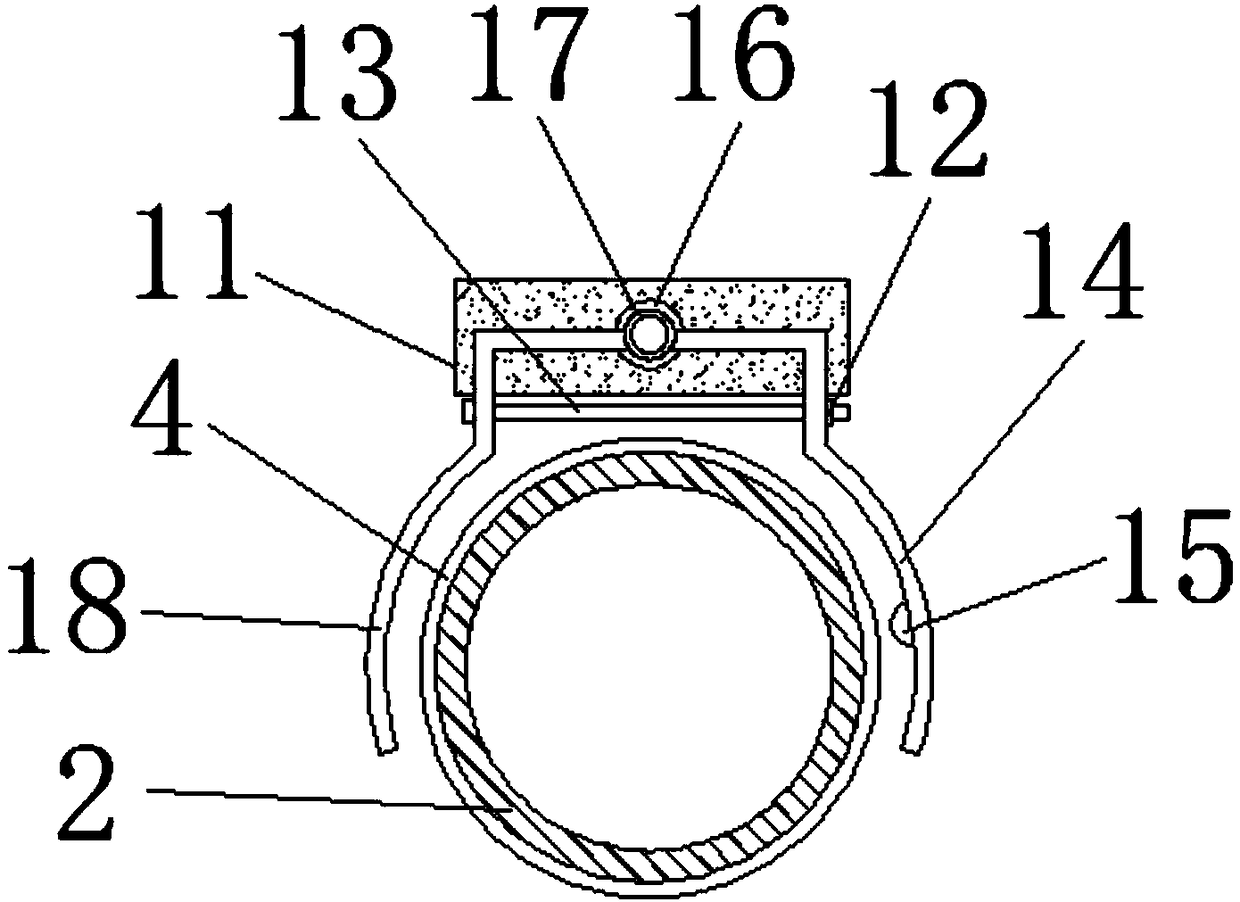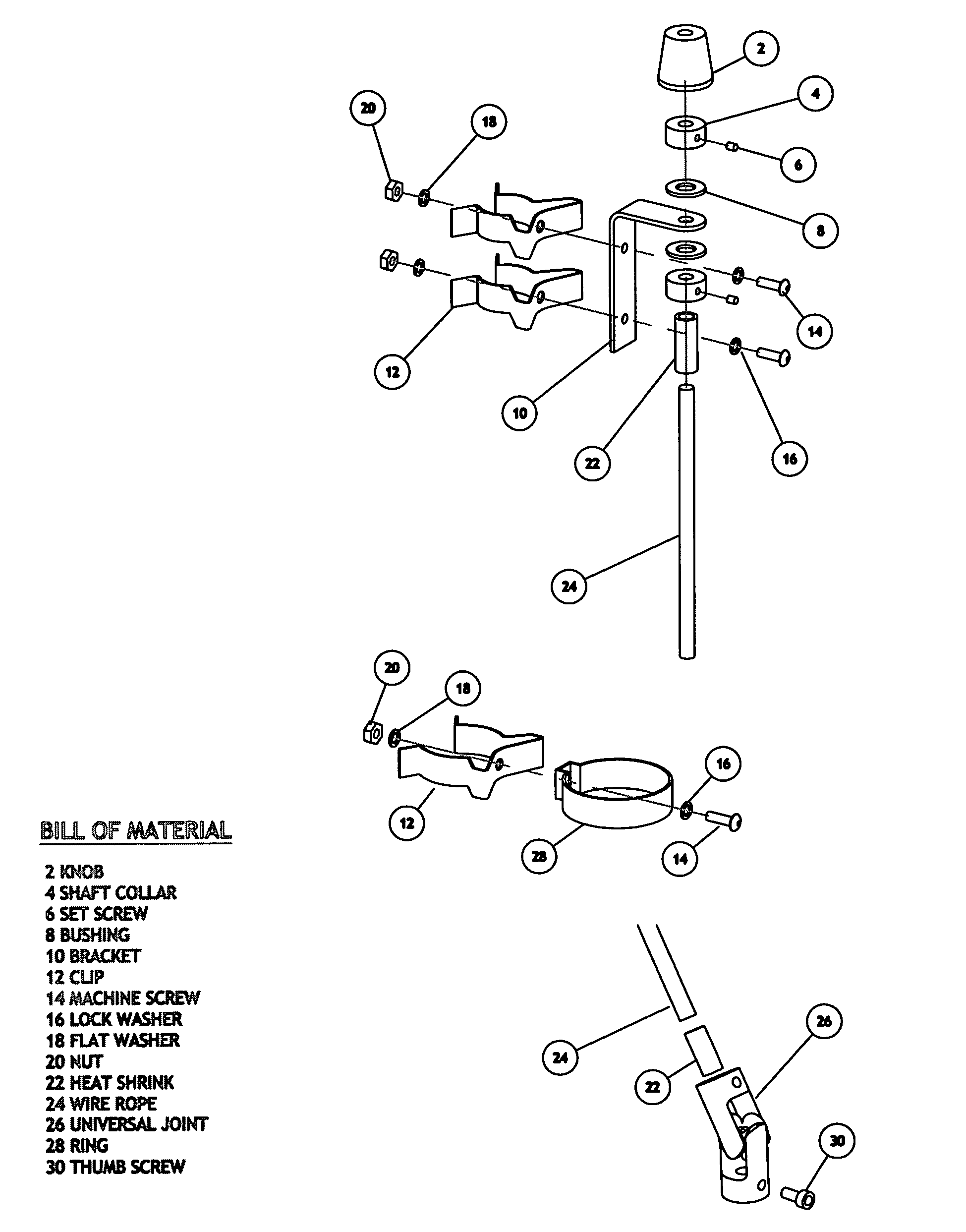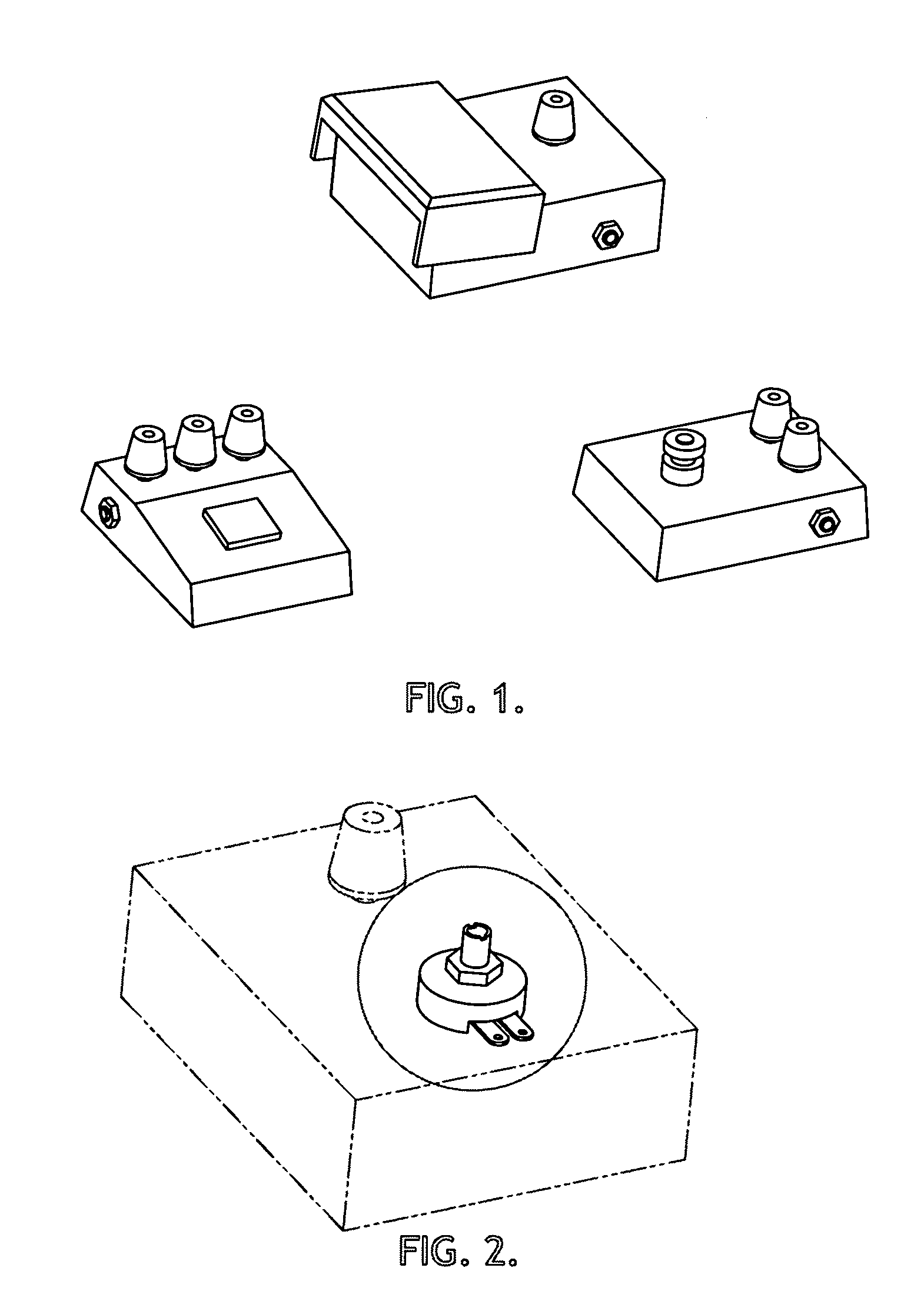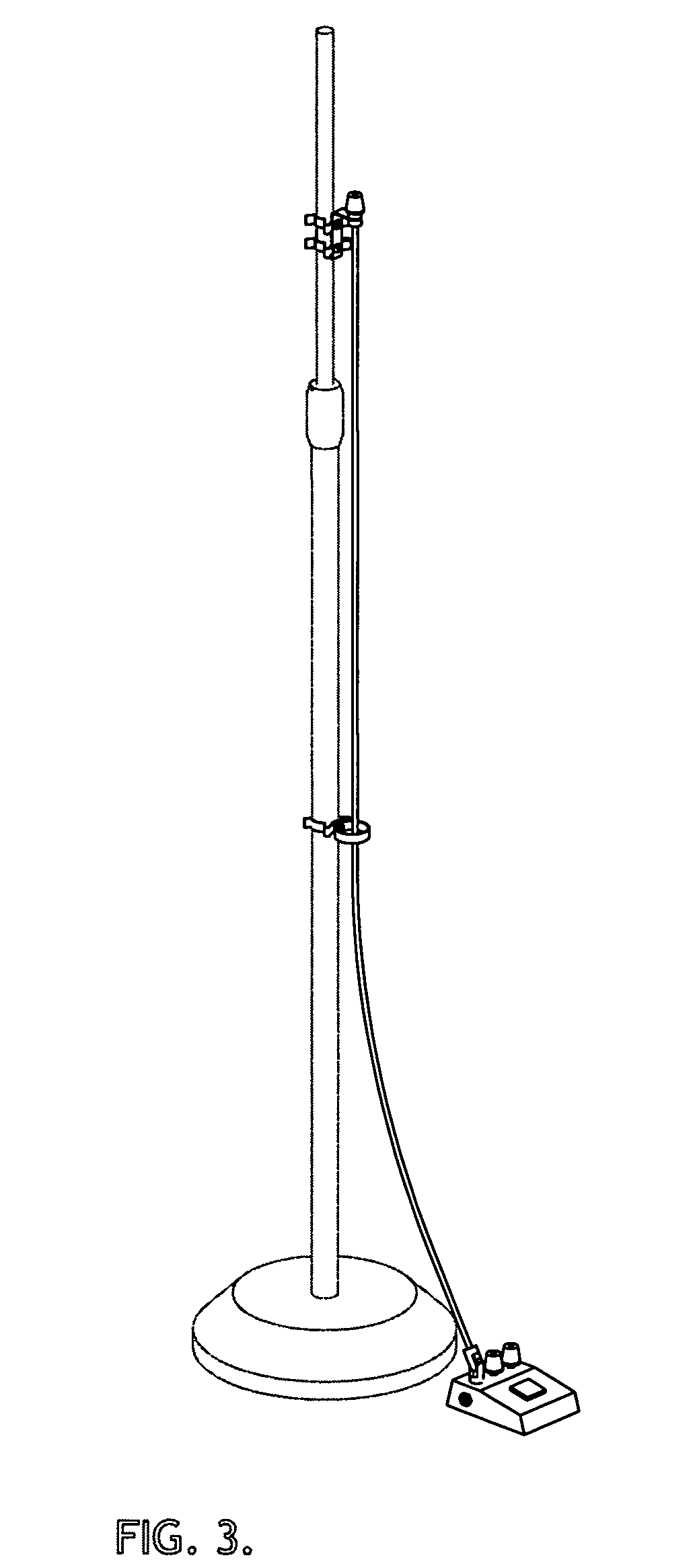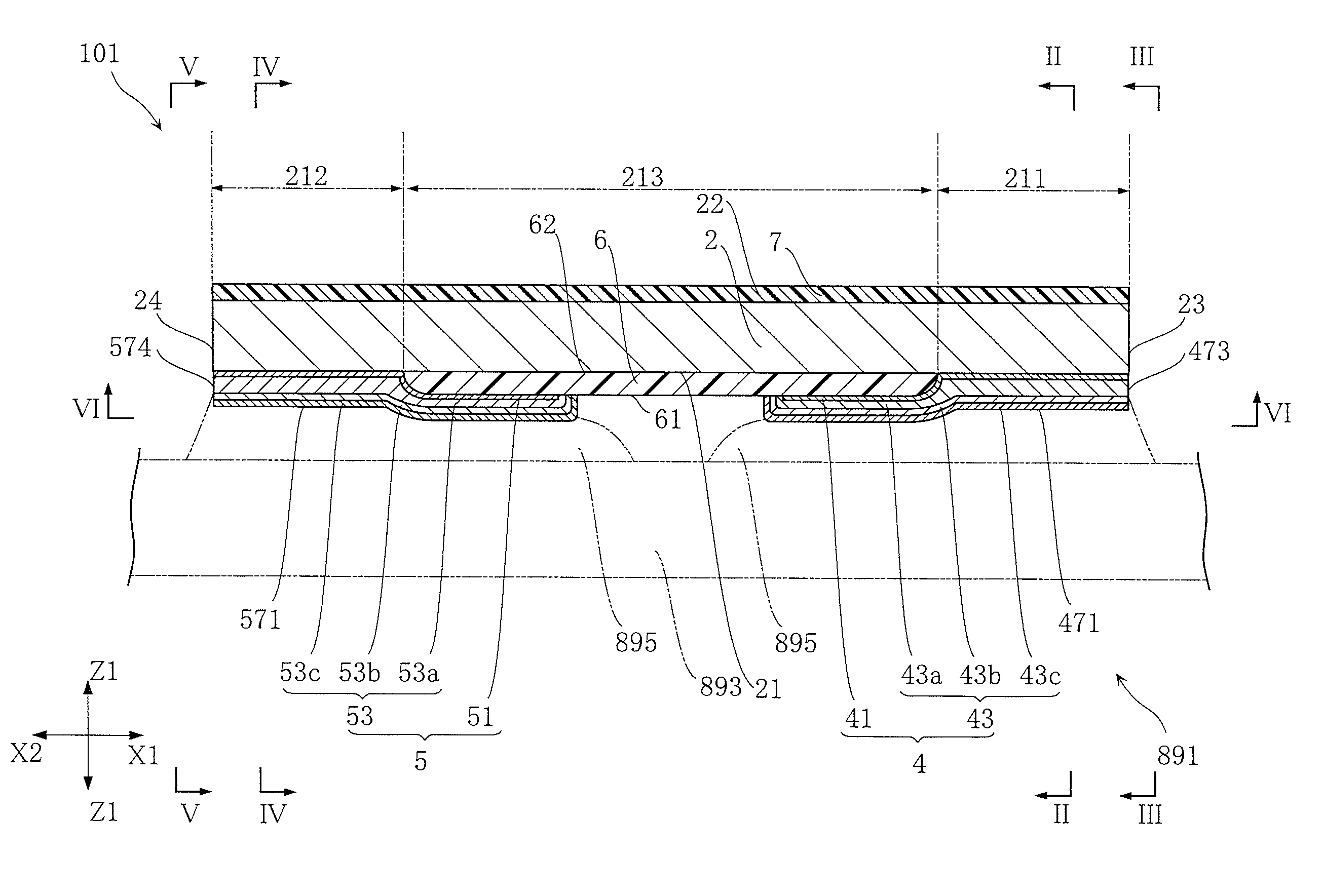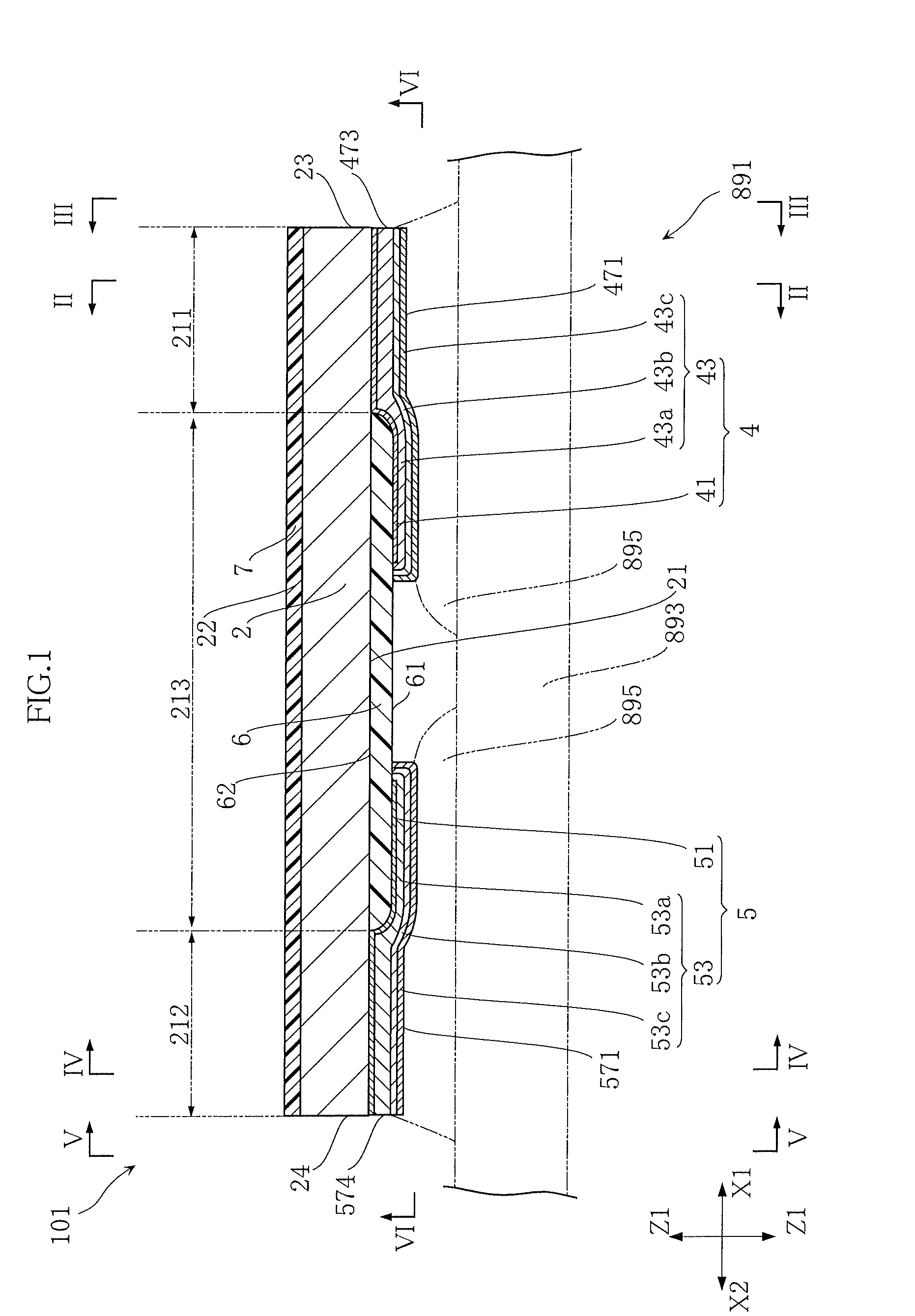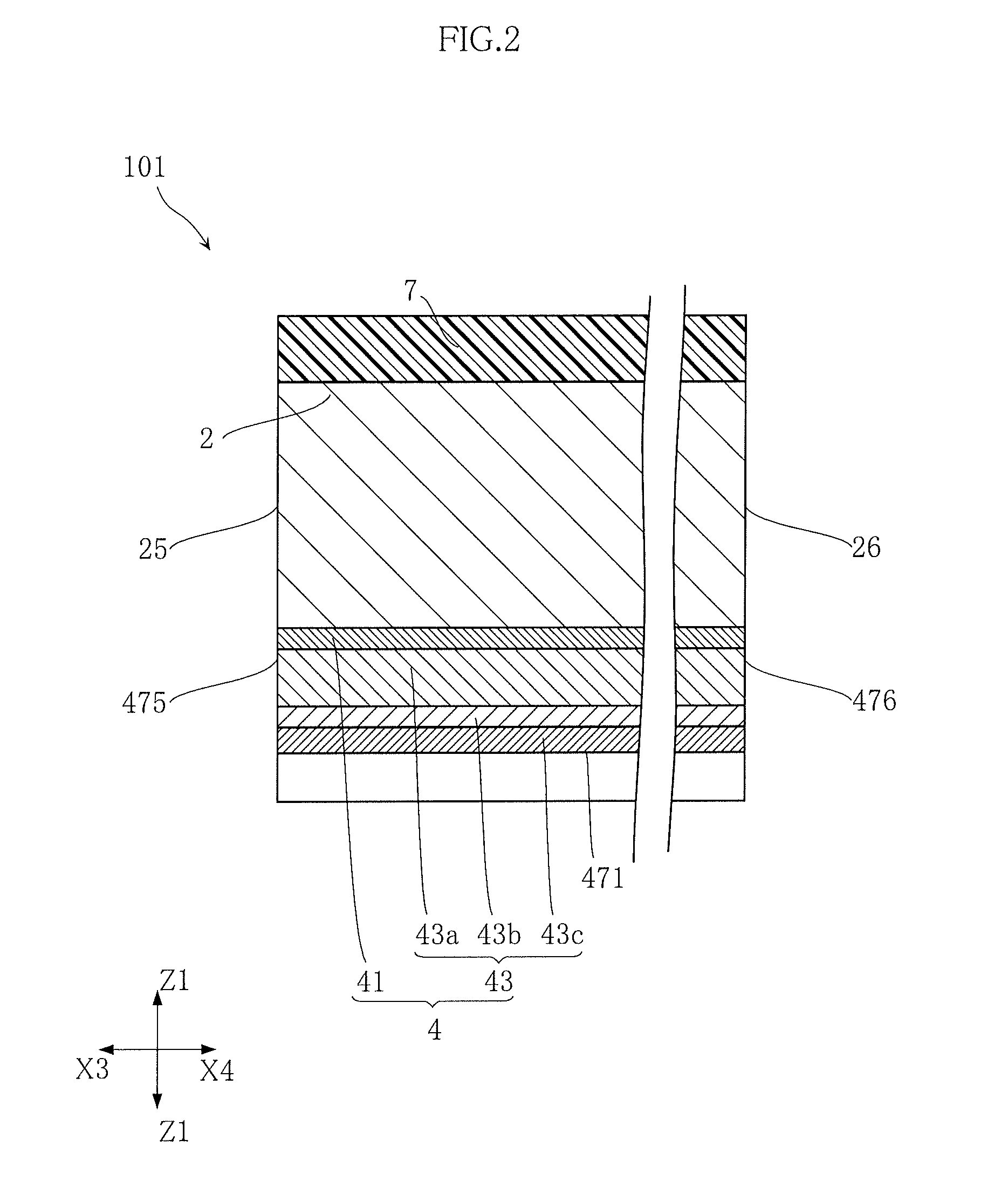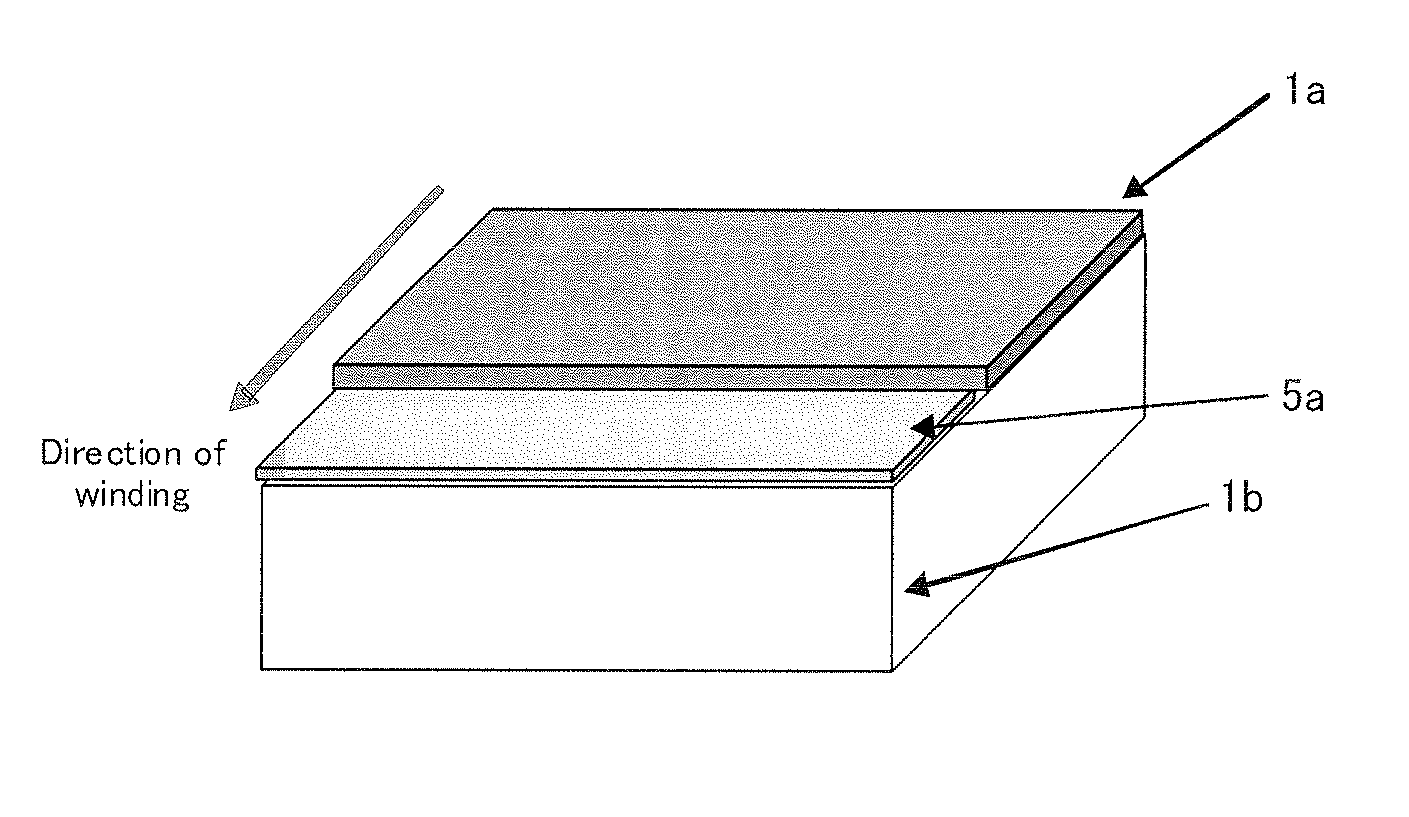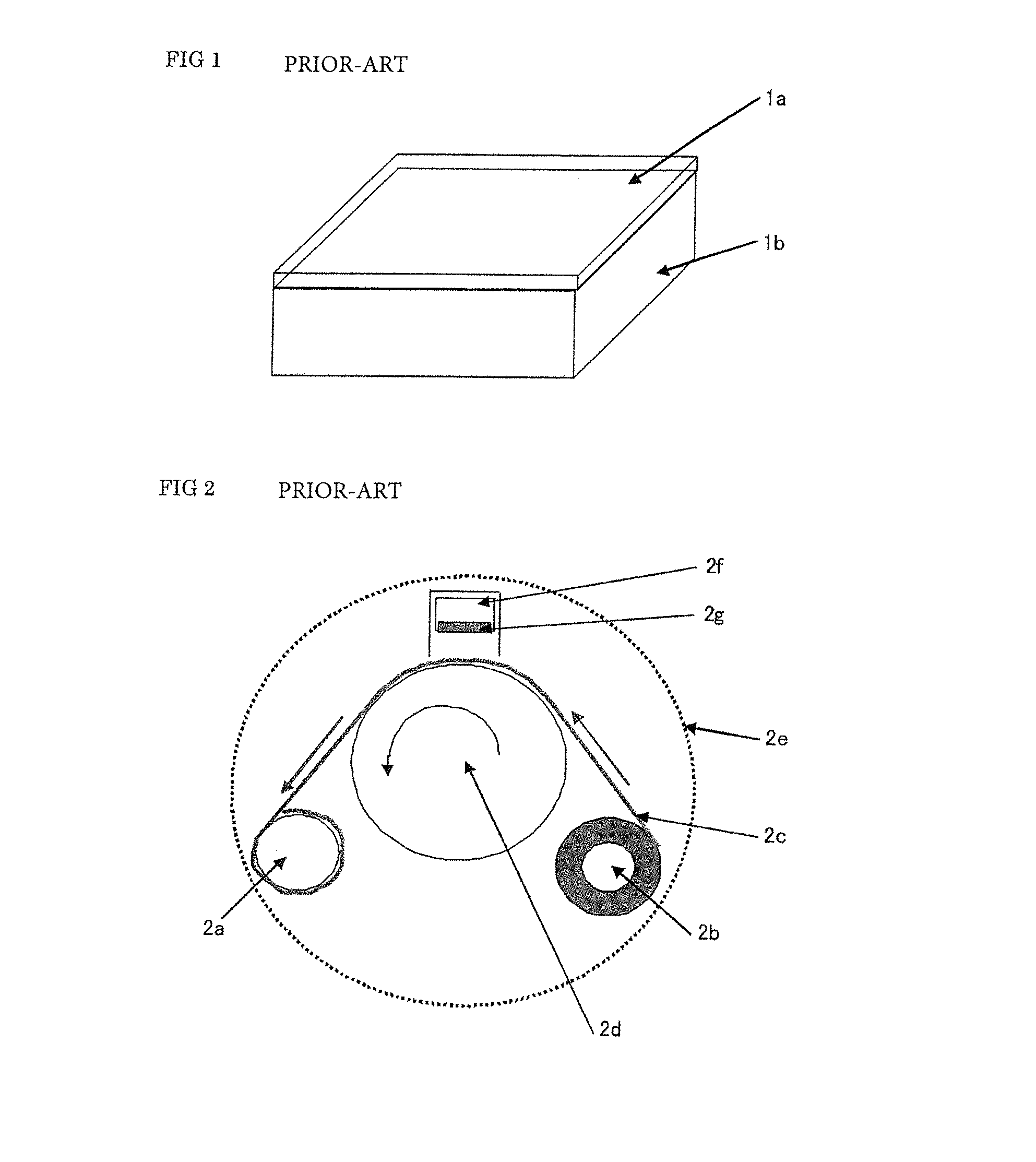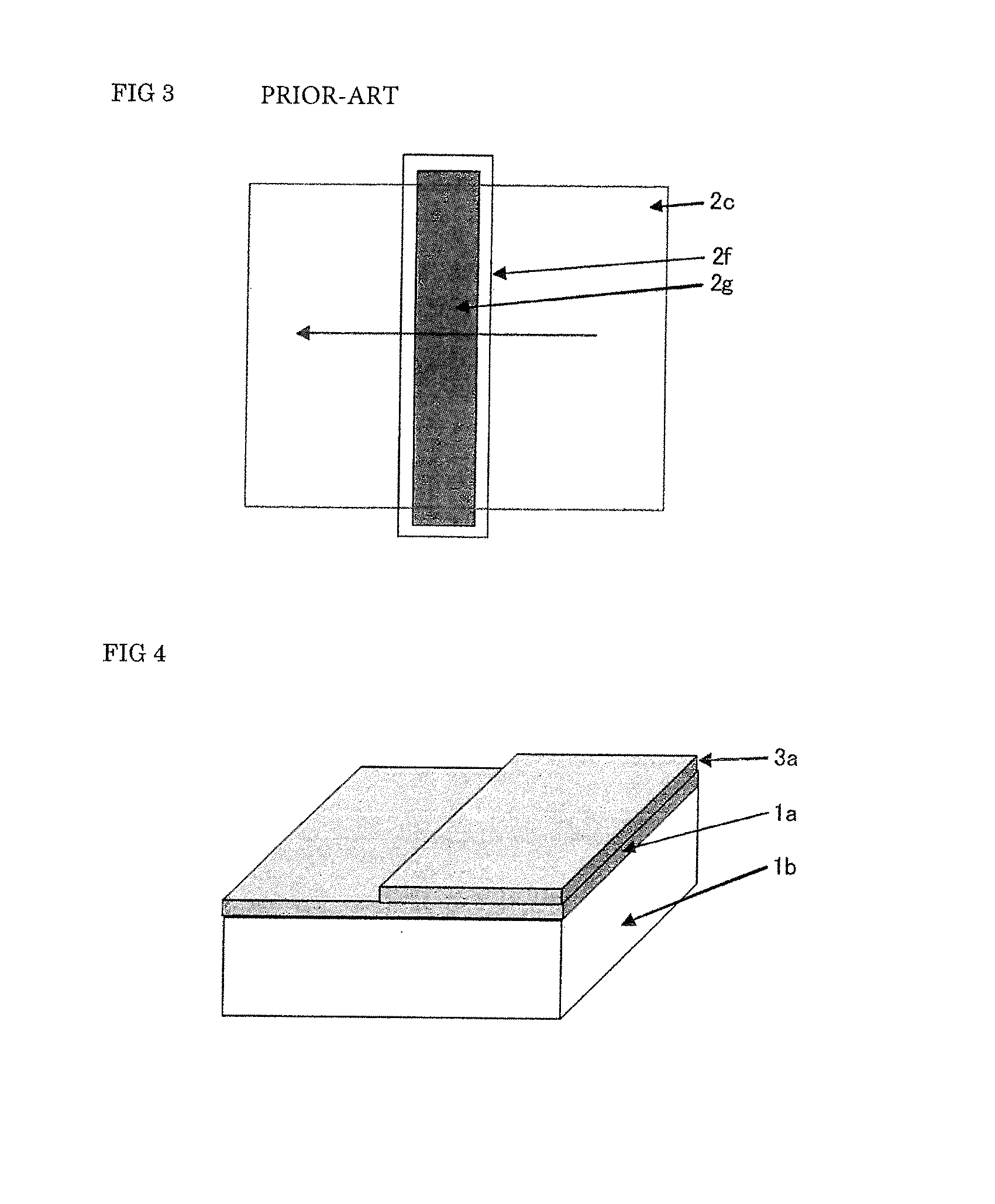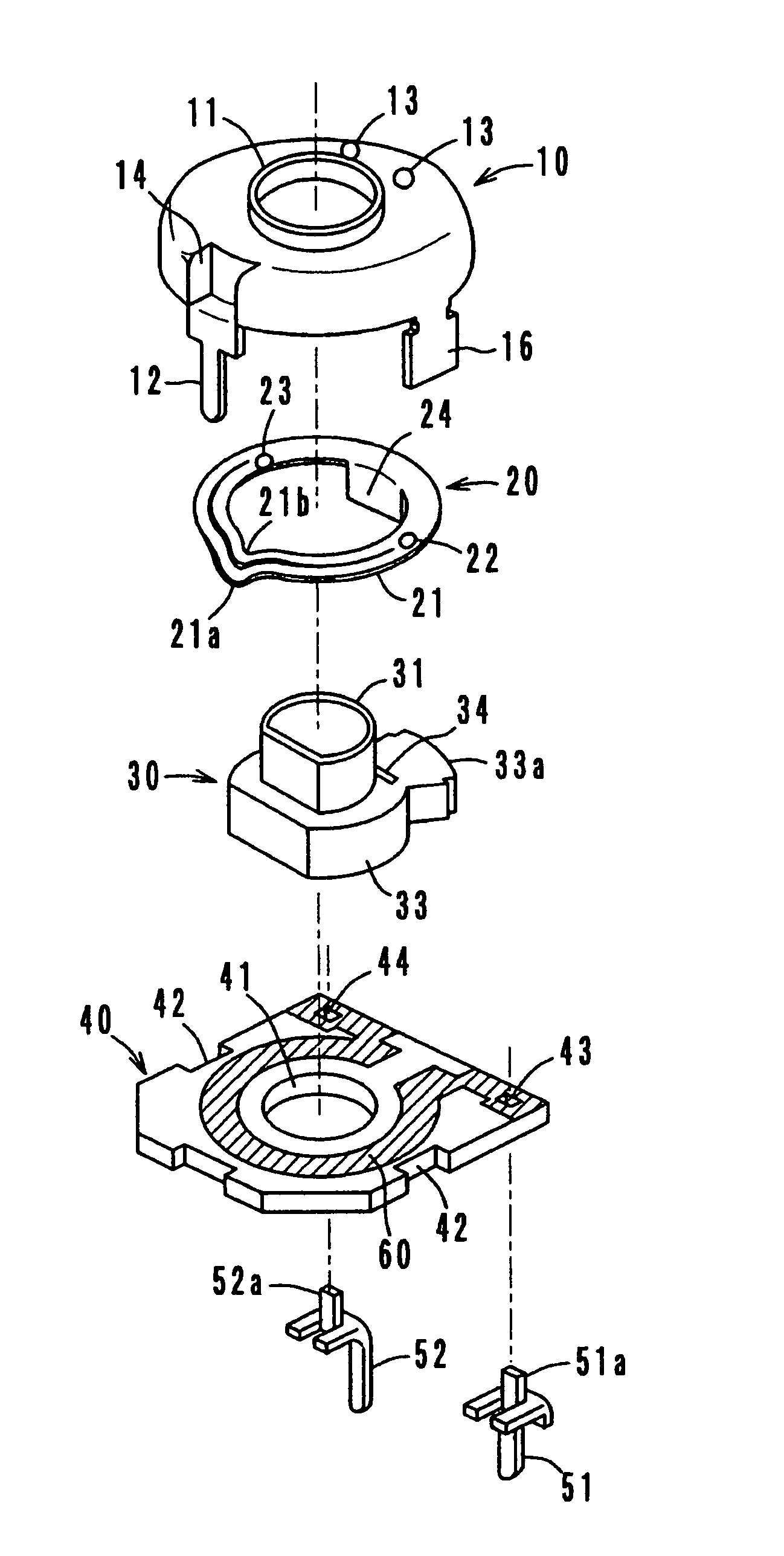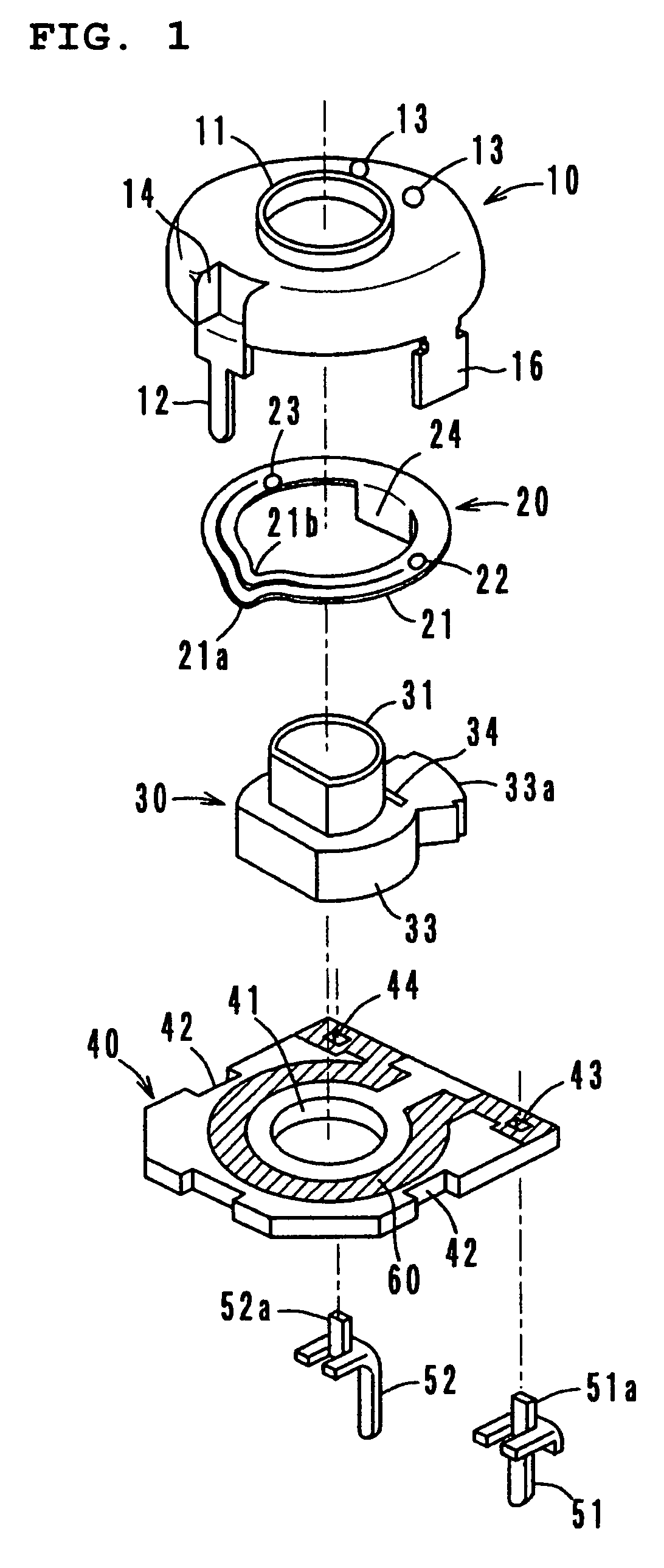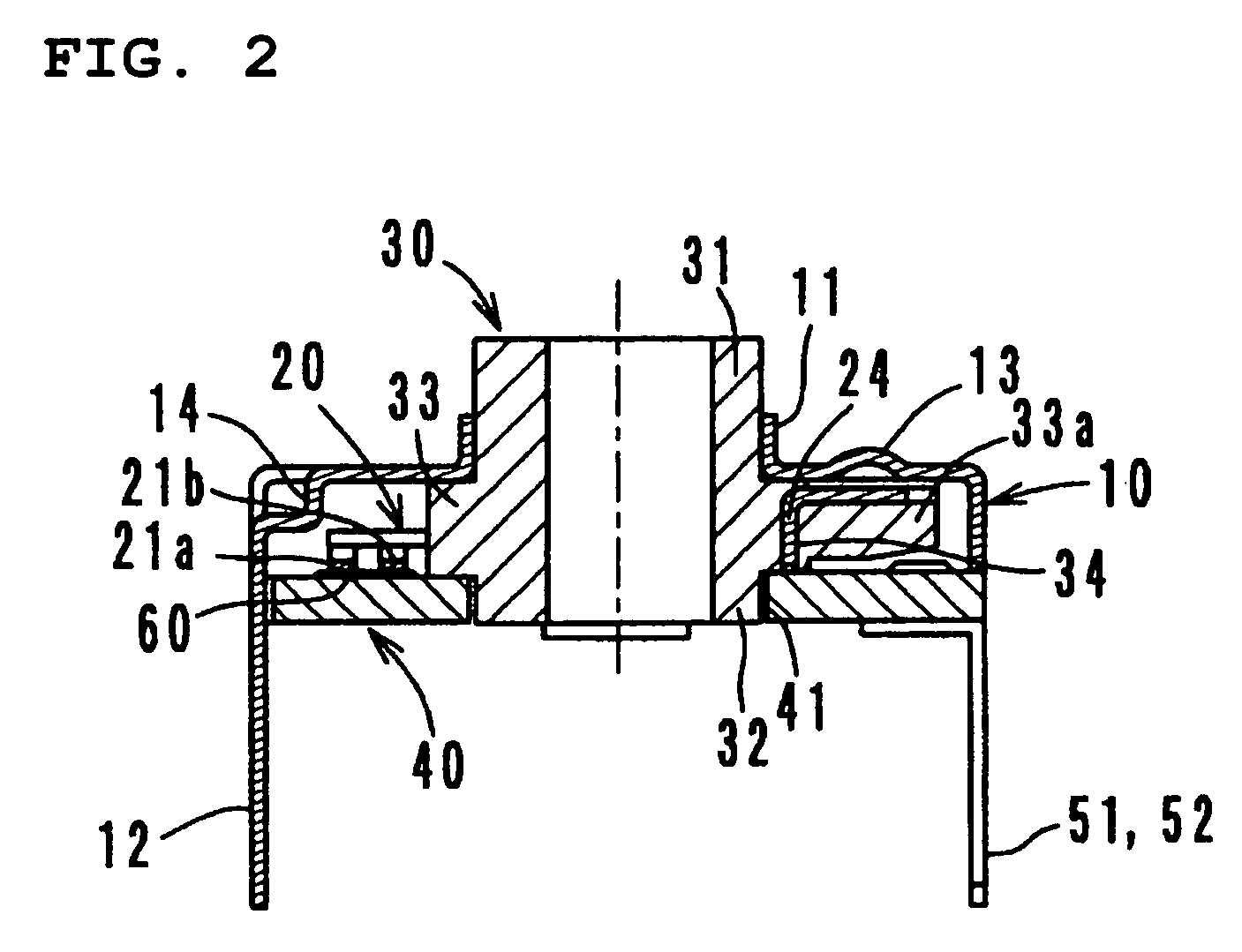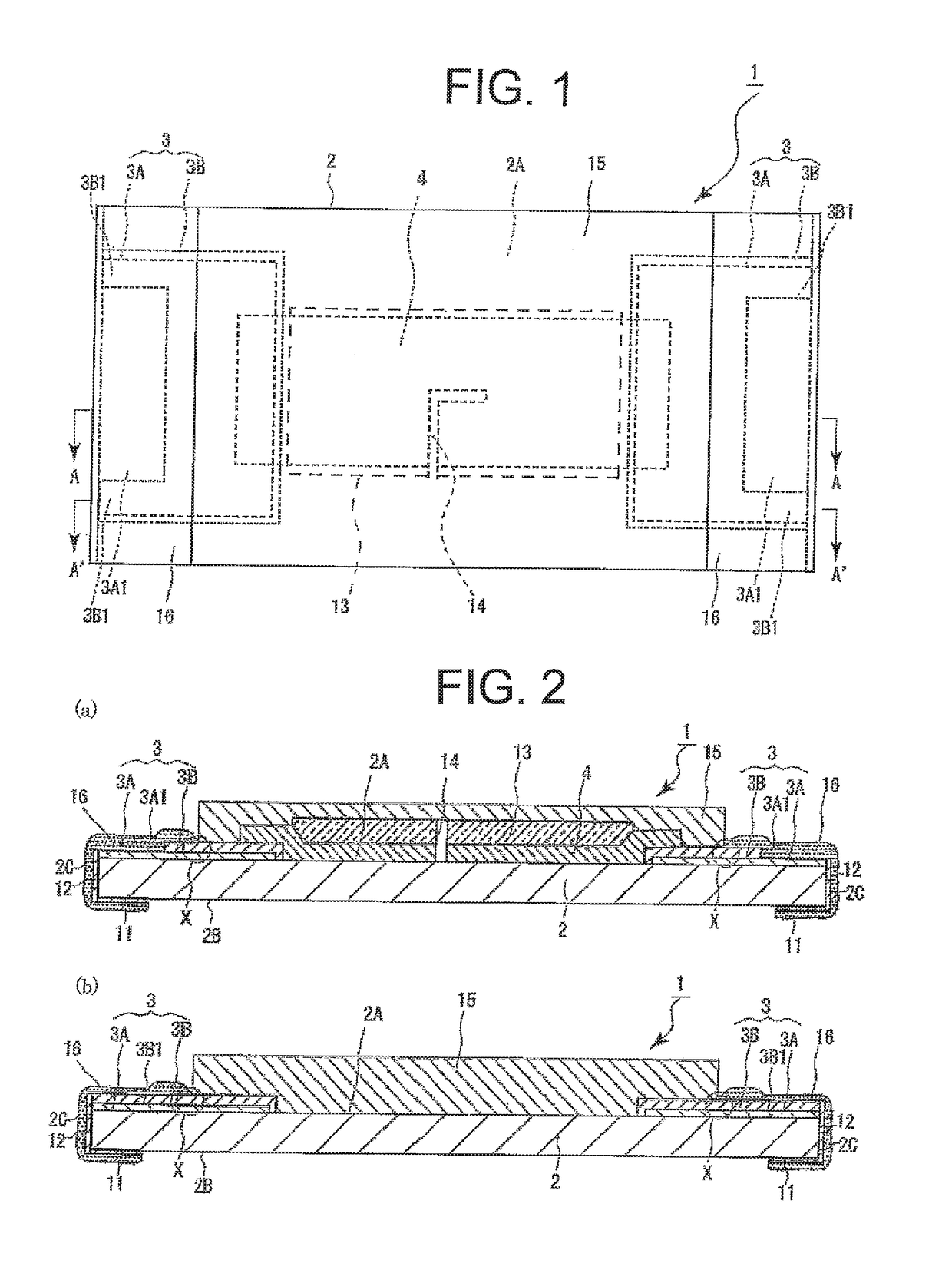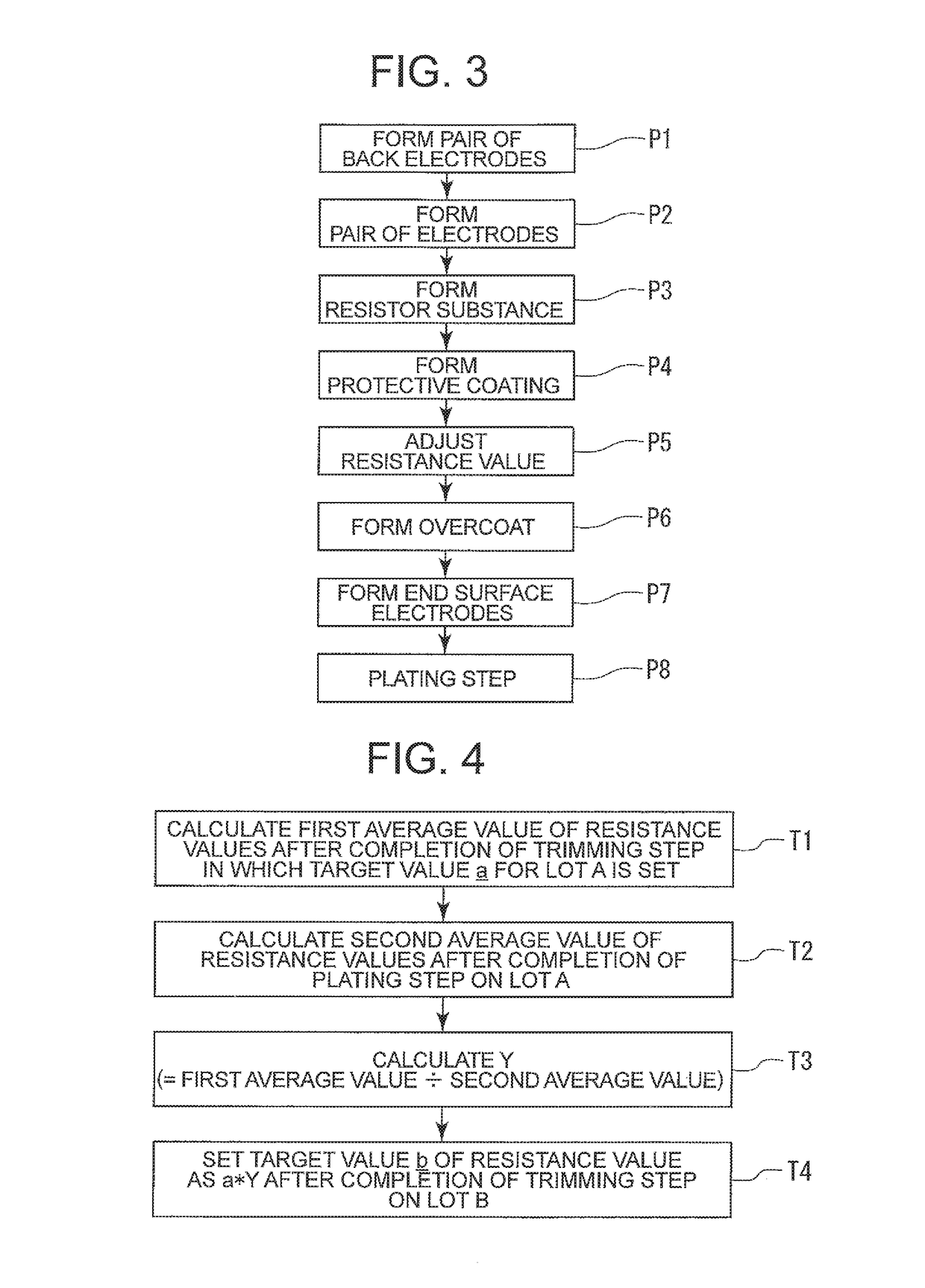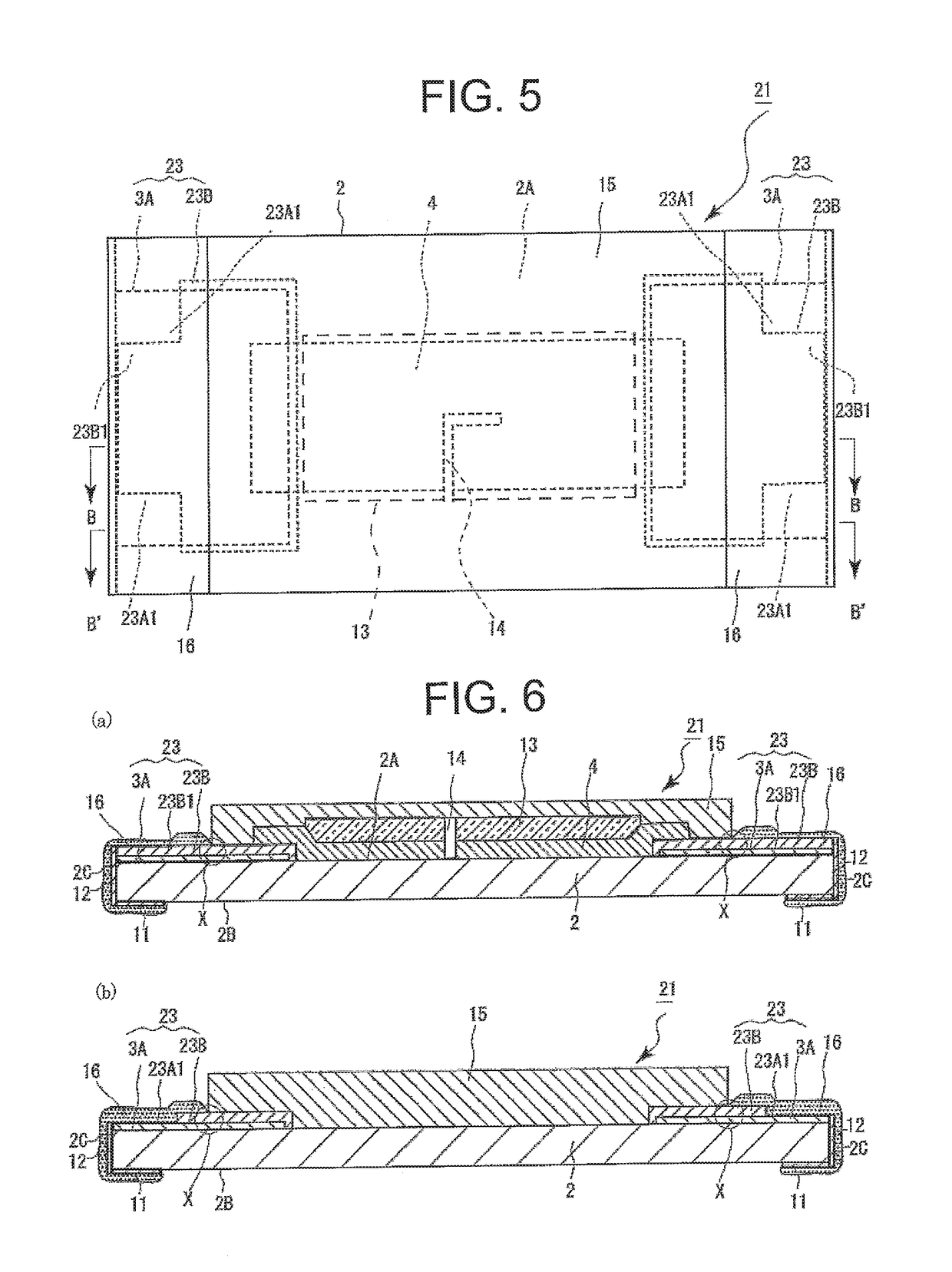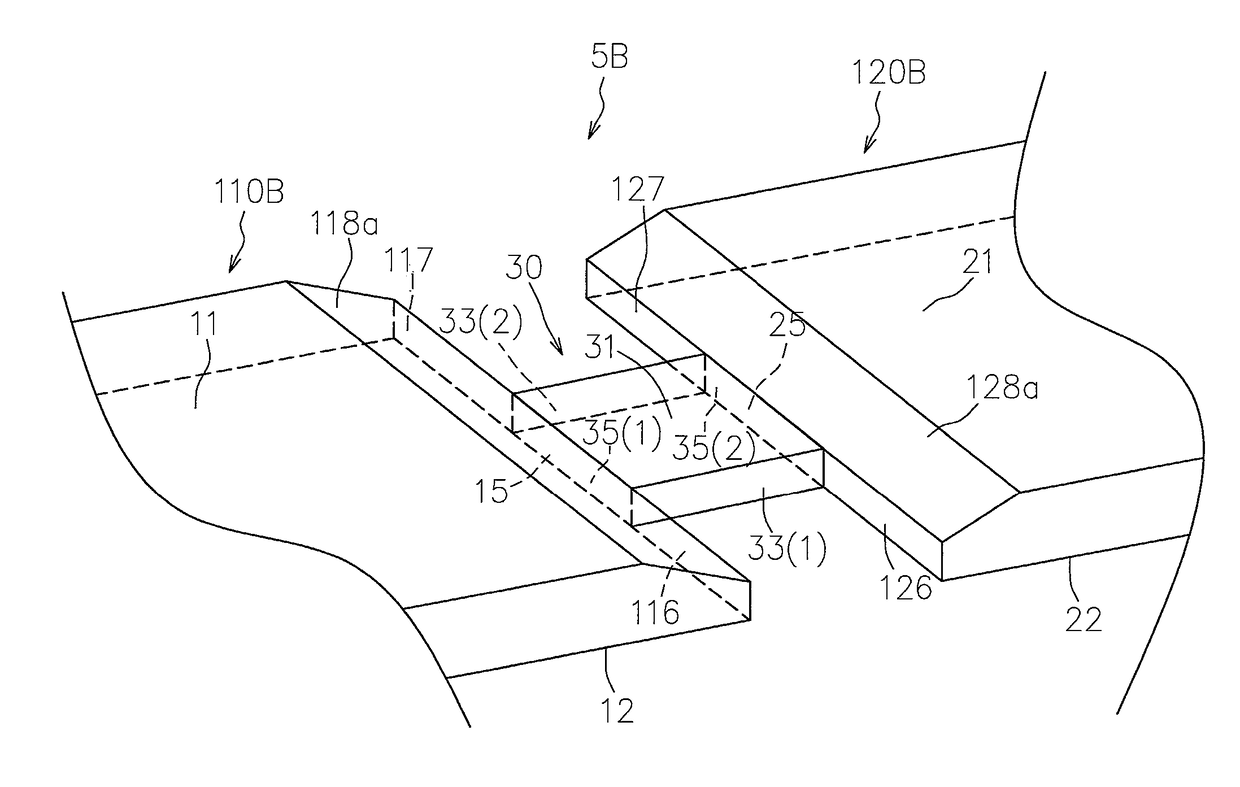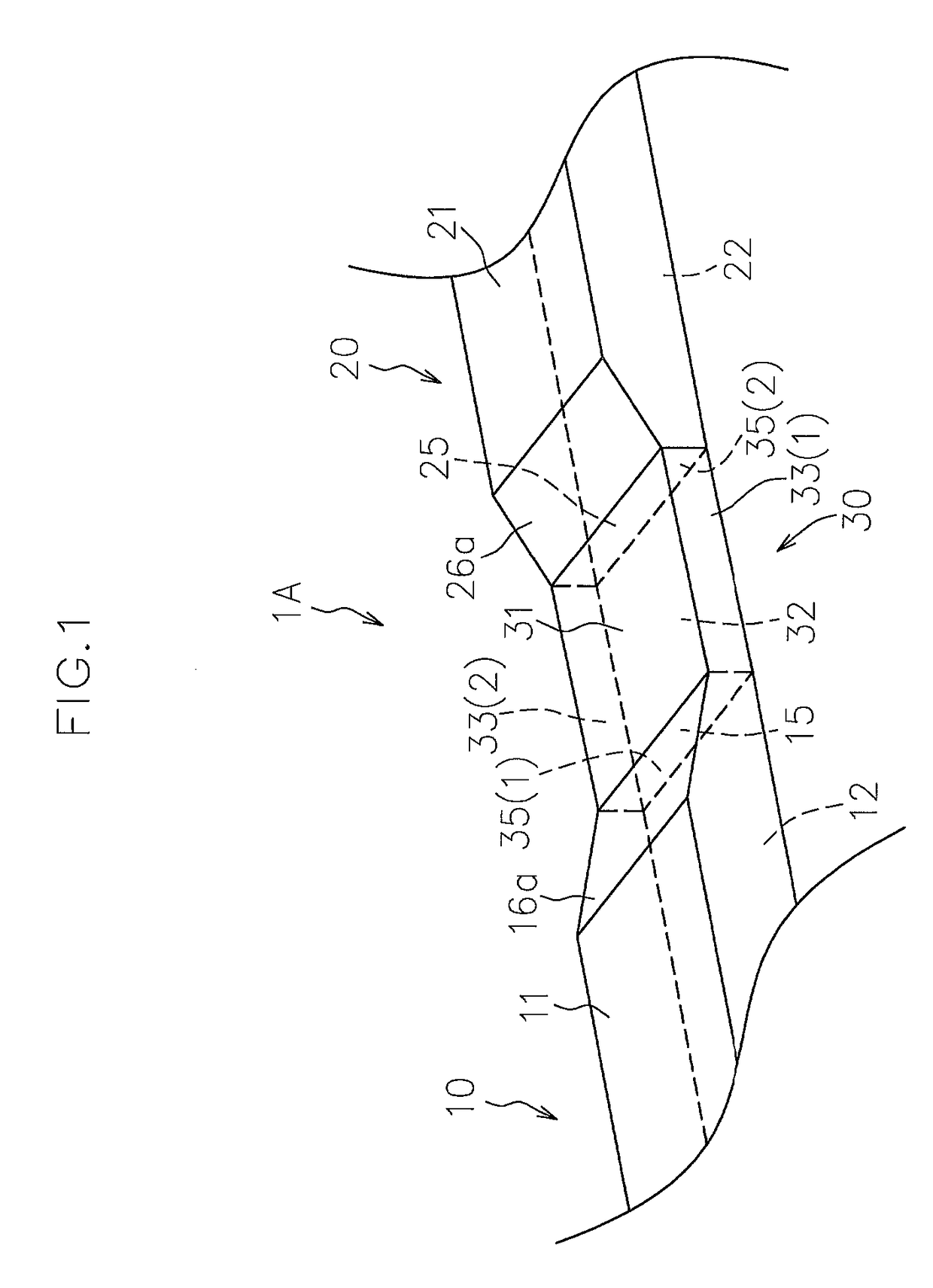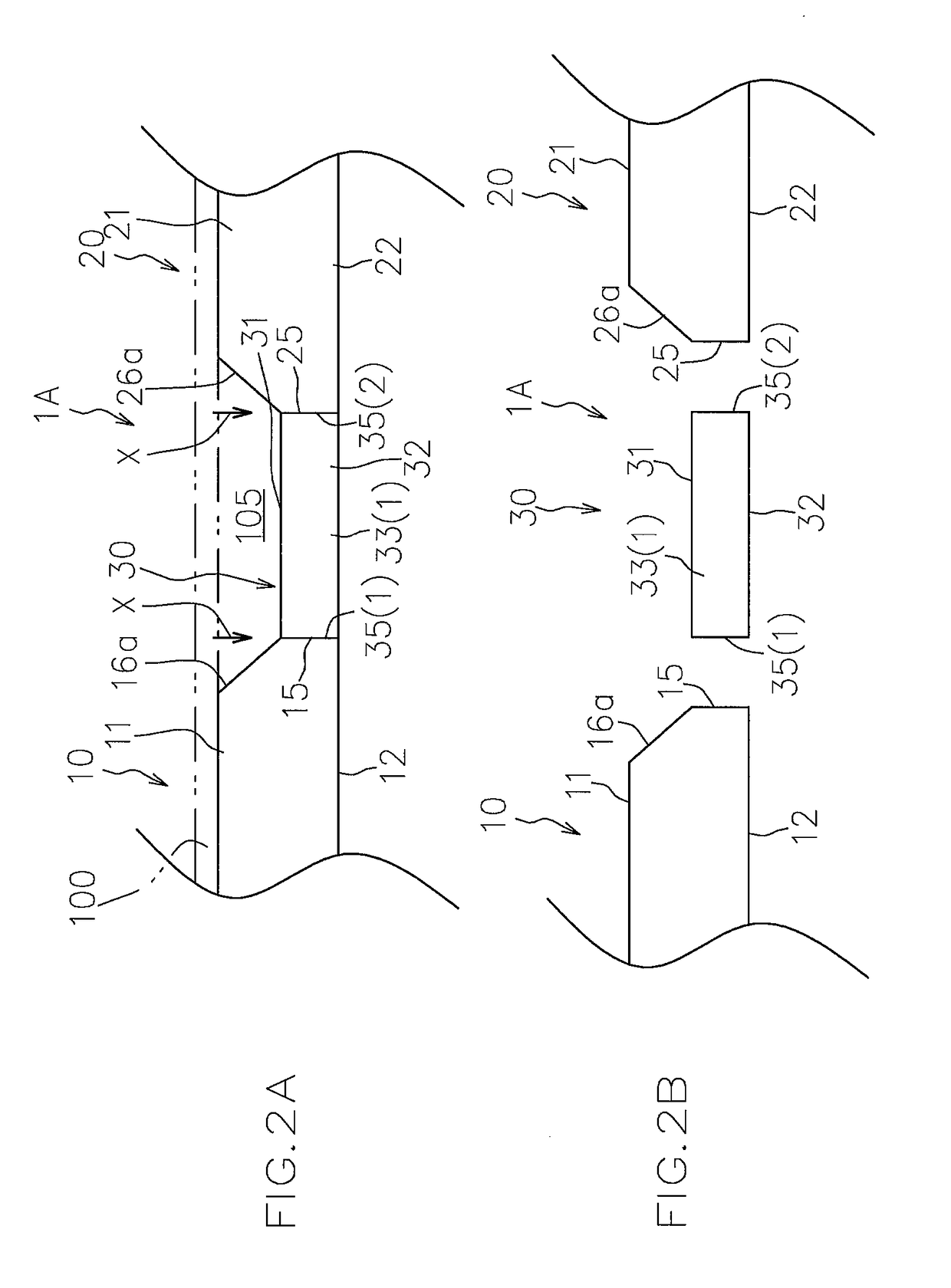Patents
Literature
59results about "Current collector arrangements" patented technology
Efficacy Topic
Property
Owner
Technical Advancement
Application Domain
Technology Topic
Technology Field Word
Patent Country/Region
Patent Type
Patent Status
Application Year
Inventor
Hair dryer having a passive silencer system
InactiveUS8893400B2Avoid thermal efficiency lossReduce noiseCurrent collector arrangementsHair combsEngineeringFuselage
The invention relates to a hair dryer including a tapered plastic shell between a rear end and a front end through which flows out the air set into motion and heated by the hair dryer, this plastic shell defining at least one air inlet and an air outlet and being intended to accommodate at least one motor and one fan, the shaft of which is borne by an attached internal structure in the central portion of the fuselage. According to the invention, the plastic shell is conformed in order to receive the air between the air inlet and the internal structure bearing the fan, on a longer acoustic path as compared with the length of the acoustic path between the rear end and the internal structure bearing the fan.
Owner:TECHNOFIRST
Precision shunt resistor and manufacturing method thereof
InactiveCN1545106AIncrease temperature coefficientSmall temperature coefficientCurrent collector arrangementsResistor manufactureManganinEngineering
Owner:彭德龙
Low resistance value resistor
InactiveUS7042330B2Change directionSpeed up the flowCurrent collector arrangementsResistor terminals/electrodesElectrical resistance and conductanceCurrent distribution
The low resistance value resistor 11 has two electrodes 12,13 of metal strips having a high electrical conductivity. The metal strips are affixed on the resistor body by means of rolling and / or thermal diffusion bonding. A fused solder layer is formed on a surface of each electrode comprised by the metal strip. Thus, sufficient bonding strength and superior current distribution in the resistor body is obtained. Further, a portion of the resistor body is trimmed by removing a portion of the body material along a direction of current flow between the electrodes to adjust a resistance value. Thus, a precise resistor value and superior characteristics of temperature coefficient of resistance (TCR) can be obtained.
Owner:KOA CORP
Spray deposited heater element
InactiveUS7800021B2Current collector arrangementsHeater elementsElectrical resistance and conductanceMaterials science
A heater that may be applied to a substrate. The heater may include a graduating material deposited on at least a portion of a substrate, a resistive material and a thermal barrier dielectric coating. The resistive material may include at least two resistive compositions, wherein the resistivity of the material may be altered by varying the composition in given areas.
Owner:HUSKY INJECTION MOLDING SYST LTD
Lever transmitter for determining a filling level of liquid in a tank
InactiveUS6425288B1Current collector arrangementsFixed resistors with intervening connectorsFuel tankEngineering
In a lever transmitter for a fuel tank, two spring tongues, each with a sliding contact, are arranged on a contact plate of a potentiometer. The contact plate is prestressed against sliding tracks of the potentiometer by a spring element fastened to the carrier and having the sliding contacts due to vibrations are thereby reliably avoided.
Owner:CONTINENTAL AUTOMOTIVE GMBH
High frequency resistor
ActiveUS8665059B2Line/current collector detailsCurrent collector arrangementsUltra-widebandElectricity
An ultra wideband frequency compensated resistor and related methodologies for frequency compensation are disclosed. In exemplary configuration, a resistive layer is provided over a substrate, and a frequency compensating structure is provided over at least a portion of the resistive layer and separated therefrom by an insulative layer. In certain embodiments, the insulating layer may be an adhesive that may also be effective to secure a protective cover over the resistive material and supporting substrate. In selected embodiments, the frequency compensating structure corresponds to a plurality of conductive layers, one or more of which may be directly electrically connected to terminations for the resistive material while one or more of the conductive layers are not so connected.
Owner:KYOCERA AVX COMPONENTS CORP
Structure and method for adjusting integrated circuit resistor value
ActiveUS20060087401A1Provide resistanceCurrent collector arrangementsResistor terminals/electrodesEngineeringSemiconductor
A resistor formed on a material layer of a semiconductor integrated circuit and a method for forming the resistor. The resistor comprises a region of resistive material with a plurality of conductive contacts or plugs in electrical contact with and extending away from the resistive material. A first and a second interconnect line are formed overlying the plugs and in conductive contact with one or more of the plurality of plugs, such that a portion of the resistive material between the first and the second interconnect lines provides a desired resistance. According to a method of the present invention, the plurality of conductive contacts are formed using a first photolithographic mask and the first and the second interconnect lines are formed using a second photolithographic mask. The desired resistance is changed by modifying the first or the second mask such that one or more dimensions of a region of the resistive material between the first and the second interconnect lines is altered.
Owner:BELL SEMICON LLC
Methods for manufacturing resistors using a sacrificial layer
InactiveUS7091820B2Current collector arrangementsResistor terminals/electrodesSemiconductor chipEngineering
A microelectronic assembly, including a microelectronic element such as a semiconductor chip and a dielectric material covering the chip and forming a body having a bottom surface. The assembly includes conductive units having portions exposed at the bottom surface, posts extending upwardly from said exposed portions and top flanges spaced above the bottom surface.
Owner:TESSERA INC
Potentiometer
InactiveCN101075491ADetermine the accuracyLarge variant widthCurrent collector arrangementsFixed resistors with intervening connectorsResistive circuitsElectrical resistance and conductance
Electric potentiometer (1) is provided with carrier plate (6) with resistance circuit (3) wherein the free ends (9,12) of the resistance circuit (3) are connected with joint (15,18) of a first and a second electric potentiometer, and a tapping end (27) with a gliding contact (24), wherein the tapping end is connected with the joint (21) of a third electric potentiometer. The resistance circuit (3) is composed of discrete array (4) of resistance part (30) with preset resistance value by electrical connection. In addition, using an existence device (36), the gliding contact (24) is electrically connected with a preset area of the resistance array (4) along its moving track (B) in the adjusting area of the tapping end.
Owner:ABB PATENT GMBH
Carbon fiber contactor having an elastomer to reduce hysteresis
An electrical contactor or wiper that uses an elastomer near the tip to reduce flexing and improve electrical signal accuracy. The contactor includes an elongated beam having a U-shaped end. Several carbon fibers form a bundle attached to the beam. The fibers have ends and tips. The ends are compressively held inside the U-shaped end and the tips emanate from the U-shaped end. An elastomer is disposed over the carbon fibers where they emanate from the U-shaped end. The elastomer reduces flexing of the carbon fibers. The elastomer is located between the beam and adjacent to the tips with the tips being exposed. A laser is used to trim the carbon fibers and elastomer to form the tips.
Owner:CTS CORP ELKHART
High-resistance thin-film resistor and method of forming the resistor
ActiveUS8754741B2Current collector arrangementsSemiconductor/solid-state device detailsHigh resistanceElectrical resistance and conductance
Owner:TEXAS INSTR INC
Chip resistor and method for manufacturing same
ActiveCN106104710AResistor chip manufactureCurrent collector arrangementsEngineeringAuxiliary electrode
Provided are: a chip resistor which is capable of adjusting the resistance with high accuracy, while maintaining high sulfurization resistance of an electrode thereof, even in cases where the resistance of the chip resistor is low; and a method for manufacturing this chip resistor. This chip resistor (1) comprises an insulating film which covers a resistor (4) that is formed so as to be in contact with both of a pair of electrodes (3, 3) formed on the upper surface (2A) of an insulating substrate (2). Each of the pair of electrodes (3, 3) comprises: (1) a main electrode layer (3B) that contains silver as a main metal component, while containing 10% by weight or more of palladium, and an auxiliary electrode layer (3A) that has a lower specific resistance than the main electrode layer (3B); (2) a multilayer portion wherein the auxiliary electrode layer (3A) and the main electrode layer (3B) are sequentially laminated in this order on one surface of the insulating substrate (2); and (3) an exposed part (3A1) of the auxiliary electrode layer (3A) on the far side from the resistor (4), where the main electrode layer (3B) does not cover a part of the auxiliary electrode layer (3A), and an extending part (3B1) that extends from the near side to the far side from the resistor (4).
Owner:KAO CORP
Remote controller for rotary potentiometer
InactiveUS20070176729A1Current collector arrangementsResistors adjusted by auxillary driving meansUniversal jointDrive shaft
Device for remote operation of rotary potentiometers consisting of a mounting bracket 10 supporting a flexible drive shaft 24 which has affixed to its supported end a control knob 2 and at its unsupported end a universal joint 26 which houses a thumb-screw 30 for capture of a rotary potentiometer shaft. Thus allowing the user to operate floor-mounted effects devices from a more natural standing position during a musical performances, rather than having to crouch down during said performance.
Owner:GOLDEN MARY ELIZABETH
Heating substrate equipped with conductive thin film and electrode, and manufacturing method of the same
InactiveUS8791394B2Improve conductivityImprove performanceCurrent collector arrangementsWave amplification devicesOptoelectronicsElectrically conductive
Owner:KOREA INST OF MACHINERY & MATERIALS
Chip resistor and method for making the same
ActiveUS8035476B2Effective protectionResistor chip manufactureEnvelope/housing resistor manufactureEngineeringCorrosion
The present invention relates to a chip resistor and method for making the same. The chip resistor includes a substrate, a pair of bottom electrodes, a resistive film, a pair of main upper electrodes, a first protective coat, a pair of barrier layers, a second protective coat, a pair of side electrodes and at least one plated layer. The first protective coat is disposed over the resistive film, and covers part of the main upper electrodes. The barrier layers are disposed on the main upper electrodes, and cover part of the first protective coat. The second protective coat is disposed on the first protective coat, and covers part of the barrier layers. The plated layers cover the barrier layers, the bottom electrodes and the side electrodes. As a result, the chip resistor features high corrosion resistance.
Owner:YAGEO CORP
Resistor, radiator and combined equipment of resistor and radiator
ActiveCN104183341AShorten the lengthAchieve isolationCurrent collector arrangementsResistor terminals/electrodesElectric powerPower electronics
The invention discloses a resistor, a radiator and combined equipment of the resistor and the radiator, and belongs to the field of power electronics. The resistor is columnar in appearance and comprises a metal end, an insulation part, a shell, a metal bar, a resistance wire, thermally conductive insulating filler and a metal connecting mechanism, wherein the metal connecting mechanism of the resistor is connected with the radiator in a direct contact manner. By virtue of adoption of the structure and the connection manner, the length of the resistor can be reduced, and complete leakage isolation of an electrical loop of the resistor and a water inlet and outlet pipe of the radiator can be realized, so that the combined equipment of the resistor and the radiator is compacter in structure and tidier in connection.
Owner:NR ELECTRIC CO LTD +2
Carbon fiber electrical contacts formed of composite material including plural carbon fiber elements bonded together in low-resistance synthetic resin
InactiveUS20120007710A1Extend system lifeCellsContact materialsElectrical resistance and conductanceFiber
An electrical contact device, configured for electrical signals to be transmitted therethrough and for movable contact with an electrically conductive track, includes a composite carbon fiber material including plural carbon fiber elements aligned in substantially the same direction. At least a portion of the plural carbon fiber elements is bonded together in a semi-conductive (low-resistance) synthetic resin compound.
Owner:MICRO CONTACTS
A resistor, a heat dissipater and a combinatory device of resistor and heat dissipater
ActiveUS20170278599A1Preventing electrical malfunctionSave spaceCurrent collector arrangementsResistor terminals/electrodesEngineeringPower electronics
Disclosed are a resistor, a heat dissipater and a combinatory device of the resistor and the heat dissipater, and relates to the field of power electronics. The resistor is cylindrical, and comprises a metal end, an insulating part, a casing, metal bars, a resistor wire, thermally conductive insulating fillers and a metal connection mechanism. The metal connection mechanism of the resistor and the heat dissipater are connected by means of direct contact. The structure and the connection method can shorten the length of the resistor, completely insulate the electrical circuits of the resistor from the possible leakage of the water inlet- and outlet-pipe of the heat dissipater, and enable the combinatory device of the resistor and the heat dissipater to be structurally more compact and the connections thereof cleaner.
Owner:NR ELECTRIC CO LTD +2
Current sensing resistor
ActiveUS8779887B2Improve the immunityCurrent collector arrangementsElectrical measurement instrument detailsResistorElectrical and Electronics engineering
Owner:CYNTEC
Semiconductor device and manufacturing method of the same
InactiveUS8040214B2Increase the resistance valueIncreased fluctuationCurrent collector arrangementsSemiconductor/solid-state device detailsPower semiconductor deviceSurface oxidation
A semiconductor device according to the present invention includes: a lower-surface oxidation preventing insulating film formed on a lower surface of a metal resistor element; an upper-surface oxidation preventing insulating film formed on an upper surface of the metal resistor element; and a side-surface oxidation preventing insulating film formed only near a side surface of the metal resistor element by performing anisotropic etching after being deposited on a whole surface of a wafer in a process separated from the lower-surface oxidation preventing insulating film and the upper-surface oxidation preventing insulating film. According to the present invention, it is possible to prevent the increase of the resistance value due to the oxidation of the metal resistor element and also to prevent the increase of the parasitic capacitance between metal wiring layers without complicating the fabrication process.
Owner:HITACHI LTD
Binder resin and sliding resistor
ActiveUS20050109993A1Excellent sliding durabilityInhibit wearNon-metal conductorsCurrent collector arrangementsOligomerPolyamic acid
A binder resin for sliding resistors contains an acetylene-terminated polyamic acid oligomer represented by the following general formula (I): wherein n is an integer of zero or more.
Owner:ALPS ALPINE CO LTD
Chip resistor and method of manufacturing the same
ActiveUS8698593B2Current collector arrangementsResistor terminals/electrodesTemperature coefficientCeramic substrate
There is provided a chip resistor including a ceramic substrate; a first resistance layer formed on the ceramic substrate and including a first conductive metal and a first glass; and a second resistance layer formed on the first resistance layer, including a second conductive metal and a second glass, and having a smaller content of glass than the first resistance layer, thereby obtaining relatively low resistance and a relatively small temperature coefficient of resistance (TCR).
Owner:SAMSUNG ELECTRO MECHANICS CO LTD
Chip Resistor and Method for Manufacturing Same
ActiveUS20170084364A1Improve accuracyHigh resistance of electrodeResistor chip manufactureCurrent collector arrangementsAuxiliary electrodeMetal
Provided are: a chip resistor whose resistance value can be adjusted with high accuracy while maintaining high sulfurization resistance of electrodes of the chip resistor even in the case where the resistance value of the chip resistor is low; and a method for manufacturing this chip resistor. This chip resistor (1) includes: an insulating film that covers a resistor substance (4) formed so as to make contact with both of a pair of electrodes (3, 3) formed on an upper surface (2A) of an insulating substrate (2). Each of the pair of electrodes (3, 3) includes: (1) a main electrode layer (3B) that contains silver as a main metal component and 10 weight % or more of palladium as another metal component, and an auxiliary electrode layer (3A) that is lower in specific resistance than the main electrode layer (3B); (2) a laminate part where the auxiliary electrode layer (3A) and the main electrode layer (3B) are sequentially laminated in this order on a single surface of the insulating substrate (2); and (3) an exposed part (3A1) of the auxiliary electrode layer (3A) where a part of the auxiliary electrode layer (3A) is not covered with the main electrode layer (3B) on a far side from the resistor substance (4), and parts (3B1) that extend from a near side to the far side with respect to the resistor substance (4).
Owner:KOA CORP
Double-sliding-piece slide rheostat for electrical experiments
ActiveCN108364734AAdjust the clearanceReduce frictionCurrent collector arrangementsResistor terminals/electrodesThreaded pipeBinding post
The invention discloses a double-sliding-piece slide rheostat for electrical experiments. The double-sliding-piece slide rheostat comprises a porcelain cylinder, wherein both sides of the porcelain cylinder are bonded with brackets; the surface of the porcelain cylinder is surrounded by a resistance wire; the two ends of the resistance wire are fixedly connected with separation blades; the surfaces of the separation blades are welded with lower binding posts; the lower binding posts are connected with lower terminal post caps through threads; the tops of the two brackets are separately provided with threaded holes; threaded holes are connected with metal rods through threads; the metal rods are fixedly connected with limiting pieces; the ends, close to the limiting pieces, of the metal rods are connected with threaded pipes through threads; the metal rods are in sleeve connection with slide blocks; the surfaces of the slide blocks are provided with through holes; circular rings are arranged in and bonded with the through holes; two sides of each circular ring are fixedly connected with a first sliding piece and a second sliding piece respectively; the second sliding pieces are fixedly connected with threaded rods, and the threaded rods penetrate the first sliding pieces; the tail ends of the threaded rods are connected with nuts through threads; and the surfaces of the first sliding pieces are provided with bumps. The double-sliding-piece slide rheostat of the invention is worth promotion.
Owner:江苏永成微纳新材料有限公司
Remote controller device and method for hand operation of floor-mounted audio effects processors
InactiveUS7675399B2Current collector arrangementsResistors adjusted by auxillary driving meansRotary switchEngineering
Disclosed is a device for the remote operation of the variable audio controls of floor-mounted audio effects devices, such devices typical of those used by performing artists on stage. The vast majority of devices of this type are operated by a foot pedal-controlled on / off switch and rotary operated potentiometer switch(es) to vary the audio output. The present inventive concept uses a variety of mechanical connectors, which couple the rotary switches of the floor device to a hand-operated controller mounted on a microphone or accessory stand. In this manner a performer is able to operate the effects device, with his / her hand, from a more natural standing position during a musical performance, rather than having to crouch down during said performance.
Owner:GOLDEN MARY ELIZABETH
Chip resistor and mounting structure thereof
ActiveUS20150022312A1Improve cooling efficiencyCurrent collector arrangementsIntermediate regionElectrical and Electronics engineering
Owner:ROHM CO LTD
Metal foil with electric resistance film and method of producing the same
ActiveUS8749342B2Improve toleranceReduce in quantityCurrent collector arrangementsPrinted circuit aspectsElectrical resistance and conductanceMan-hour
A copper foil with an electric resistance film in which a film with higher electrical resistivity than the metal foil is provided on the metal foil, wherein a plurality of electric resistance films with different electric resistance is arranged in parallel on the same metal foil. With conventionally used built-in resistor elements, one resistor element is configured of one type of substance on the copper foil. Nevertheless, when actually mounting the resistor elements, the circuit design tolerance can be increased and the number of man-hours can be reduced with two resistor elements and further with a plurality of resistor elements compared to a case with one resistor element. This invention aims to provide a metal foil with a built-in resistor element comprising two or more types of resistor elements on one metal foil.
Owner:JX NIPPON MINING & METALS CORP
Rotatable variable resistor with clicking mechanism
InactiveUS7042329B2Noise is eliminated or reduced without deteriorating the operational feelEasy to assembleCurrent collector arrangementsResisitors with sliding contactMechanical engineeringResistor
A rotatable variable resistor with a clicking mechanism includes a rotary unit provided with a rotor and a wiper, and a fixed unit provided with a cover, a resistor substrate, and external terminals. The wiper has an arm segment, a clicking projection and a non-clicking projection. The undersurface of the cover is provided with a clicking depression. The distance from the center of rotation of the rotary unit to the top of the clicking projection is different from the distance from the center of rotation to the top of the non-clicking projection. The non-clicking projection may have a flat top portion with a width extending in one direction that is greater than that of the clicking depression such that a sliding track of the top of the clicking projection is located within a sliding track of the non-clicking projection in the radius direction. The clicking depression may alternatively be an aperture.
Owner:MURATA MFG CO LTD
Chip resistor and method for manufacturing same
ActiveUS10224132B2Improve accuracyIncrease resistanceResistor chip manufactureCurrent collector arrangementsAuxiliary electrodeBiomedical engineering
A chip resistor including an insulating film covering a resistor making contact with a pair of electrodes formed on an upper surface of an insulating substrate and a method for manufacturing same are provided. Both electrodes include a main electrode layer that contains silver as a main metal component an 10 weight % or more of palladium as another metal component, and an auxiliary electrode layer lower in specific resistance than the main electrode layer, a laminate part where the auxiliary electrode layer and the main electrode layer are laminated in order on a single surface of the insulating substrate; and an exposed part of the auxiliary electrode layer where a part of the auxiliary electrode layer is not covered with the main electrode layer on a far side from the resistor, and part that extend from a near side to the far side with respect to the resistor.
Owner:KOA CORP
Method for manufacturing shunt resistor
ActiveUS20180333800A1Improve Radiation PerformanceEfficient preparationCurrent collector arrangementsElectrical measurement instrument detailsElectrical conductorResistor
In manufacturing method of shunt resistor according to the present invention, at least one of first and second conductors that is thicker than a resistance alloy plate member includes a joining surface abutted to the resistance alloy plate member with their edges on one side in a plate-thickness direction being aligned with each other, a first inclined surface that is gradually located on one side in the plate-thickness direction from the joining surface toward the side opposite to the resistance alloy plate member in the plate-surface direction, and a first plate surface extending to the side opposite to the resistance alloy plate member in the plate-surface direction from the first inclined surface. Electron beams or laser is emitted to the joining surfaces of the conductor having the larger thickness and the resistance alloy plate member from one side in the plate-thickness direction to weld the joining surfaces.
Owner:SANCALL
Features
- R&D
- Intellectual Property
- Life Sciences
- Materials
- Tech Scout
Why Patsnap Eureka
- Unparalleled Data Quality
- Higher Quality Content
- 60% Fewer Hallucinations
Social media
Patsnap Eureka Blog
Learn More Browse by: Latest US Patents, China's latest patents, Technical Efficacy Thesaurus, Application Domain, Technology Topic, Popular Technical Reports.
© 2025 PatSnap. All rights reserved.Legal|Privacy policy|Modern Slavery Act Transparency Statement|Sitemap|About US| Contact US: help@patsnap.com
